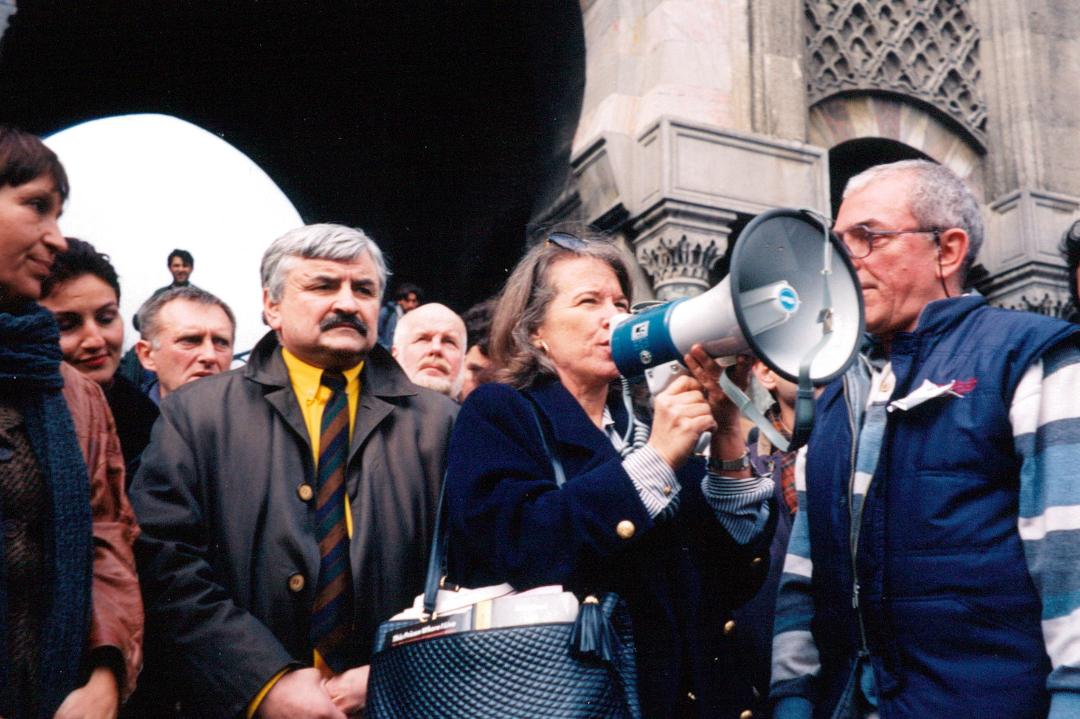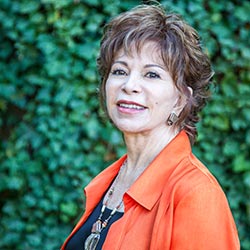Posts Tagged ‘PEN International’
The Power of One: Dissent in Russia
With the war in the Ukraine front and center in the news, I can’t help thinking back to my Russian colleague from PEN, the General Secretary of Russian PEN Alexander Tkachenko, or Sascha as we called him. I wonder how he would have responded to what is unfolding. During his tenure at Russian PEN, he stood up and argued with Vladimir Putin face to face on behalf of Russian writers and resisted when the government tried to close down PEN in Russia.
Sascha was complex—a former professional soccer player, a Tartar, son of the Crimea, a poet. Those who knew him may still hear his voice on the floor of PEN Congresses challenging his government’s imprisonment of writers, apologizing to new Afghan PEN delegates for his country’s incursion into their country, or remember Sascha swimming off the coast of Perth, Australia in spite of the signs warning of sharks or singing and reciting his poetry at the Writers in Prison Conference in Denmark, or strategizing with the Writers in Prison Committee in the hills of Nepal.
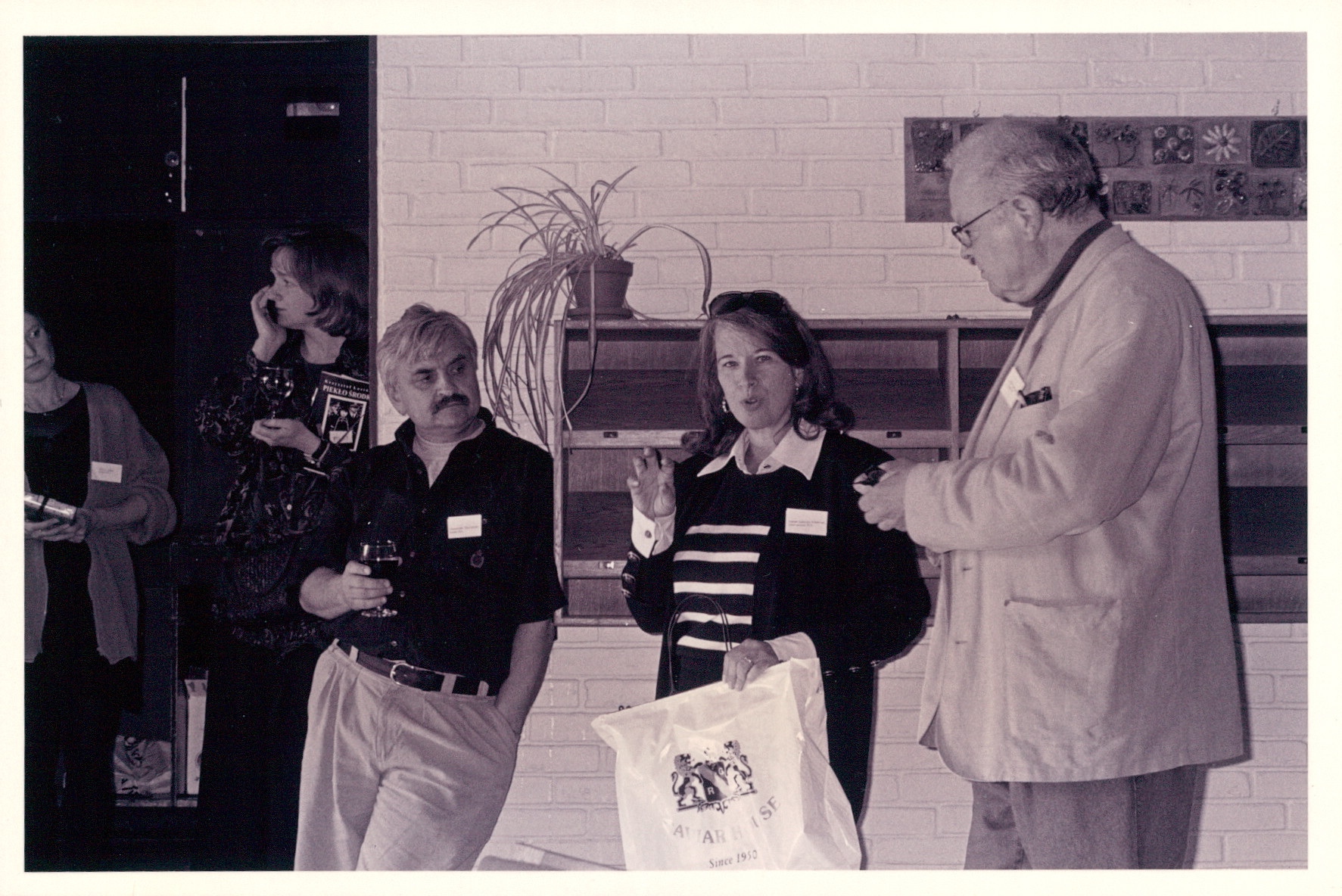
Alexander (Sascha) Tkachenko (Russian PEN), Joanne Leedom-Ackerman (Chair of PEN International Writers in Prison Committee), and Niels Barfoed (Danish PEN) at the first Writers in Prison Committee Conference held in Helsingør, Denmark in 1996
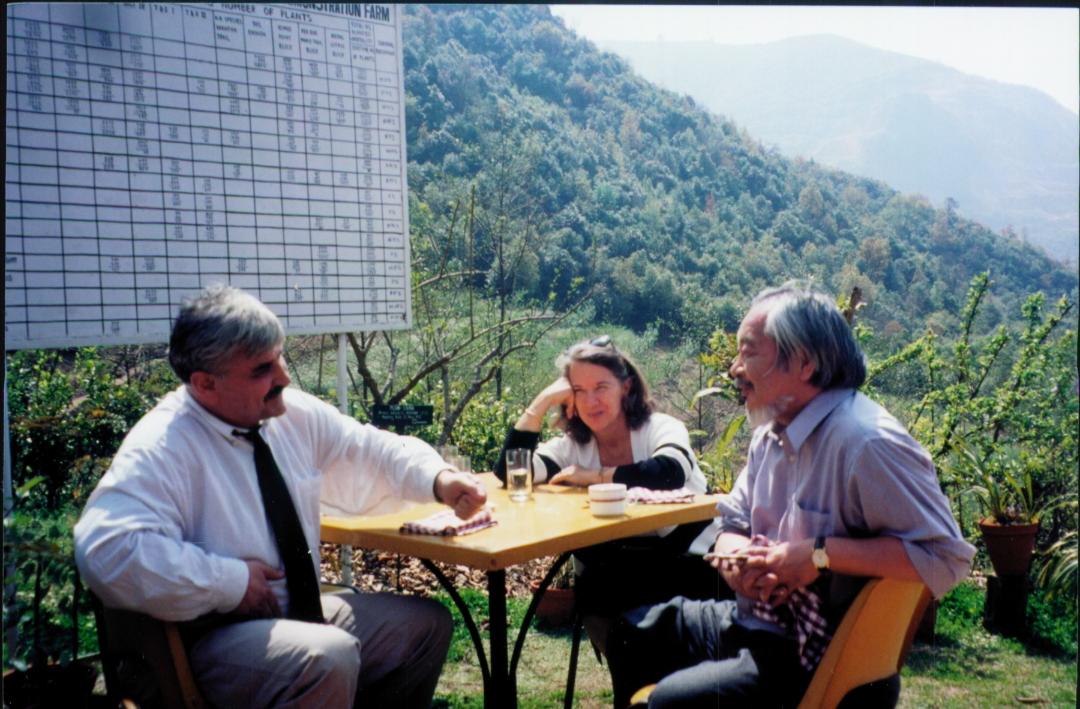
Alexander (Sascha) Tkachenko (Russian PEN), Joanne Leedom-Ackerman (American PEN/PEN Int’l), Mitsakazu Shiboah (Japan PEN) at the 2000 Writers in Prison Committee meeting in Kathmandu, Nepal
When Sascha suddenly turned up dead in 2007 at age 63, we were all shocked. Some speculated perhaps he drank too much vodka; he had a heart condition. We accepted that it was “heart failure” though even at the time, the skeptical voice questioned whether there could have been foul play. As I witness now the carnage in the Ukraine and have since seen the incidents of murder and recently read accounts of those who have been eliminated in Russia in books such as Bill Browder’s Red Notice and the new Freezing Order, doubts again stir about Sascha’s sudden end. I wonder how he would have reacted to the drama playing out today and the closing down of any freedom of dissent in Russia. Today there are additional PEN Centers in Russia—PEN Moscow, PEN St. Petersburg, Tartar PEN, and writers I’m told have differing views among them. But Sascha I feel certain would have defended the right to dissent, to stand up for the freedom to live.
Below is the tribute I wrote at the time. I feel I am mourning Sascha all over again as we mourn the loss of the freedoms he and others struggled for, and we mourn the loss of this vision of a nation.
December 7, 2007
General Secretary of Russian PEN Alexander Tkachenko –Sascha as he is known to his friends—died this week, peacefully in his sleep, we are told. It is hard to imagine Sascha passing anywhere peacefully, certainly not from this world.
As Russian PEN’s General Secretary, this hearty man with salt and pepper hair and moustache, this former professional soccer player and respected poet campaigned fearlessly for writers threatened in Russia. He often stood his ground with officials, bureaucrats, the military and with Vladimir Putin himself. When Putin once visited the Russian PEN offices, Sascha challenged him directly on the rights of writers and freedom of expression in Russia.
Sascha traveled the huge expanse of Russia from one end to the other to lobby, to argue, to advocate on behalf of writers who faced imprisonment by the Russian state, writers such as Grigory Pasko, the journalist and poet who was arrested after reporting on Russia’s dumping of nuclear waste. He championed as well those in former regions of the Soviet Union, in Tajikistan, Kazakhstan, Kyrgyzstan, Uzbekistan, Turkmenistan. He also spoke out and represented the voice of Russian writers on behalf of imprisoned writers around the world.
Sascha served on the Board of International PEN and attended PEN conferences and Congresses for the past decade. My personal memories are many. I particularly remember standing side by side with Sascha at Istanbul University in 1997 surrounded by riot police as we addressed a crowd of thousands with a bull horn. We were the two representatives of PEN advocating for freedom for Turkish writers in prison.
When the Russian government threatened to close Russian PEN in 2006 because of alleged tax payments suddenly demanded, PEN centers around the world rallied to help. I was International Secretary of PEN at the time and able to meet with Sascha and members of Russian PEN in Moscow as these payments were secured. That meeting was also attended by Rakhim Esenov from Turkmenistan, an elderly former general whose novel had been banned and who had been imprisoned for his book allegedly being “historically inaccurate.” Only a week before American PEN had given Esenov its Freedom to Write Award in New York. He was on his way home through Moscow, where Sascha and Russian PEN offered additional moral support as he returned to face the threats of his government.Rally at Istanbul University [Includes Soledad Santiago (San Miguel Allende PEN), James Kelman (Scottish PEN), Alexander (Sascha) Tkachenko (Russian PEN), Kalevi Haikara (Finish PEN), Joanne Leedom-Ackerman, (PEN International Writers in Prison Committee Chair/American PEN), and Turkish Conference organizer Şanar Yurdatapan]
Russian PEN members meeting in Russian PEN office, including General Secretary Alexander (Sascha) Tkachenko (center), 2006
When I think of Sascha, I first hear his laughter and then his arguments, then his particular English; I see his hands waving as he talks, see him reluctant to yield a microphone until his point is made; I see him as he must have been as a young man blocking and running down the field as a soccer player, bobbing and weaving, pushing past those who would try to stop him as he drove to the goal. In his last decades that goal was getting writers out of prison. Sascha was an advocate we all would want on our side should we find ourselves threatened or in prison. He will be mourned and sorely missed.
His funeral is in his home village of Peredelkino December 10, Human Rights Day. He would have liked that framing of time on his passing, though he will not really pass; he will simply rest in our thoughts and rise in our thoughts when courage is called for and an advocate is needed. When a government acts as though it is more powerful than the individual, Sascha’s memory will remind us of the power of one. His voice continues through his writing, and the impact he has had on the lives of writers imprisoned continues.
—Joanne Leedom-Ackerman
Tempus Fugit/Carpe Diem!
This week PEN International came together virtually for its annual Congress with writers from around the world. What was to have been a large celebratory gathering in Oxford and London for PEN’s Centenary, disaggregated into voices and pictures on a screen from every corner of the globe. Some had easier internet access than others, but the majority of PEN’s 155 centers were at least able to zoom in for portions of the celebration and for the election of a new PEN International President, Turkish novelist Burhan Sönmez as well as three new board members and new Vice President William Nygaard.
After serving six years as the first woman President of PEN International, Jennifer Clement stepped down, heralding PEN’s work on freedom of expression and “the unique revolutionary value of literature in the transformation of individual lives and societies.” In taking on the presidency, Sönmez warned against a new epidemic of authoritarianism in the world and also emphasized the importance of literature and imagination and PEN’s work protecting the freedom of writers to imagine and create.
A hundred years go the first president of PEN John Galsworthy said in a toast at PEN’s first dinner: “We writers are in some sort trustees for human nature. If we are narrow and prejudiced, we harm the human race.” At its Centenary Congress PEN reaffirmed the commitment made in a “Statement of Arms,” approved by London PEN in 1926: “The P.E.N. Club stands for hospitality and friendliness among writers of all countries; for the unity, integrity and welfare of letters; and concerns itself with measures which contribute to these ends. It stands apart from politics. We affirm that PEN is a place of hospitality for all writers without exception and a space of kinship among colleagues. We work for the unity of letters through dialogue and translation. We stand apart from politics and political regimes with the mission of defending freedom of expressing, linguistic rights and equality.” In the 5th PEN Congress in 1927, these principles evolved into the first three articles of the Charter of PEN.
PEN’s Centenary Congress featured discussion with longtime voices in PEN, including Margaret Atwood, Orhan Pamuk, Boris Novak, Salman Rushdie, John Ralston Saul, Homero Aridjis, Per Wastberg, Eugene Schoulgin, Ngugi wa Thiong’o and J.M. Coetzee and testimonies from former PEN cases Enoh Meyomesse, Can Dundar, Dareen Tatour and Ma Thida, who was elected as the new chair of PEN International’s Writers in Prison Committee.
Resolutions were passed protesting the situations in Myanmar, Belarus, Nicaragua, and Israel. Two new centers of PEN were welcomed—PEN Malta and PEN Quechua Bolivia.
In the past month we have witnessed some withering scenes, particularly in Afghanistan where just eighteen years ago, PEN was able to open a center which grew into a vibrant home for literature and culture with the publication of over 500 manuscripts of Afghan writers, men and women from all backgrounds. Today finds many of these members in peril; some have been killed, and many are in hiding or fleeing. As has been the case in other countries, we hope and work for sanctuary to be found and hope eventually new life can be nurtured and flourish.
Tempus fugit—the Latin expression attributed to Ovid and to his contemporary Virgil—is corollary to the Latin carpe diem! The flight of time and the seizing of the day seem apt exhortations for this period especially as the conventions of the pandemic continue to keep us apart and at the same time impel the most creative use of new technologies to connect us with each other.
This month I am again posting a retrospective of blogs. (Readers can click the date and title to read the full post or click the “cont.” note at the bottom.) These September essays begin in 2008. The geography ranges over work and writing from Nigeria, Tanzania, Uganda, China, Japan, Turkey, South Korea, Iceland, the U.S., Sweden, Ukraine, Russia, Spain, Slovenia, Germany, Denmark, Senegal, and Mexico. They are journeys of the heart and mind over 13 years and of many air miles. By contrast, I took my first plane ride in 18 months last week, from Washington, DC to Boston.
Sitting in my chair by a river with a portable desk in my lap, I range in my thoughts over the globe with the continued hope of us all reconnecting next year.
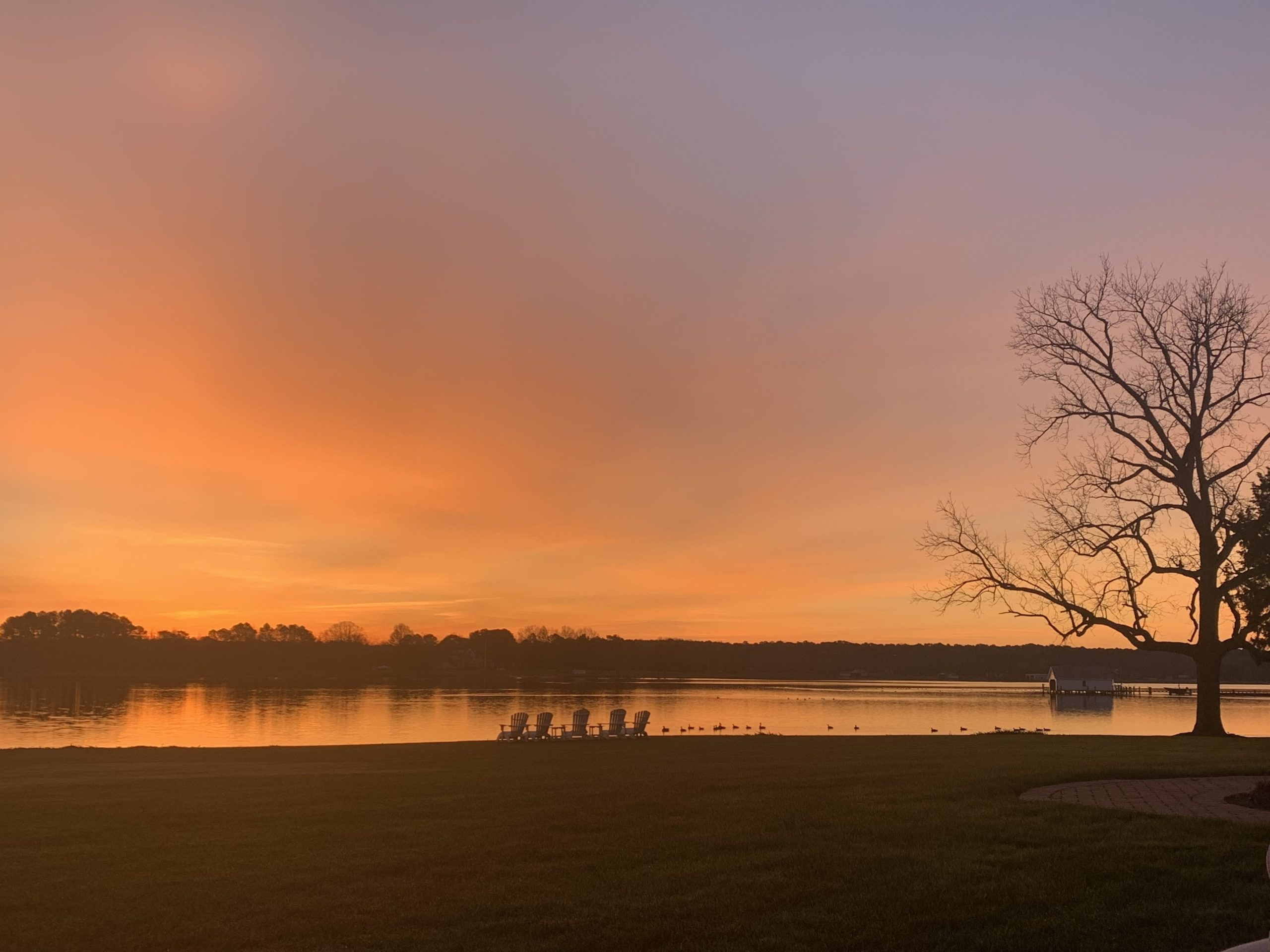
Photo credit: Joanne Leedom-Ackerman
September 30, 2008: African Snapshots
Nigerian Night
The night sky swarmed with pale insects like snowflakes fluttering outside the window of the airplane as it landed at the small airfield in Northern Nigeria. At first they looked like moths, but they were hundreds…thousands of grasshoppers diving into the headlights and fuselage of the plane. Were they cruising the night sky, interrupted by our descent, or had the lights and the hum of the airplane drawn them to their end?
Inside the terminal a luggage belt creaked as bags were pushed one at a time through a small portal onto a set of rollers. When the lights went out and the terminal fell dark, we waited, but the power didn’t return. One by one cell phones flipped open– small arcs of light aimed at the weathered belt as the passengers from Lagos searched for their bags. Dragging suitcases behind us, holding cell phones in front of us to light the way, we plunged into the warm night.
I was in Nigeria as a board member of Human Rights Watch which held meetings there last year. We spoke with government officials after a dubious presidential election. We met with lawyers and human rights activists and teachers and judges and other members of civil society. See HRW reports on Nigeria. We brought experience, research, and expectations. We gained further experience, laid out the expectations, found bridges and absorbed the cacophony of the night.
Tanzanian Morning
On the eastern edge of Africa on the coast of Tanzania the sun rises out of the Indian Ocean like a giant topaz transported from the sub-continent. Around the sun the ocean crashes against the rocks on the coast of Dar es Salaam.
After breakfast I climb into a four-wheeled drive vehicle to go outside the city to visit schools in the countryside where children and teachers are reading and writing and telling stories in Kiswahili and making books to share with other children in the local language. The Children’s Book Project, started in Tanzania in 1991 and has assisted in bringing hundreds of books to publication, distributed these paperback readers into schools, set up libraries in the schools, and trained teachers and artists on how to write and illustrate books and how to teach with these readers. The schools where the CBP is involved have regularly out-performed many of the schools in the country.
In one classroom students perform a story they have read in one of the storybooks. Tabu wa Taire was written by a teacher and tells of a young girl who doesn’t listen to her parents and prefers to play rather than work. One day she wanders too far from home and is captured by a man who puts her inside his drum. Her parents and the village look everywhere for her, but can’t find her until the man comes to their village to play his drum. Someone hears crying from inside the drum, and there the village finds and rescues the girl. The students act out this story for the class and the visitors and end with a celebratory concert on the drum and orange fantas all around.
Ugandan Afternoon
We drive through the bush along a narrow dirt road, the sun beating on the closed windows, the trees hanging down over the path, crowding the road on both sides so that the 4-wheel drive car is literally pushing back the brush as we plow carefully around the turns, occasionally dodging another car or long-horned cattle who amble across the one-lane road to graze on the other side.
We are several hours outside of the capital Kampala and over an hour off the main road, rocking from side to side in the dense undergrowth when suddenly we come to a clearing and a school. The school’s red earthen huts rise from the ground with tin roofs. There are no doors on the huts. There are few books here, and the learning materials hang from the ceilings so that the cows, who can wander in and out of these classrooms, won’t destroy them.
This school is for 75 children of pastoralists–families who make their living tending cattle, moving from place to place with their cows looking for grazing lands. The children usually travel with their parents and don’t have an opportunity to go to school. But here in the clearing, on land donated by one of the more successful in the community, a school has been built; the roofs have been donated by the son of one of the wealthier families. Teachers have been recruited and trained by Save the Children. The children in the school are studying in grade levels 1-4 with the hope that the school will be able to add grades as the children grow. Because there is a school, many of these families, at least the women, will stay in the area while the children attend classes. Some of the women are discussing how to keep the cows out of the classrooms.
September 30, 2009: China at 60–Fate of Liu Xiaobo?
On its 60th Anniversary, China is Still Crushing Freedom
Congress should pass Resolution 151 to speak out on behalf of arrested dissident Liu Xiaobo.
From The Christian Science Monitor
WASHINGTON – The People’s Republic of China celebrated its 60th anniversary today with massive military parades, fireworks, and concerts throughout the country. In mid-November, President Obama will make his first presidential visit to Beijing, marking the 30th anniversary of Chinese-U.S. relations with an agenda likely to include the environment, security, and the global economy.
In the time between these milestones, the fate of an individual Chinese citizen hangs in the balance and may well foreshadow future relations with China. Liu Xiaobo, one of China’s leading writers, intellectuals, and dissidents, is expected to come to trial and be sentenced after the anniversary celebrations and before the president’s visit.
That’s why Congress must act quickly. The proposed Resolution 151 calls for Mr. Liu’s release and urges China to “begin making strides toward true representative democracy.” The resolution notes Liu’s own words: “The most fundamental principles of democracy are that the people are sovereign, and that the people select their own government.”
Resolution 151 should be passed with dispatch before Liu’s trial and sentencing so that it might signal to Beijing how much America cares about the lack of freedom in China. Liu was arrested last December and charged this June with “inciting subversion of state power” for his role as one of the principal drafters of Charter 08, a document that set out a democratic vision for China. Charter 08 was originally signed by more than 300 leading writers, engineers, teachers, workers, farmers – even former public servants and Communist Party officials. It was subsequently signed by more than 10,000 Chinese citizens. The document was circulated widely on the Internet, though it is now blocked in China.
Patterned after Charter 77, which demanded basic civil and political rights in Czechoslovakia when it was under Soviet domination, Charter 08 calls for nonviolent democratic change in China and for a government that recognizes that freedom “is at the core of universal human values,” and human rights are inherent, “not bestowed by a state.”
In a recent visit to Capitol Hill, writers from the Independent Chinese PEN Center, where Liu is a former president, as well as American writers, urged members of Congress to accelerate the passage of Resolution 151. The Chinese writers, who were in touch with Liu up until the day he was arrested, say that they believe a resolution by the US Congress would have a beneficial effect and help mitigate the severity of the sentence, which could be as much as 15 years. However, the resolution needs to pass before his trial and sentencing; otherwise it will come too late….[cont]
September 30, 2010: Full Moon Over Tokyo
Flying west 15 hours I never saw the sun set, but in the evening, between the skyscrapers of Tokyo, I glimpsed the full moon I’d left the night before shimmering on the Potomac, the same full moon beaming down over China, Myanmar, and Vietnam. I found myself contemplating whether the writers in prison in those countries could also glimpse the luminous golden light from a corner of their prison cells. I was in Tokyo for PEN International’s 76th Congress.
Writers from 90 centers of PEN gathered to discuss “The Environment and Literature—What can words do?” and to commemorate the 50th Anniversary of PEN’s Writers in Prison Committee, that particular group of writers who advocate on behalf of colleagues imprisoned, threatened or killed for the expression of their ideas.
In its history, PEN International’s Writers in Prison Committee has been instrumental in getting the releases of such well known writers as Arthur Koestler, Wole Soyinka, Vaclav Havel as well as thousands of others in countries on every continent and from every political condition, from fascist regimes, communist regimes, marginal and faux democracies, wherever words were considered subversive and powerful enough to threaten. At the moment the most cases and the longest prison sentences for writers are in China, Myanmar, Vietnam and Iran, but writers are under threat in over 60 countries with the internet offering a new frontier for protection of free expression.
At the keynote ceremony of the PEN International Congress a play, Water Letters by Hisashi Inoue, dramatized the theme of the earth’s and mankind’s connectedness, especially through water. Human beings are largely made of water, and water—rivers, streams, oceans—links us all, the characters intoned. If the source of water is threatened in one area, there are repercussions in another. There is one earth, one people; the environment is in our hands.
The same can be said of freedom of expression. The 11-year imprisonment of Liu Xiaobo for urging democratic reform in China not only imprisons the man but the possibility of his next ideas. The imprisonment of writers in Myanmar and Vietnam, the more than 60 imprisoned writers, journalists, and bloggers in Iran affect the flow of ideas worldwide. The more than 50 journalists killed in Mexico chills freedom and undermines the rule of law beyond Mexico’s borders.
Yet ideas, like water, have a way of flowing around barriers and through bars and seep into the stream of thought if passed from one person to the other. And so writers outside prison pass on the work and writing of their colleagues.
Looking up at the moon, we contemplate the universe from the same point of focus and glimpse for a moment our connectedness.
September 28, 2011: Bridge Over the Bosporus: Citizenship on the Rise
The sun glints off the waves of the Bosporus as the wind skims across the surface of the water, and power boats, tourist ships and ferries cruise between the shores of Europe and Asia on Istanbul’s great waterway. I’ve arrived to an Indian summer in this city at the crossroads of Europe, Asia and the Middle East after a PEN International Congress an hour and a half away in Belgrade where the theme was Literature—Language of the World.
I’m here with purpose and meetings, but for the afternoon I have a few hours to sit on the banks of the waterway and write and contemplate the bridges linking the two continents and consider what it takes to construct and maintain a bridge.
While I’m in Istanbul, the newspapers have been filled with headlines about Turkey’s Prime Minister Erdogan’s trip to Libya, Egypt and Tunisia and his message to those involved in the Arab Spring. He urges the citizens to adopt “laicism” and become “laic states” like Turkey. (‘Laicism’ is the secular control of political and social institutions in society.) The message from this Muslim leader has stirred controversy, especially from neighboring Iran which has warned against the Western secular state.
The bridge at question here is a mighty and lengthy suspension bridge between religion and politics, between the state and its citizens. It swings over centuries of history. The concept of “citizen” wasn’t applicable for a large swath of history and geography and is still problematic in many countries which perceive their residents as serving the state and those in power, which often include the clergy, rather than the state and its leaders serving their citizens.
All one needs to do is wander through the grounds of the splendid and opulent Topkapi Palace, which Sultan Mehmed built after he conquered Constantinople (now Istanbul) in the fifteenth century. He declared the city as one of the three capitols of the Ottoman Empire and proceeded to spend the state’s treasury on the palace. Later others spent it on a lavish harem filled with women who only the Sultan had the right to visit. The Ottoman Empire, which stretched over two million square miles at its height and spanned over 600 years, bore the motto: “The Eternal State.”
A decade after the Sultan finished his new palace at Sarayburnu, Spanish trading ships sailed across the Atlantic and ran into a land they named America. Here ideas of citizenship would evolve and the residents of this new territory would challenge, along with those from other nations, the monarchies and empires of Europe.
The role and boundaries of citizenship continue to evolve. I remain hopeful that the full rights of all citizens might emerge in the uprisings in the Middle East. On the Bosporus I’m sitting now on the European side, and I see that the ferry I’ve been watching has arrived on the Asian shore.
September 15, 2012: North Korean Writers in a Land of the Rising Sun
I’m flying home from the 78th PEN International Congress in Gyeongju (Kyongju), South Korea, peering out the airplane window under the shade at the floor of clouds. The sun is just beginning to emerge above the horizon, turning the white billowing floor red as if fire were simmering beneath. On the horizon the orange-yellow line of sunlight glows then diffuses into the blue sky. The sun itself suddenly appears, a solid bold globe of fire, and the fire beneath the clouds grows dark.
However many sunrises I watch in however many circumstances—on airplanes, on a beach, in a city building, I take pause in wonder, breathe in and watch the larger movement of life.
Returning at 30,000 feet from a conference of writers from 85 PEN Centers around the world, I remember the first time I was in Korea 24 years ago—over 8700 sunrises ago. At PEN’s Congress in Seoul in 1988, a week before the Olympic Games security was high with bomb sniffing dogs and extensive car checks. The political environment was tense. Writers and publishers were in prison in South Korea, and PEN was divided on how to conduct its business in a country where freedom of expression was challenged. A contingent visited the writers in prison; I visited with the family of one of the writer/publishers. We lobbied inside and outside the official Congress for the freedom of these writers. After the Congress a number were released, including the one whose family I had visited.
Now 24 years later there are no writers or publishers in prison in South Korea. The PEN gathering in the mountainous city of Gyeongju, the ancient capital of the Shilla Dynasty where the rays of the rising sun first touch the land, focused instead on writers from North Korea, where there is no freedom….[cont]
September 16, 2013: Parallel Universe in a Glassed Concert Hall in Iceland
If you want to understand politics—it’s like being in a book club where everyone discusses the grammar.
So said actor/comedian Jon Gnarr, Mayor of Reykjavik, Iceland when he addressed the recent 79th PEN International Congress. Gnarr was elected Mayor in 2010 from the Best Party, which he and friends with no background in politics created as a satirical party after the economic meltdown in Iceland a few years ago. They won over a third of the seats on the City Council with a platform that included free towels in all swimming pools, a polar bear for the zoo and “all kinds of things for weaklings.” After he was elected, Gnarr declared he wouldn’t form a coalition government with anyone who hadn’t watched the TV series The Wire.
The politician with a short black tie, a sense of humor and a view of politics as a parallel universe resonated with the audience of over 200 writers at the Opening Ceremonies of the PEN Congress. Writers from 70 centers of PEN gathered to deliberate and debate literature and the situation for writers and freedom of expression around the world, a world they agreed often bordered on the absurd, but the absurd with serious consequences.
The Assembly discussed and passed resolutions on the challenges to freedom of expression in countries including Mexico, China, Cuba, Vietnam, North Korea, Eritrea, Belarus, Syria, Egypt, Turkey, Tibet, and Russia. The delegates walked en masse to the Russian Embassy to present their resolution protesting the recent legislation on blasphemy and “gay propaganda.” And they applauded the announcement during the Congress of the release of Chinese poet Shi Tao 15 months before the end of his 10-year sentence….[cont]
September 8, 2014: Boston on a Sunday Afternoon
The sun is shining. The swan boats are cruising on the pond in the Boston Commons. Joggers are jogging along the park. Children are running after ducks; parents are running after children. University students have returned en mass from summer so the hum of young people hums in Boston and its neighboring city of Cambridge, ever the student’s town. People from all backgrounds, speaking Spanish, Vietnamese, Arabic, French, Russian and languages I don’t recognize pass by as I sit on a park bench.
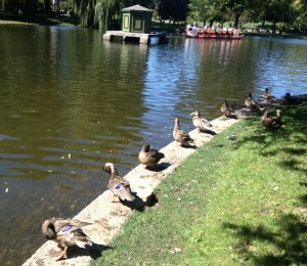
For a moment I don’t want to think about ISIS or terrorists’ attacks or the beheadings of writers, who are friends of people I know, writers and their families whom I can’t help but think about and want to honor, or to think about those who must decide what our country does next or those who will take the risk to do it.
All this is on my mind and on the minds of people in Washington where I live. But for a moment I look out and take a breath and watch Boston on a Sunday afternoon before the world accelerates, a few days before we mark again the events of 9/11. I want to savor and remember this moment just for a moment. It is the point after all.
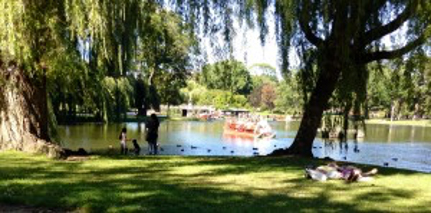
September 25, 2015: Unity on the Potomac?
The Potomac is smooth as a mirror today. The wind occasionally dusts its surface. On lamp posts by the river, American flags catch a light breeze and flutter under an overcast sky. Fall is stirring in the air though joggers still run in shorts and tee shirts and students pace to the boathouse for afternoon rowing practice.

A mile form here Washington is recovering from two major State visits in four days—first Pope Francis and literally on his papal heels, Chinese President Xi Jinping.
But here on the river with a view of Memorial Bridge and the Kennedy Center, of the traffic cruising on Rock Creek Parkway and airplanes taking off from National airport, it is unusually quiet for a Friday afternoon. Couples stroll by. A mother with a pram stops and looks out on the gray-brown water. The city is perhaps letting out its collective breath. There have been no attacks, no disasters.
Washington has feted and listened—been told to unify for greatness by the Pope and then looked for common cause with the Chinese leader who has limited shared values and certainly not an agenda of individual freedom.
It is always an existential question whether America—“one nation under God with liberty and justice for all”—can live its ideals and live in the world.
From a political point of view, the right to dissent and the forums to express disunity are fundamental and the very evidence of a nation breathing, of a democracy working. No one is arrested or imprisoned for their disagreements. We have the freedom to be in gridlock though surely there is a better way to demonstrate freedom. The question ahead as political campaigns heat up is whether we can breathe and disagree and at the same time govern and guide.
The spiritual call for unity is one each citizen must find in his own sanctuary, not in the halls of Congress.
As I’m writing, I hear sirens whining in the distance growing louder and louder, and in front of me on this terrace overlooking the river, a great crane appears and a wall is literally lifted out of the walkway. I’m told these walls, which lay buried most of the time, were installed after the last great flood wiped out the waterfront. The waitress returns and tells me they are now raised on any threat of a flood. Down river floods have occurred and may be moving our way.

No blog posted September 2016
September 8, 2017: “Finding Room for Common Ground: No Enemies, No Hatred”
The train from Copenhagen airport to Malmö, Sweden took just half an hour across the 21st century Øresund Bridge, which spans five miles of water, then the train dove into 2.5 miles of tunnel. Looking out the window at farmland and the blue waters of the Baltic Sea, I imagined this journey was not so easy 74 years ago with Nazis in pursuit. In 1943 as the Nazis went to sweep Denmark’s 7800 Jews into concentration camps, Danish and Swedish citizens rallied, and 7220 people managed to escape in boats across this Sound to nearby Sweden. Thousands landed in Malmö where I was headed for a less dramatic, but still fraught, occasion.

Members of the Independent Chinese PEN Center (ICPC) whose writers live inside and outside mainland China were joining writers from Uyghur PEN, Tibetan PEN and members from Inner Mongolia, along with writers from PEN Turkey and Azerbaijan for the First International Conference of Four-PEN Platform: “Finding Room for Common Ground: No Enemies, No Hatred.” Swedish PEN was providing the safe space for debate, discussion and strategies of action on human rights and freedom of expression. Just six weeks before, one of ICPC’s founding members and honorary President Nobel Laureate Liu Xiaobo, died in a Chinese prison after serving nine years of an 11-year sentence for drafting Charter 08, a document co-signed by 308 writers and intellectuals calling for a more democratic and free China.
A recognized leader in China’s Democracy Movement, Liu Xiaobo’s loss was deeply felt. A number of the writers gathered knew and worked with Liu. Most knew at least one fellow writer in prison. Many now live in exile themselves. Almost half of PEN International’s writers-in-prison cases are located in the regions represented at the conference.
 The theme “No Enemies, No Hatred”—drawn from Liu Xiaobo’s final statement at his trial—sparked the debate in Malmö.
The theme “No Enemies, No Hatred”—drawn from Liu Xiaobo’s final statement at his trial—sparked the debate in Malmö.
Keynote speaker Nobel Laureate Shirin Ebadi challenged, “But I do have enemies and I do feel hatred.” Facing death threats from her government in Iran, she had to leave everything behind at age 63 and move to London.
“Liu Xiaobo said he had no hatred and no enemies, but he also never compromised with any dictators,” she noted. “We must fight against dictators but our weapons are our pens and are nonviolent. We must not be silent. We can’t compromise with governments such as China who would eradicate an ‘empty chair’ from the internet.” [When Liu Xiaobo was unable to attend the Nobel ceremony because he was in prison, the Nobel Committee placed an empty chair on stage to represent him. The Chinese government is said to have censored the term “empty chair” from the internet in China.]
“What is the use of a pen if Liu Xiaobo is dead?” challenged one writer. Another speculated that if Liu Xiaobo had known how his life would end, he would have changed his message. A friend of Liu’s assured that he would not because for him no enemies and no hatred was a spiritual commitment….[cont]
September 28, 2017: Reclaiming Truth in Times of Propaganda
PEN International’s 83rd Congress in Lviv, Ukraine took on truth and words, history and memory, women’s access and equality, cyber trolling, fake news and threats to freedom of expression worldwide, including public panels focused on the three super powers: “America’s Reckoning—Threats to the First Amendment in Trump’s America,” “China’s Shame—How a Poet Exposed the Soul of the Party,” and “Putin’s Power Play—The Decline of Freedom of Expression in Russia.”
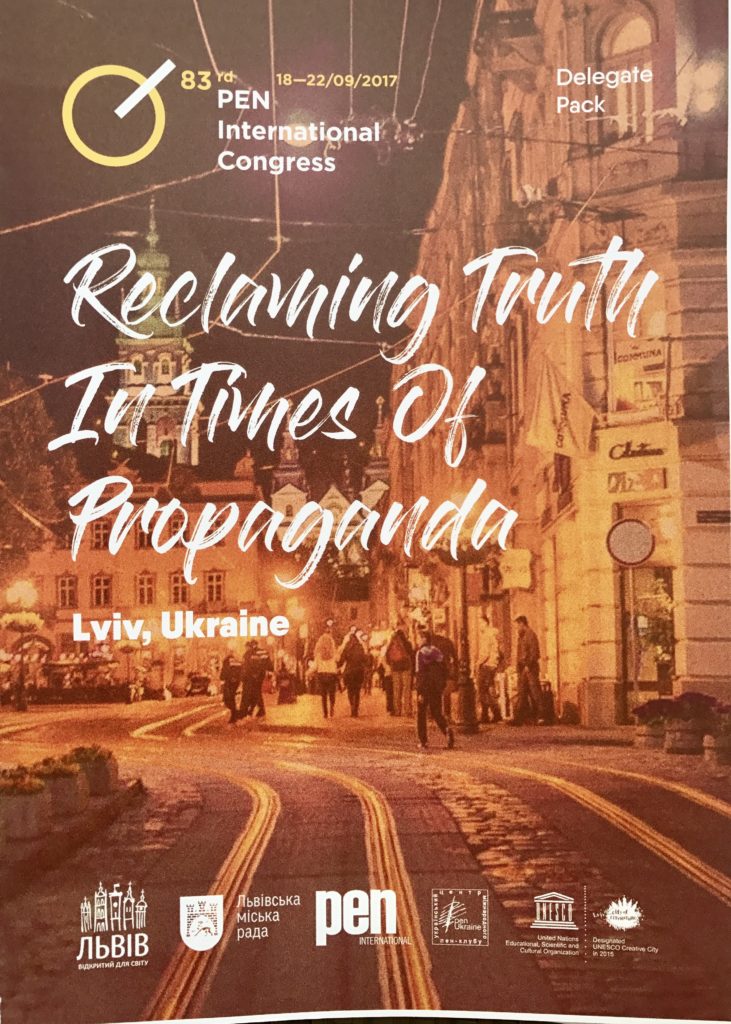

At its annual gathering PEN hosted more than 200 writers, editors, staff and visitors from 69 PEN centers around the world in the historic city of Lviv, the Cultural Capital of Ukraine and a UNESCO World City of Literature. Straddling the center of Europe, on the fault lines between East and West, Lviv changed its name and governing domain eight times between 1914 and 1944, passing from the Austro-Hungarian Empire to Russia, back to Austria, Ukraine, Poland, Soviet Union, Germany then back to the Soviet Union and now finally in the Ukraine.
The path of European history cuts through the city and can be seen in architecture, culture and conversation. Though writers celebrated literature in the western Lviv, fighting was still underway in eastern Ukraine and the Crimea. PEN’s Russian center didn’t attend the Congress at the same time a new PEN St. Petersburg center was elected. Other new centers joining PEN’s network included Cuba, the Gambia and South India.
In times of war, the first casualty is truth, noted PEN’s report “Freedom of Expression in Post-Euromaidan Ukraine: External Aggressions, Internal Challenges.” The report and the Congress addressed the aggressive role of propaganda in conflict. In Ukraine, in Russia and worldwide there has been a proliferation of false narratives.
PEN’s report on Ukraine noted: “Despite significant improvements, democracy in Ukraine remains ‘a work in progress’ and, among other things, severe challenges to the enjoyment of the right to free expression remain. These include the use of the media to foster political interests and agendas, delays in reforming state-owned media; and intimidation and attacks on journalists followed by impunity for the perpetrators. On the other hand, public criticism is growing, albeit slowly, including demands for more transparent and unbiased journalism.”
In Russia authorities are taking increasingly extreme legal and policy measures against freedom of expression, according to a PEN/Free Word Association report “Russia’s Strident Stifling of Free Speech.”

No writers are in prison in Ukraine, but in the Crimea, which Russia annexed in 2014, filmmaker Oleg Sentsov, an opponent of annexation, was arrested and is now serving a 20-year sentence inside a Russian prison on terrorism charges he denies. At PEN’s Assembly, delegates remembered Pavel Sheremet with an Empty Chair. A Belarusian-born Russian journalist and free speech advocate, Sheremet wrote for an independent news website and hosted a radio show where he reported and commented on political developments in Ukraine, Russia and Belarus. He died in a car bomb explosion in Kiev July 2016. Shortly before he was assassinated, he’d written about corruption among law enforcement in Belarus, Ukraine and propagandists in Russia. His murder remains unsolved….
PEN also passed a Women’s Manifesto noting “the use of culture, religion and tradition as the defense for keeping women silent as well as the way in which violence against women is a form of censorship needs to be both acknowledged and addressed.”
At the Opening Ceremony author of East West Street Philippe Sands, whose grandfather was born in Lviv, narrated the origins of international human rights law and the concepts “crimes against humanity” and “genocide.” These legal frameworks were developed by two lawyers who passed through the very university where the delegates sat. The legal teams prosecuting at the Nuremberg trials after World War II used these frameworks to secure convictions, including the conviction of Hans Frank, Hitler’s lawyer who governed the area around Lviv and sent over 100,000 Jews to concentration camps and death.
“The Foundations of human rights law came from here,” Sands said. “Every individual has rights under international law.” The lawyers Hersch Lauterpacht and Raphael Lemkin studied at the university at different times but never met. One escaped to Austria then England, the other to America. Lauterpacht protected the rights of the individual with the concept he developed of “crimes against humanity” and Lemkin protected the group with the legal construct for “genocide.” Both men were on the legal teams that successfully secured convictions at Nuremberg.
“No organization in the world knows better than PEN the need to protect individuals and to protect others,” Sands concluded….[cont]
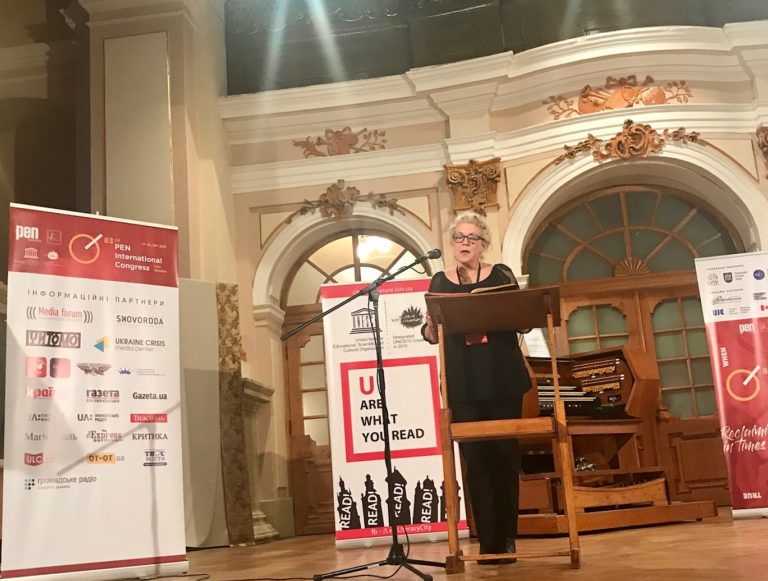
Jennifer Clement, PEN International President
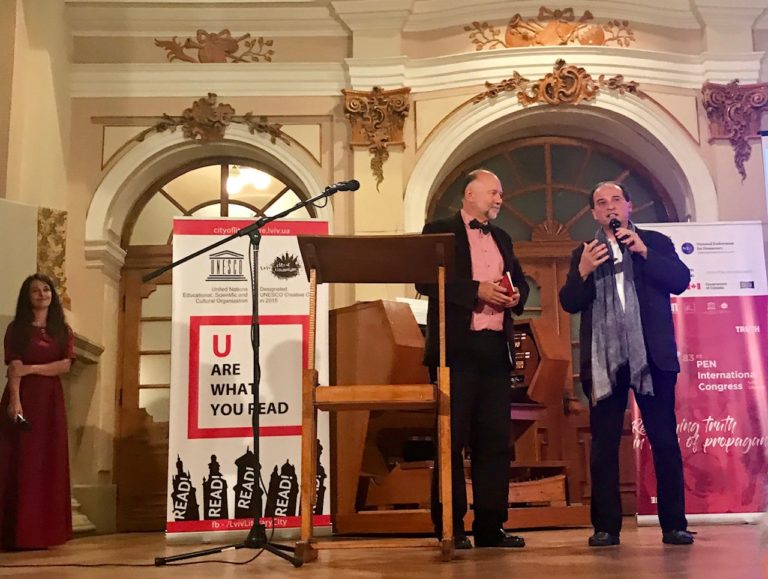
Andrei Kurkov from Ukranian PEN and Carles Torner, Executive Director PEN International
No blog posted September 2018
September 2019: [Beginning in May 2019 I started writing a retrospective of work with PEN International for its Centenary so posts were more frequent in 2019-2020. In September 2019 there were two posts in the PEN Journeys and in September 2020 there were four.]
September 3, 2019: PEN Journey 8: Thresholds of Change…Passing the Torch
PEN International celebrates its Centenary in 2021. I’ve been active in PEN for more than 30 years in various positions and now as an International Vice President Emeritus. With memories stirring and file drawers of documents and correspondence bulging, I am a bit of a walking archive and have been asked by PEN International to write down memories. I hope this personal PEN journey might be of interest.
In fall, 1991 I went to Moscow just months after the August coup attempt in which hardline Communists sought to take control from President Mikhail Gorbachev. I hopped onto the visa of my husband who was traveling to Russia as a Visiting Scholar at the International Institute of Strategic Studies in London. I went as a writer, interested in meeting other writers. I contacted fellow PEN member and Russian translator Michael Scammell, who had previously chaired International PEN’s Writers in Prison Committee (WiPC). Michael gave me a list of writers to contact in Moscow.
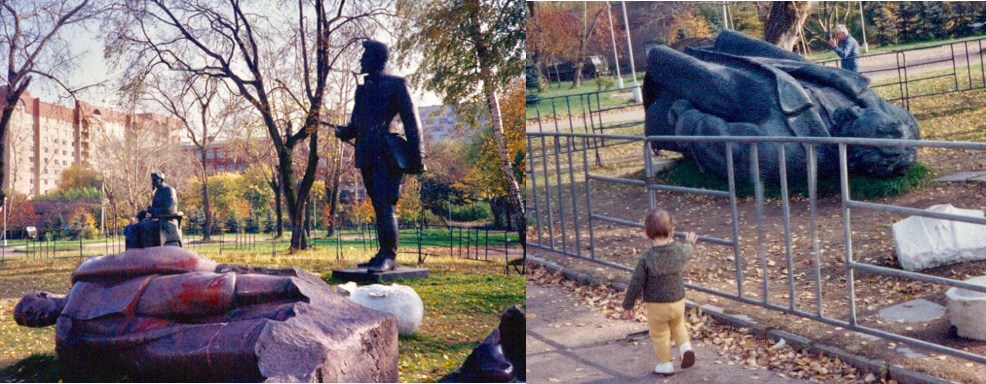
Statues toppled of Lenin and Stalin and others in park after failed coup attempt in Moscow, 1991.
My husband and I stayed in what I was told was one of the government hotels where guests were hosted but also watched. We were watched too, I’m fairly certain, though there was little for anyone to see with me. I was cautious as I made contact with the writers lest my reaching out compromise them. Only a few years before, PEN’s case list had included many dissident Soviet writers in prison. Michael and later WiPC Chair Thomas von Vegesack and PEN’s WiPC committees around the world had advocated for the release of dissident Soviet writers, many of whom were imprisoned in the gulags. PEN had also covertly sent aid to them and their families through the channels of the PEN Emergency Fund.
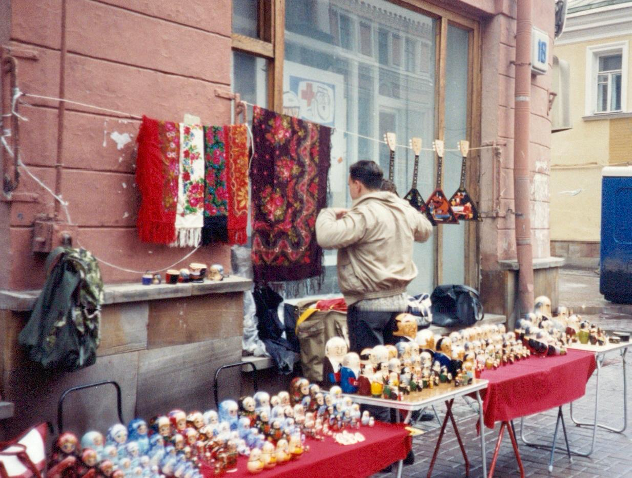
Stall of street vendor selling Russian Matryoshika dolls, including stacking dolls of Boris Yeltsin and Mikhail Gorbachev and also U.S. Presidents.
I no longer remember if I called or faxed the writers in advance. (Fall, 1991 was before an active internet.) I likely made contact when I arrived. The writers welcomed me. We met in simple apartments with old holiday cards on the mantles as decorations, a paper mobile hanging from the light fixture over one dining room table I recall, strips of newspaper stacked by the toilets in lieu of tissue. The economy was spare for these writers. They hoped for change and for freedoms to come, but they were cautious. In these meetings and in other random encounters, people were curious about the United States. On the street, vendors not only sold Russian nesting dolls with the rushed visages of Boris Yeltsin, who had defied the tanks of the coup, and of Gorbachev but also stacking dolls of U.S. presidents, including one set that had George Washington and Abraham Lincoln. I was asked by numbers of people, including the writers, if I could get them copies of the U.S. Constitution and the Federalist papers. The Berlin Wall had fallen and times were changing, but no one knew how that change would settle out in the Soviet Union.
I remember one meeting in Moscow with members of a women’s theater cooperative—actresses, director, costume designer, and playwright. Before the member who spoke English arrived, we were left to communicate with each other by hand gestures and a few common words. Finally, the sturdy, broad-chested Russian writer who spoke English entered. I asked her what she did during the coup attempt. She stood, spread out her arms and declared triumphantly, “I stopped the tanks with my breasts!” This image has stayed with me, along with her words and the determined words of her fellow thespians and writers in that apartment, women demanding as their due freedoms they hadn’t yet experienced….[cont]
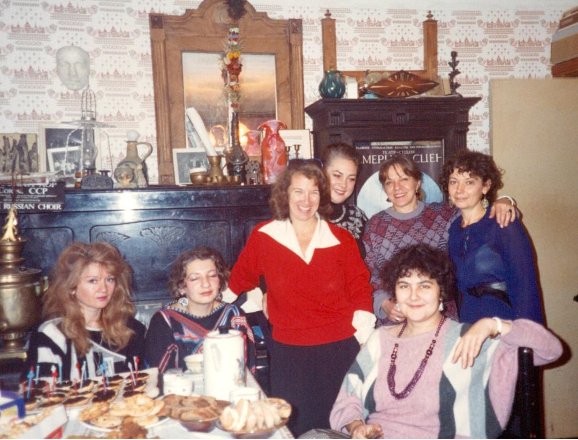
Joanne and members of Russian women’s theater cooperative in Moscow apartment, 1991.
September 20, 2019: PEN Journey 9: The Fraught Roads of Literature
Twelve-foot puppets danced outside the dining room’s second floor windows at our hotel, billed as the “oldest hotel in the world,” set on the central plaza of Santiago de Compostela, Spain, the venue for PEN International’s 60th Congress.
Sara Whyatt, coordinator of PEN’s Writers in Prison Committee, and I hurried to finish breakfast and our agenda before we joined the crowds outside at the historic Festival of St. James. That evening International PEN’s 60th Congress would convene. Hosted by Galician PEN, the Congress had as its theme Roads of Literature, which seemed appropriate as pilgrims from around the world also gathered on the Obradoiro Plaza in front of the ancient Cathedral, the destination for their Camino.
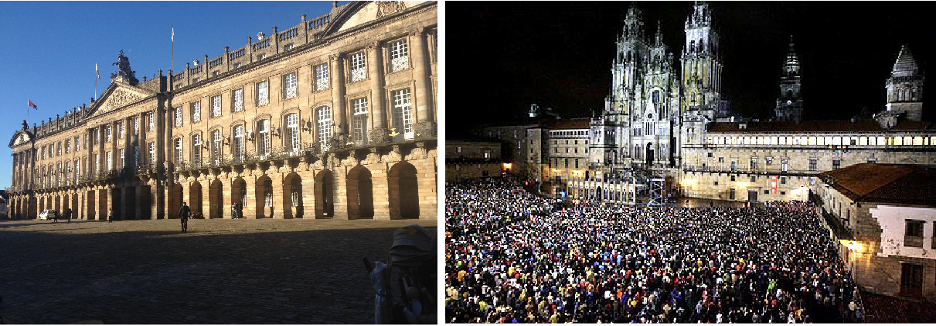
Parador Hotel, Santiago de Compostela St. James Festival, Obradoiro Plaza, Santiago de Compostela
At this Congress the presidency of PEN was changing hands as was the chairmanship of the Writers in Prison Committee, which I was taking over from Thomas von Vegesack. Ronald Harwood, the British playwright, was assuming the PEN presidency from Hungarian novelist and essayist György Konrád, who had been a philosophical president, often running the Assembly meetings like a stream of consciousness event where the agenda was a guide but not necessarily a governing map. Ronnie ran the final meeting like a director and dramatist, determined to get the gathering from here to there with a path and deadline. Both smart, experienced writers, committed to PEN’s principles, they had very different styles. Known only to a few of the delegates a surprise visitor was also arriving mid-Congress.
The 60th Congress in September 1993 was a watershed of sorts. It was the first since the controversial Dubrovnik gathering six months before which had split PEN’s membership (see PEN Journey 8) because of the war in the Balkans.
Konrád’s opening speech to the Assembly explained that PEN’s leadership had gone ahead with the congress over the many objections from PEN centers because the venue had been approved earlier by the Assembly and the host center had been unwilling to postpone. He acknowledged the widespread criticism and also the concern that some individuals who fomented the Balkan wars and participated in alleged war crimes were writers who had been members of PEN. He said, “That these men of war also include men of letters, indeed that these latter are well represented, painfully confronts our professional community with the notion of our responsibility for the power of the Word. Nationalist rhetoric led to mass graves here, and there. Mutual killings would not have been on such a scale in the absence of words that called on others to fight or that justified the war.”
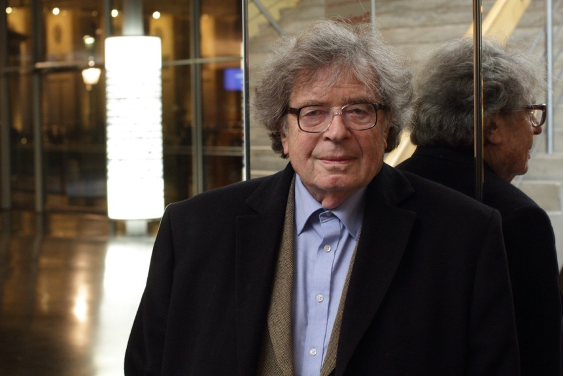
György Konrád, PEN International President 1990-1993, Credit: Gezett/ullstein bild, via Getty Images
Konrád’s address at the opening session went a way in bringing the delegates together. “What we can do is to try and ensure the survival of the spirit of dialogue between the writers of the communities that now confront each other….International PEN stands for universalism and individualism, an insistence on a conversation between literatures that rises above differences of race, nation, creed or class, for that lack of prejudice which allows writers to read writers without identifying them with a community…
“Ours is an optimistic hypothesis: we believe that we can understand each other and that we can come to an understanding in many respects. The existence of communication between nations, and the operation of International PEN confirm this hypothesis…PEN defends the freedom of writers all over the world, that is its essence.”
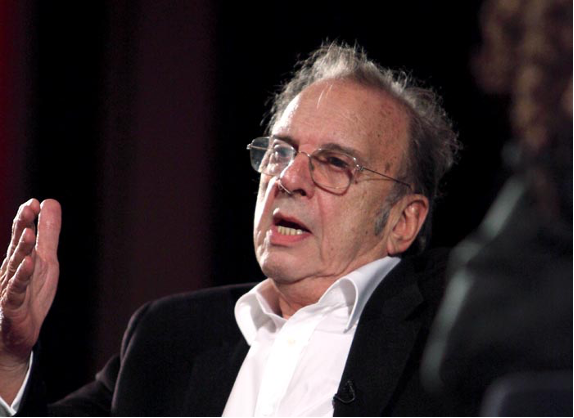
Ronald Harwood, PEN International President 1993-1997. Credit BAFTA
Ronald Harwood added in his acceptance for the presidency: “The world seems to be fragmenting; PEN must never fragment. We have to do what we can do for our fellow-writers and for literature as a united body; otherwise we perish. And our differences are our strength: our different languages, cultures and literatures are our strength. Nothing gives me more pride than to be part of this organization when I come to a Congress and see the diversity of human beings here and know that we all have at least one thing in common. We write…We are not the United Nations…We cannot solve the world’s problems…Each time we go beyond our remit, which is literature and language and the freedom of expression of writers, we diminish our integrity and damage our credibility…We don’t’ represent governments; we represent ourselves and our Centres…We are here to serve writers and writing and literature, and that is enough…And let us remember and take pleasure in this: that when the words International PEN are uttered they become synonymous with the freedom from fear….”[cont]
September 2, 2020: PEN Journey 40: The Role of PEN in the Contemporary World
At the end of September 2005 a Danish newspaper published 12 editorial cartoons which depicted Mohammed in various poses as part of a debate over criticism of Islam and self-censorship. Muslim groups in Denmark objected, and by early 2006 protests, violent demonstrations and even riots erupted in Muslim areas around the world. The offense was the “blasphemy” of drawing Mohammed in the first place and the particular mockery of some of the depictions in the cartoons.
The uproar over the Jyllands-Posten Mohammed cartoons quickly drew PEN into the controversy, first through Danish PEN and then through the International PEN office and other PEN Centers. PEN included many Muslim members and numbers of centers in majority Muslim countries. All PEN members and centers endorse the ideals stated in the PEN Charter. However, the third and fourth articles of the Charter which addressed the situation, also at times appeared to contradict each other:
Article 3: “Members of PEN should at all times use what influence they have in favour of good understanding and mutual respect between nations and people; they pledge themselves to do their utmost to dispel all hatreds and to champion the ideal of one humanity living in peace and equality in one world.”
Article 4: “PEN stands for the principle of unhampered transmission of thought within each nation and between all nations, and members pledge themselves to oppose any form of suppression of freedom of expression in the country and community to which they belong as well as throughout the world wherever this is possible. PEN declares for a free press and opposes arbitrary censorship in time of peace. It believes that the necessary advance of the world toward a more highly organized political and economic order renders a free criticism of governments, administrations and institutions imperative. And since freedom implies voluntary restrain, members pledge themselves to oppose such evils of a free press as mendacious publication, deliberate falsehood and distortion of facts for political and personal ends.”
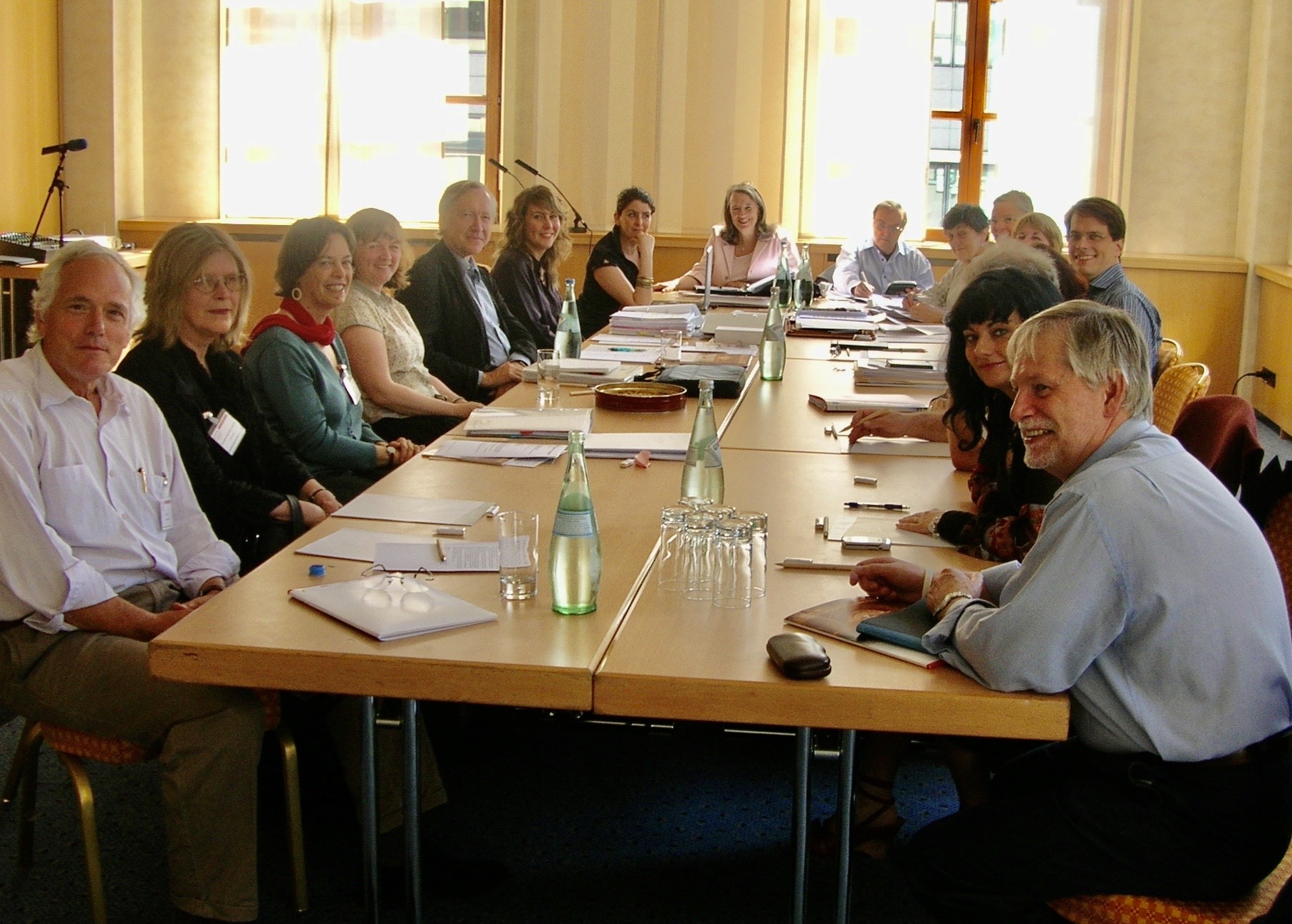
PEN International Board and Staff 2006. L to R: Eric Lax (PEN USA West), Elizabeth Nordgren (Finish PEN), Jane Spender (Programs Director) Sara Whyatt (Writers in Prison Committee Director), Eugene Schoulgin (Norweigan PEN), Caroline McCormick Whitaker (Executive Director), Karen Efford (Programs Officer), Joanne Leedom-Ackerman (International Secretary), Jiří Gruša (International President), Judith Rodriguez (Melbourne PEN), Britta Junge-Pederson (Treasurer), Judith Buckrich (Women Writers Committee Chair), Chip Rolley (Search Committee Chair), Sylvestre Clancier (French PEN), Sibila Petlevski (Croatian PEN), Peter Firkin (Centers Coordinator) [not pictured: Mohammed Magani (Algerian PEN), Karin Clark (WiPC Chair), Kata Kulavkova ( Translation and Linguistic Rights Chair)
At the Peace Committee conference that April, I observed, “The Charter of PEN asserts values that can appear contradictory, but represent the dialectic upon which free societies operate and tolerate competing ideas…In our 85th year, International PEN still represents that longing for a world in which people communicate and respect differences, share culture and literature, and battle ideas but not each other….”[cont]
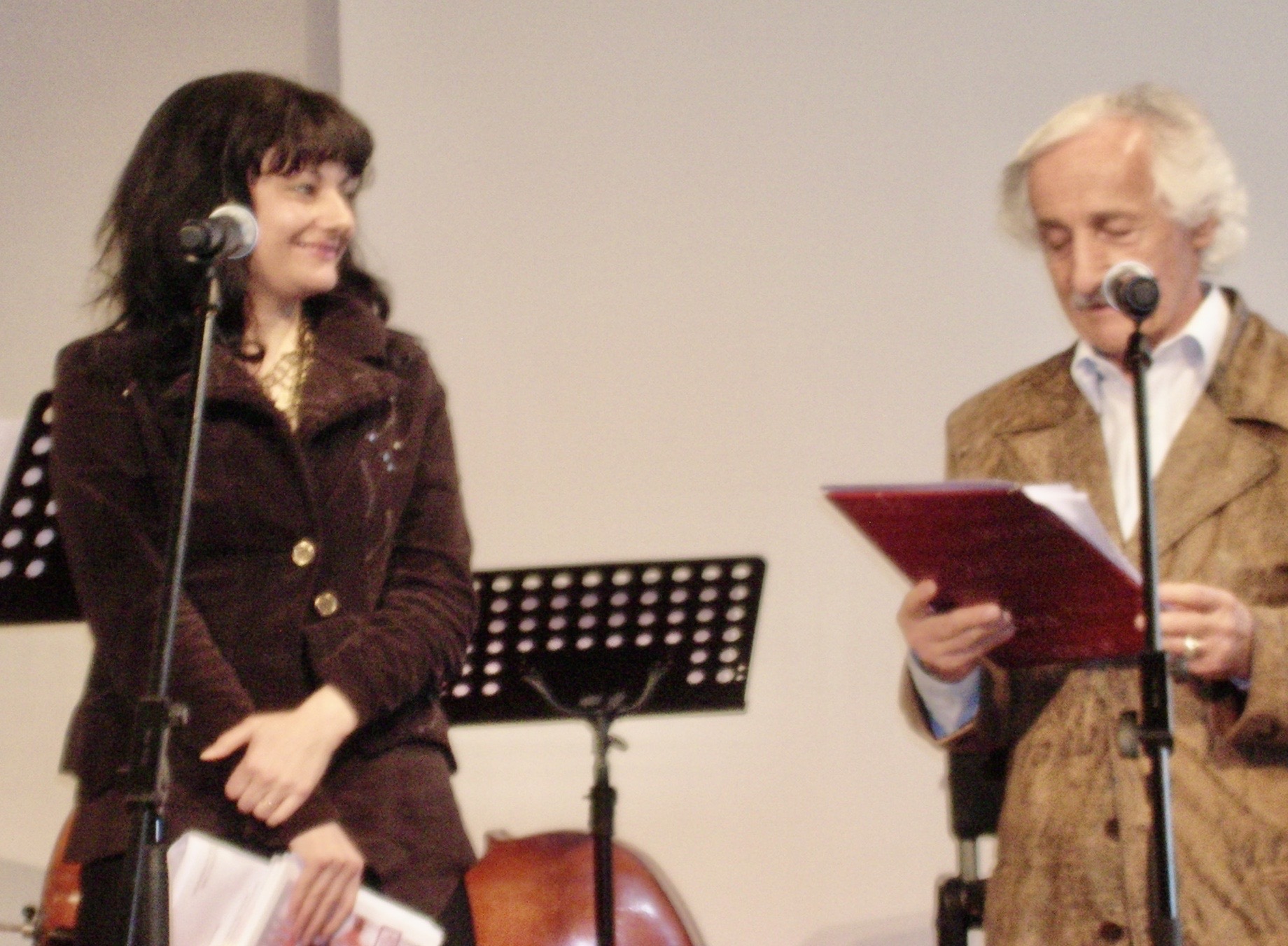
Peace Committee program 2006. Sibila Petlevski (Croatian PEN), Veno Taufer (Peace Committee Chair)
September 9, 2020: PEN Journey 41: Berlin—Writing in a World Without Peace
I first visited Berlin in the fall of 1990 just after Germany reunited. I was living in London and took my sons, ages 10 and 12, to witness history in the making. I returned on a number of occasions, researching scenes for a book, attending meetings, and visiting German PEN in preparation for PEN’s 2006 Congress. Each time Berlin’s face was altered as the municipalities east and west moved to become one city again.
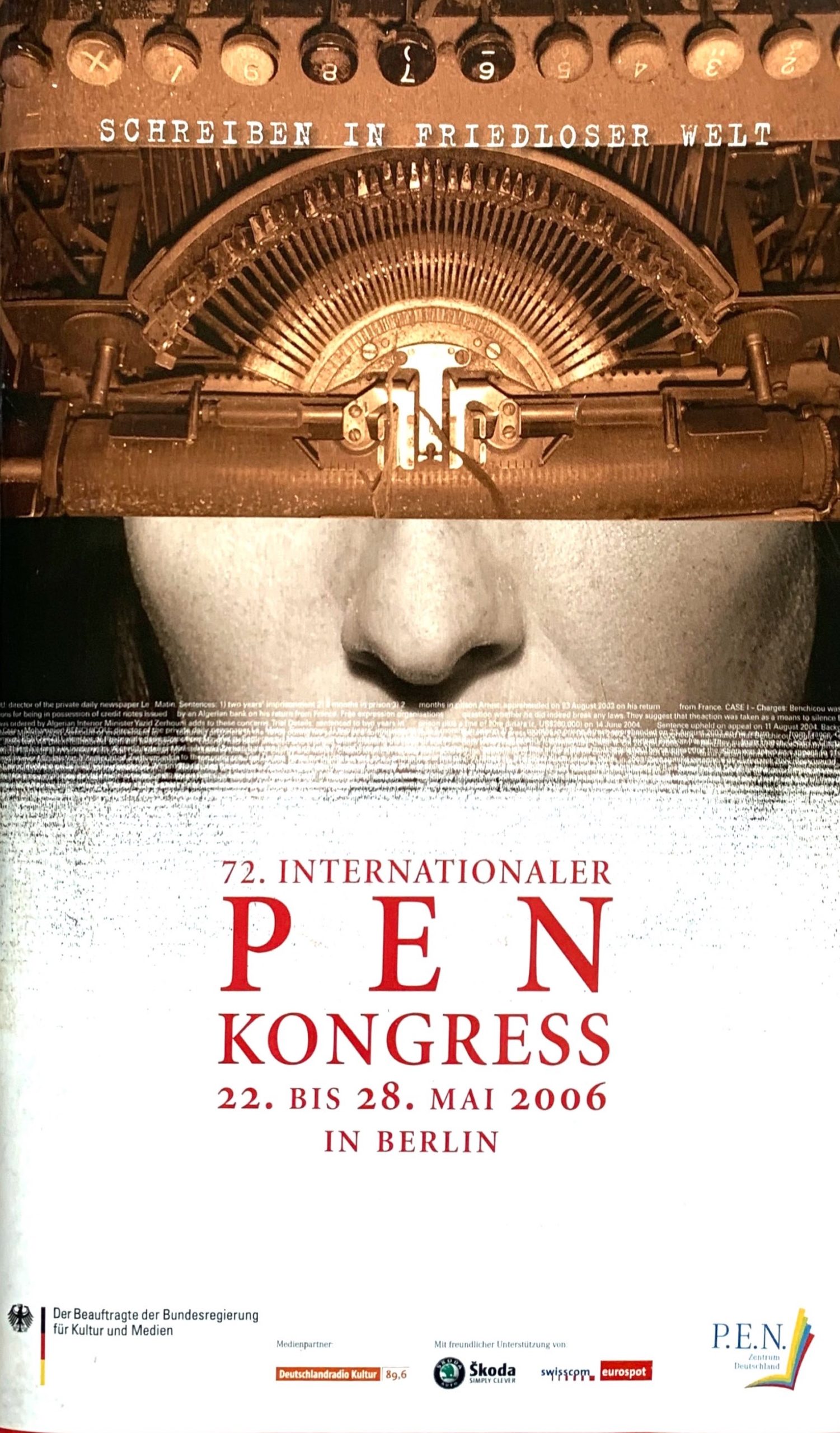
PEN International’s 72nd World Congress, Berlin, 2006
At the time of PEN’s Congress in May 2006, Berlin was bedecked with water pipes above ground—pink, green, blue, red—before the city buried its plumbing and infrastructure beneath the streets. Portions of the city had the appearance of an amusement park; there were also sections of the Berlin Wall with its colorful graffiti still standing, more as art exhibit than stark barrier to freedom.
“Welcome to a United Berlin” the German PEN President headlined his letter to the 450 delegates and participants for PEN’s 72nd World Congress. The Congress theme “Writing in a World Without Peace” was challenged by the reunification of Berlin and Germany, a historic event which bode well for the prospects of peace and which stood in contrast to the history that had come before. Yet the globe was still in conflict in the Middle East, in Asia and in Latin America where writers were under threat.
“There are countries such as Iran, Turkey or Cuba, where authors are jailed because of their books,” noted International PEN President Jiří Gruša. Resolutions at the Congress addressed the situations for writers imprisoned or killed in China, Cuba, Iran, Mexico, Russia/Chechnya, Sri Lanka, Uzbekistan, Vietnam, and other countries.
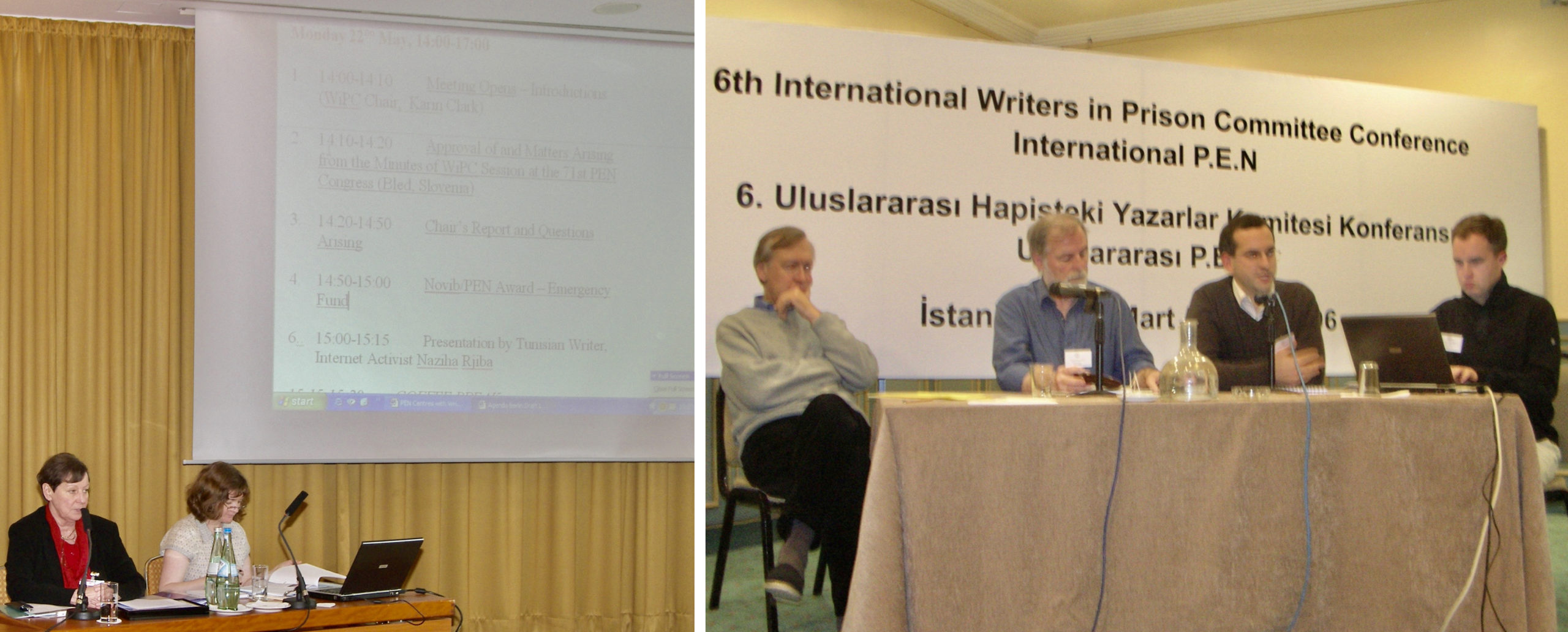
Left: Writers in Prison Committee (WiPC) meeting at Berlin Congress. Karin Clark (Chair WiPC) and Sara Whyatt (WiPC Program Director). Right: WiPC Conference in Istanbul: Eugene Schoulgin (Norwegian PEN/PEN Board), Jens Lohman (Danish PEN), Jonathan Heawood (English PEN), Notetaker
Two months before in March, over 60 writers from 27 PEN centers in 23 countries had gathered for International PEN’s Writers in Prison Committee conference in Istanbul where the WiPC planned a campaign against insult and criminal defamation laws under which writers and journalists were imprisoned worldwide. The conference also addressed the recent uproar over the Danish cartoons, impunity and the role of internet service providers offering information on writers, especially in China. A working group formed to support the Russian PEN Centerwhich was under pressure from the Russian government.
Berlin, however, was sparkling and filled with the energy of reunification. “Today, this city—once separated by a Wall most drastically manifesting the division of Germany and Europe—has not only been re-established as the capital of Germany, but has simultaneously turned into a thriving meeting-place between East and West and North and South,” welcomed Johano Strasser, German PEN President. “Here in Berlin, history in all its facets—from the great achievements of German artists, philosophers and scientists to the crimes of the Nazis—has left its mark on the urban landscape.”
PEN’s 72nd Congress marked PEN’s 85th Anniversary and was a grand occasion. Chancellor Angela Merkel hosted a reception at the Chancellor’s office. President of the Federal Republic of Germany Horst Kohler gave the welcoming address at the Opening Ceremony, noting, “If Germany is the nation of culture that it intends to be again, then we have to stand up and fight for freedom of language, art and culture….”[cont]
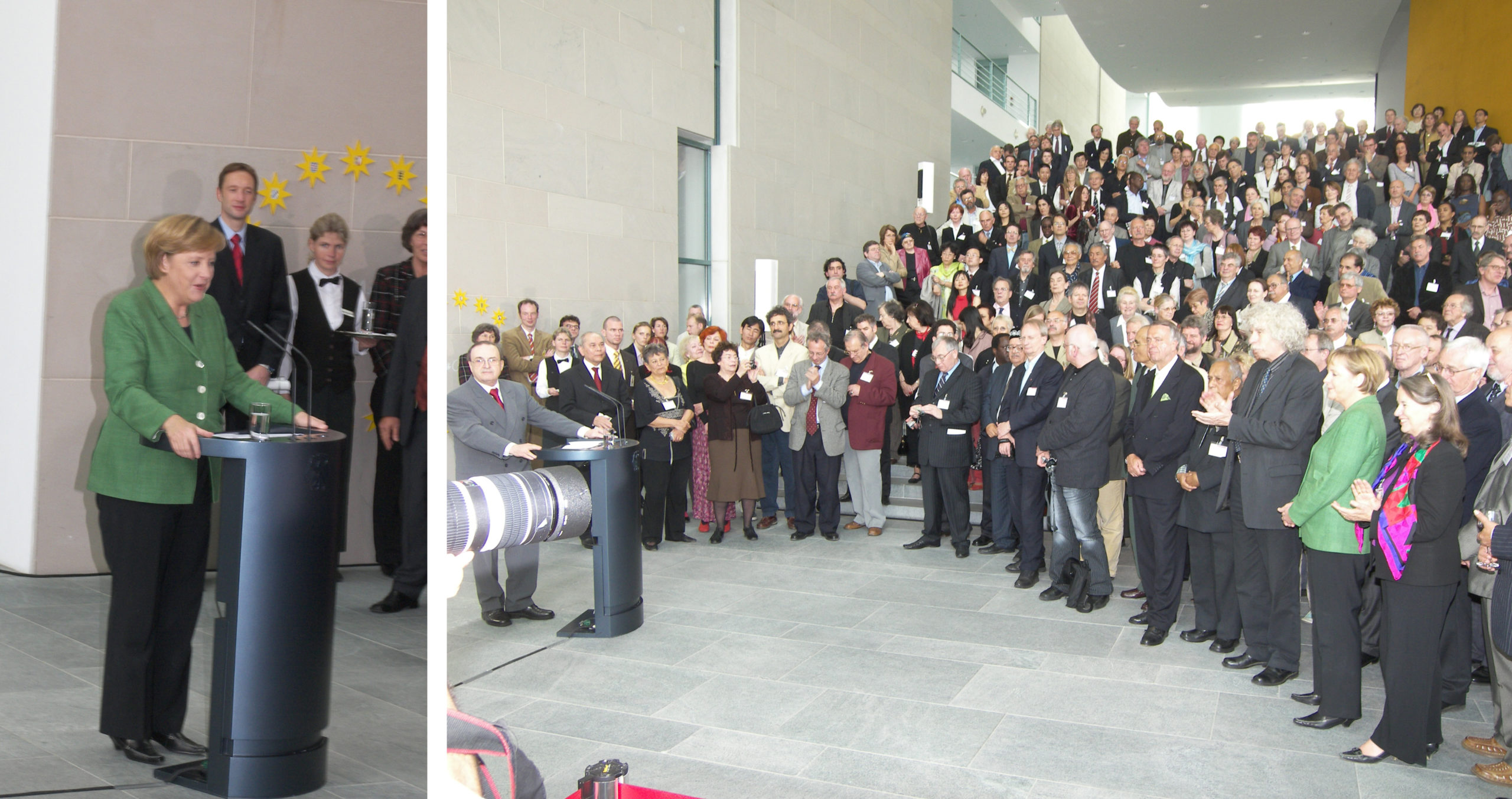
Left: German Chancellor Angela Merkel addressing PEN members at 72nd PEN Congress, 2006; Right: PEN International President Jiří Gruša speaking to PEN delegates and members at the Federal Chancellery; front row: German PEN President Johano Strasser, Chancellor Angela Merkel and PEN International Secretary Joanne Leedom-Ackerman. [Photo credit: Tran Vu]
September 14, 2020: PEN Journey 42: From Copenhagen to Dakar to Guadalajara and in Between
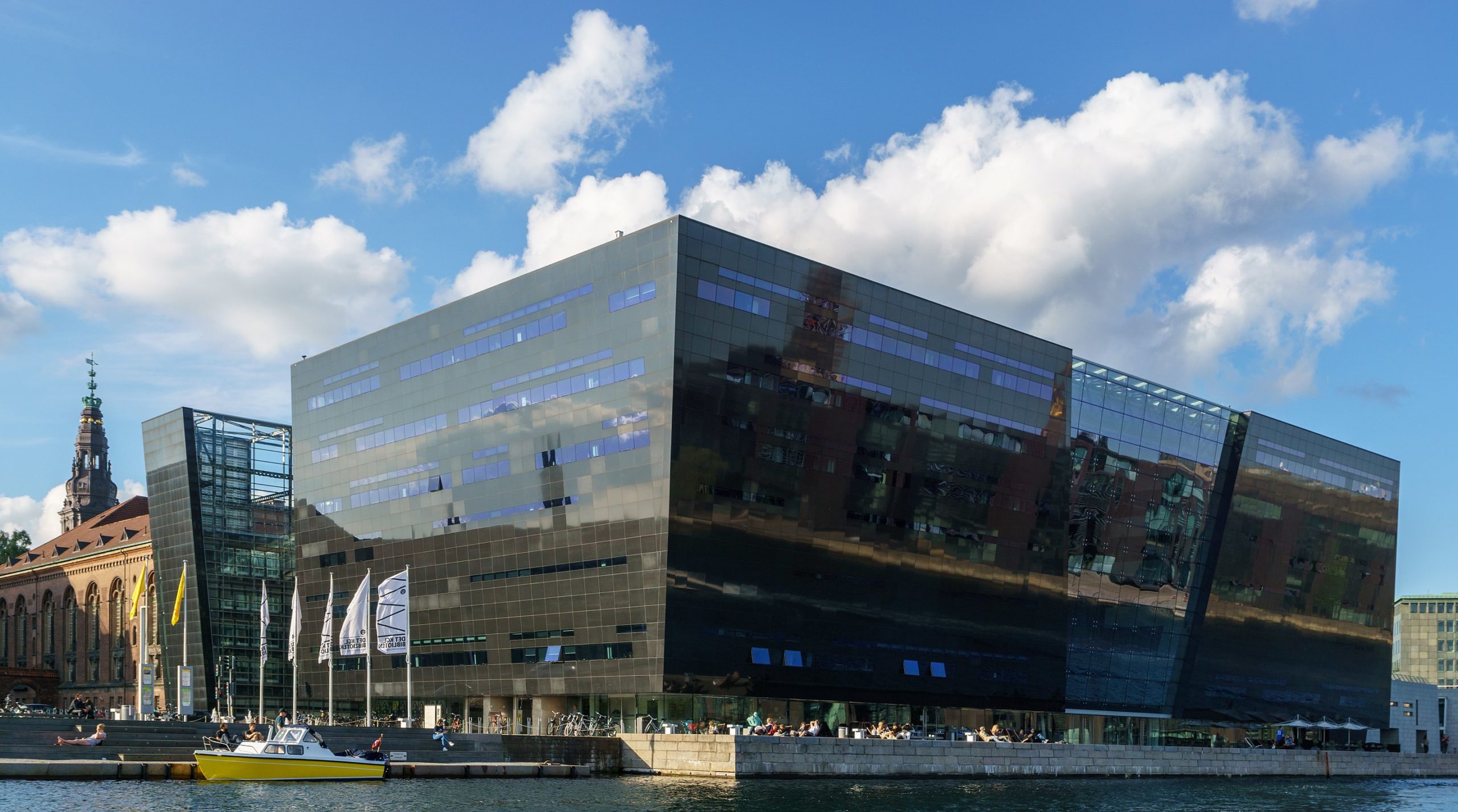
Royal Danish Library extension in Copenhagen, dubbed the Black Diamond (Photo by © User:Colin / Wikimedia Commons, CC BY-SA 4.0, https://commons.wikimedia.org/w/index.php?curid=66870365)
Arriving in Copenhagen in early September 2006, I walked along the waterfront, dodged bicycles and shared coffee and conversation with longtime colleague Niels Barfoed, former President of Danish PEN who had briefly succeeded me as Writers in Prison Chair and was an eminent Danish journalist and writer. We met at the new waterfront extension of the Royal Danish Library, dubbed the Black Diamond because of its imposing black granite cladding and irregular angles. Niels would be moderating a public meeting on Freedom of Expression in the Arab World.
PEN International’s base was broadening in the Middle East and in Africa, both regions where active centers for writers were fragile, but potentially important havens. Danish PEN was hosting a conference with a dozen writers from the Arab-speaking world, including representatives from Egypt, Morocco, Jordan, Palestinian PEN, Tunisia, Lebanon and invited writers from Iraq and the United Arab Emirates (UAE), along with Danish and Norwegian PEN members and International PEN represented by Centers Coordinator Peter Firkin and myself.
The Copenhagen conference had been initiated in part as a response to the Danish cartoons controversy earlier in the year and also as an opportunity to develop PEN’s work and presence in the Middle East. PEN had a few centers in the region and interest from writers in Jordan, Iraq, Kuwait, and Bahrain to form additional PEN centers and a desire to revive PEN Lebanon. Developing PEN centers in these areas was challenging given the politics and conflicts on the ground.
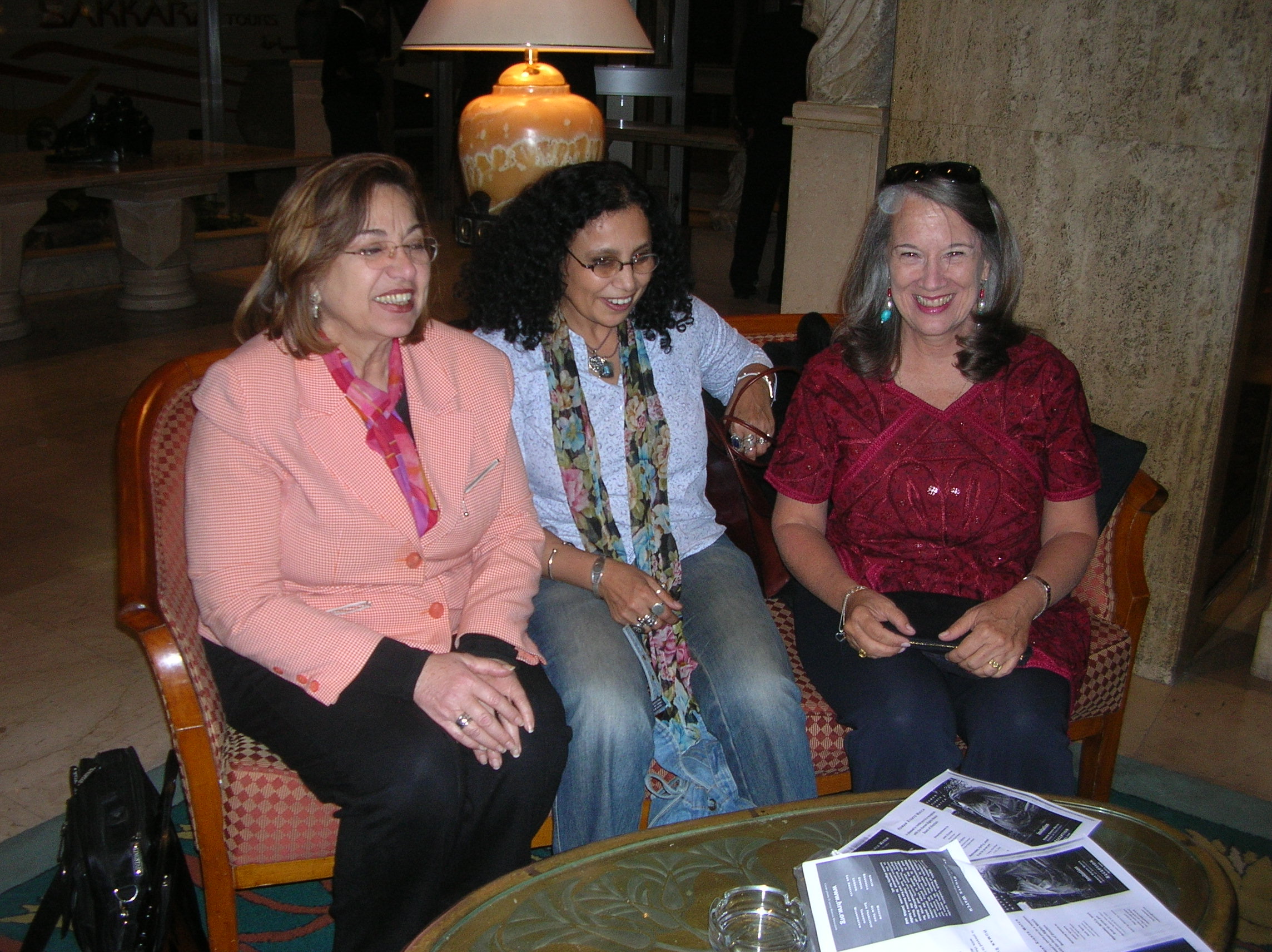
Ekbal Baraka, President Egyptian PEN (left) and Joanne Leedom-Ackerman, PEN International Secretary (right) meeting in Cairo, 2006
The Copenhagen meetings explored common fields of interest among Western and Arab writers, networking among Arab writers and ways in which PEN could assist. Women writers in the Arab world had particular challenges, a discussion led by Egyptian PEN President Ekbal Baraka. Ekbal later became Chair of PEN International’s Women Writers Committee. Algerian PEN and International PEN board member Mohamed Magani offered to host a subsequent meeting in Algiers the following fall, along with a conference on translation. A public event in the evening showcased the work of the visiting writers….[cont]
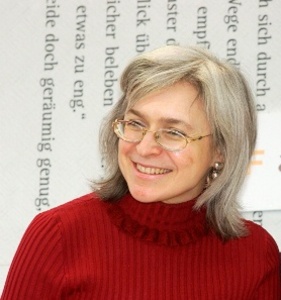
Anna Politkovskaya, Russian journalist assassinated, 2006
A few weeks after the Copenhagen conference, my phone rang early on Saturday morning October 7, 2006 at my home in Washington, DC. Sara Whyatt, PEN International’s Writers in Prison CommitteeDirector, was on the line. She called to tell me that Anna Politkovskaya, Russian journalist, PEN member who’d visited PEN Congresses and meetings, who’d worked for years reporting on Chechnya—had been assassinated. The report was that Anna had been shot that morning in the elevator of her apartment building in Moscow.
For seven years Anna had been one of the few reporting on the war in Chechnya despite intimidation and violence. She had been arrested by the Russian military and suffered a mock execution; she’d been poisoned while flying from Moscow to the Beslan school hostage crisis and had to turn back to get medical treatment. She had survived many dangerous encounters. But now she had been killed.
The killing of Anna Politkovskaya swept through the news media around the world as well as through the PEN world. We were stunned and deeply saddened and then began our protests and calls for investigation, along with human rights organizations worldwide. PEN honored Anna at its subsequent Congress and meetings and annually held an Anna Politkovskaya lecture on the anniversary of her death to commemorate her fortitude and inspiration.
The work in PEN was a helix of hope and pain and sorrow and hope again….[cont]
September 28, 2020: PEN Journey 43: Turkey and China—One Step Forward, Two Steps Backward
January 2007 began with an assassination. The Board of PEN International was just gathering in Vienna for the first meeting of the year when board member Eugene Schoulgin got a phone call letting him know that our colleague and his friend Turkish-Armenian editor Hrant Dink, had been gunned down in Istanbul and killed. Many of us had seen Hrant at the PEN Writers in Prison Committee conference in Istanbul in March.
Editor-in-chief of the bilingual Turkish-Armenian newspaper Agos, Dink had long advocated for reconciliation between Turks and Armenians and for Turkey’s recognition of the Armenian genocideearly in the century. Dink had received death threats before and had himself been prosecuted for “denigrating Turkishness,” but as with Russian colleague Anna Politkovskaya, Dink’s assassination stunned us all and set off widespread protests in Turkey and abroad. Eventually a 17-year old Turkish nationalist was arrested and convicted, but not before police were exposed posing and smiling with the killer in front of a Turkish flag.

PEN International Board Meeting, Vienna, January 2007. L to R: Joanne Leedom-Ackerman, International Secretary; Jiří Gruša, International President; Caroline McCormick, Executive Director; Judy Buckrich, Women Writers Committee Chair; Elizabeth Norgdren, Finish PEN; Eugene Schoulgin, Norwegian PEN; Franca Tiberto, Search Committee Chair; Sibila Petlevski, Croatian PEN; Britta Pedersen, International Treasurer; Eric Lax, PEN USA West; Mohamed Magani, Algerian PEN; Kata Kulavkova, Translation and Linguistic Rights Chair; Frank Geary, Programs; Karen Efford, Programs.
The work of PEN is, at its heart, personal. It is writers speaking up for and trying to protect other writers so that ideas can have the freedom to flow in society. In league with other human rights organizations, PEN also advocates to change systems that allow attacks and abuse. At times the work can feel ephemeral when the systems don’t change, or make progress only to regress. However, the individual writer abides, and PEN’s connection to the writer stands.
During my tenure working with PEN, Turkey and China have been the two countries that have imprisoned the most writers. For a period both nations appeared to be advancing towards more open societies but soon retreated. In the early 2000’s as Turkey aspired to join the European Union, the country operated as a democracy with a more independent judiciary; fewer writers became entangled in the judicial processes. However, in 2007 the democratic transition in Turkey began to veer off courseand has continued a downward spiral towards authoritarianism ever since.
China also promised to become a more open society with the advent of the Olympic Games in 2008. Democracy activists inside and outside of China grew hopeful. In this climate, PEN held an Asia and Pacific Regional Conference in Hong Kong in February 2007; it was PEN’s first in a Chinese-speaking area of the globe. Over 130 writers from 15 countries gathered, including writers from Hong Kong, Taiwan and Macao and many of PEN’s nine Chinese-oriented centers as well as members from Japan, Korea, Vietnam, Nepal, Australia, the Philippines, Europe, and North America.
Both China’s and Turkey’s Constitutions protected freedom of expression in theory, but in practice the protection was lacking. Instead, laws and regulations prohibited content. In Turkey, exceptions included criticism of Ataturk, expressions that threatened “unitary, secular, democratic and republican nature of the state” which in effect targeted issues around Kurds and Kurdish rights. In China, the Constitution noted that “in exercising their freedoms and rights, citizens may not infringe upon the interests of the State, of society or of the collective, or upon the lawful freedom and rights of other citizens.” The state was the arbiter….[cont]
One of the more creative campaign tools planned during the conference was spearheaded by a team of PEN Centers in Asia, Europe, North America and Australia. The members developed a digital relay with Chinese poet Shi Tao’s poem June. The poem tracked the path of the Olympic torch across a digital map. Shi Tao was serving a 10-year prison sentence for sharing with pro-democracy websites a government directive for Chinese media to downplay the 15th anniversary of the Tiananmen Square protests. His emails had been turned over to the Chinese government as evidence by Yahoo. His poem commemorated the Tiananmen Square massacre and was translated and read in the languages of PEN’s centers around the world, including in regional dialects as well as in the major languages. Ultimately 110 of PEN’s 145 centers participated and translated the poem into 100 languages, including Swahili, Igbo, Krio, Tsotsil, Mayan. The poem’s journey began on March 30, 2008 in Athens and traveled to every region on the online map, arriving in Hong Kong on May 2 and in June to Tibet where it was translated into Tibetan and the proposed Uyghur PEN center translated it into Uyghur. Finally August 6-8 it arrived in Beijing where it was translated and read in Mandarin. Anyone could click on the map and hear the poem in the language of the country designated.
By the 2008 Olympic Games 39 writers remained in prison in China.
June
By Shi Tao
My whole life
Will never get past ‘June’
June, when my heart died
When my poetry died
When my lover
Died in romance’s pool of blood
June, the scorching sun burns open my skin
Revealing the true nature of my wound
June, the fish swims out of the blood-red sea
Toward another place to hibernate
June, the earth shifts, the rivers fall silent
Piled up letters unable to be delivered dead.
(Translated by Chip Rolley)
Hope: A Threshold of History
My wedding anniversary is June 3, but ever since the events at Tiananmen Square June 4, 1989, I merge the dates in my mind. I’m not sure why, but this year included, I made quiet dinner plans for our anniversary on June 4 by mistake. The Tiananmen memory for those who work on human rights does not recede. It isn’t visceral because I wasn’t there, but many of us watched first with hopeful attention the gathering of students and others in Beijing that spring and then in horror as the tanks rolled in.

Liu Xiaobo (with megaphone) at the 1989 protests on Tiananmen Square.
Though the Tiananmen Square protests and the names of participants like Liu Xiaobo have been struck from the internet in China and not recorded in history books for mainland Chinese students, the courage of the demonstrators and the repression of the government remain as historical facts and as memory.
Unfortunately, the memory is amplified today like a solemn tolling bell, repeating a mournful sound in places like Belarus, Venezuela, Iran, and Myanmar, where citizens push against authoritarian forces with nonviolent resistance. That bell, however, also echoes a higher enduring strain of freedom sought and won over the decades by citizens in Eastern Europe, South Africa, Chile and other countries, citizens who ultimately prevailed.
Those outside the direct struggles can remember and can support those in the resistance. For many of my colleagues, the support is through the work of PEN which campaigns for writers on the front lines. Often it is writers who are early victims since they are articulating an alternate vision to the authoritarian regime and are reporting the facts. Others open space for those who must leave their countries or lose their freedom or their lives and must work from the outside, organizations like the International Cities of Refuge Network (ICORN) which finds alternate locations for writers and artists.
In the last few months, I’ve taken this space of a monthly blog to return to posts from years past. I’ve taken a core sample as a slice of my history during that month. I do so again here and note several posts: June 2008: Back on the River, June 2009: A Time of Hopening and June 2017: Storm Cloud on a Summer’s Day. Hope is a fragile but essential tool, one that holds history together so that it doesn’t shatter on the shoals, on the disappointments and misbehaviors of humankind.
Liu Xiaobo was China’s first citizen to win the Nobel Prize for Peace in 2010, but he was in prison in China as “an enemy of the state.” Liu Xiaobo died in custody July 2017.
As I celebrate my wedding anniversary with my husband of many decades this June 3/4, I do so with the hope offered by Liu Xiaobo to his friends and fellow citizens whom he believed in when he noted in his “Final Statement:”
“I have no enemies and no hatred…Hatred can rot away at a person’s intelligence and conscience. Enemy mentality will poison the spirit of a nation, incite cruel mortal struggles, destroy a society’s tolerance and humanity, and hinder a nation’s progress toward freedom and democracy…
“For there is no force that can put an end to the human quest for freedom, and China will in the end become a nation ruled by law, where human rights reign supreme…
“Freedom of expression is the foundation of human rights, the source of humanity, and the mother of truth. To strangle freedom of speech is to trample on human rights, stifle humanity, and suppress truth.”
Since April I’ve been back on the Potomac River, sculling in the rushing waters after the spring rains, dodging logs and flotsam flowing downstream from Great Falls and beyond. I’ve been pressing into the middle of the river on hot, sultry days in June when barely a breeze stirs the air, though the current still hurries beneath the boat. I’ve been rowing beside much larger sculls from the universities, dodging the wake of the speed boats which cruise along beside the Viking-size crafts as coaches shout instructions. In my small white scull I’ve tried to hear what they call and emulate the grace and power of the collegiate oarsmen and women.
Facing forward, watching the landscape recede as I move backwards, I’ve been thinking about the past even as I plunge into the future. This perspective of the rower, driving headlong towards what he can’t see except for quick glimpses over his shoulder, is a useful one to master.I’m back in Los Angeles this week for readings and interviews and will be talking about my own earlier fiction—No Marble Angels and The Dark Path to the River. Many of the short stories in No Marble Angels are set during the Civil Rights era—the Nashville sit-ins, the Little Rock school integration, the aftermath of the ’68 riots in the cities. It was a time when ordinary citizens took extraordinary actions. It’s easy to romanticize the times, but the consequence of many of those actions changed our laws and our lives and opened up our society. The future grew out of the clarity of purpose of those who could glance over their shoulders and press towards the future even as they had to face the restrictions of their present day.
As the U.S. moves into its next era—whatever that may eventually be called—one hopes it will be a period of national and international Rights Realized.
As a young mother, I used to tell stories to my two sons constantly—on the way to school, standing in long lines anywhere, on car, plane or bike rides, on hikes. I would ask each to give me two things (people, ideas, places, plots) they would like in the story, and then I would weave the disparate ingredients into a tale. Their elements might include something like a dog, a butterfly, a battle of some sort, and a waterfall…the possibilities were open and endless, though usually there was some battle involved and some animal in most of the stories.
Over the last year and a half, partly urged by my now adult sons, I’ve committed to writing a blog post once a month. For me the process is a bit similar to the earlier exercise as I look over the month and try to wrap ideas, thoughts, events into 600 words. This month’s elements are particularly rich, probably too rich for a 600-word essay, though the literary form of the blog hasn’t been established or defined so it can, I suppose, be whatever one wants.
I began June at an International PEN Writers in Prison conference joined to the Global Forum on Freedom of Expression conference in Oslo, Norway, where the sun doesn’t set in the summer. In Oslo, activists from organizations around the globe discussed, debated, and strategized into the summer nights about the state of freedom of expression around the world and the mechanisms to protect it. Everyone understood that societies without this freedom are most often without political and civil freedoms as well so the defense of freedom of expression is the front line.
The timing of the conference coincided with the 20th anniversary of the crackdown in Tiananmen Square in China. This year of 2009 is also the 20th anniversary of the popular uprising against the military government in Burma/Myanmar after the election of Aung San Sui Kyi, who was re-arrested this May; it is the 20th anniversary of the fatwa in Iran against Salman Rushdie after the publication of The Satanic Verses, and it is the 20th anniversary of the fall of the Berlin Wall.
The year 1989 was a threshold year. So where have we come twenty years later?
After Oslo, I went briefly to Paris en route to Normandy, where the 65th anniversary of the World War II invasion was being celebrated. I was headed to Normandy for a bike trip through the countryside and the historical sites, not for the official celebrations, but I was in Paris the day President Obama and his family arrived. It was also the day of the men’s semi-finals of the French Open in tennis. (You see the elements of this blog complicating…)
Driving back to the hotel after Federer beat Del Potro and Soderling beat Gonzalez, I was talking in my broken French with the taxi driver talking in his broken English about the matches and about the arrival of Obama and about world politics in general. The driver was ebullient—an oxymoron perhaps for a French taxi driver—but he was ebullient nonetheless.
“The world…the U.S…France…Europe…it is hopening,” he said, gesturing with his arms, trying to explain what he meant about the opening he saw in the world and the hope he felt. “We have hopening between us!”…[cont]
June 2010: Summer Reading: Under a Tree With a Book
Summer has come with hot, steamy breath in Washington this year—already days nearing 100°. Even with the sudden flash of thunderstorms, the air clears only to steam up again. So much for my assurance to a newcomer that summer wasn’t so bad here, though maybe we will pay our dues in June and be rewarded with the summer breezes and cool evenings in July. August, we know, will be hot.
In the dog days it is a time to be indoors, or at least in the shade—biking along the Potomac or sculling on the river only early in the morning or as the sun is setting. Indoors or under the shade of a tree, it is a time to read.
Summer reading—the term brings back delicious childhood memories even of hot Texas summers where I would find a patch of shade in the back yard and lose myself in a book, or bike to a nearby pool and sit reading between laps, or curl up in a chair under the fan on the screened porch. I can still smell the mowed grass and the sweet fragrance of white gardenias on the bushes just outside.…[cont]
June 2011: Mockingbirds at Fort McHenry: A Tribute to Elliot Coleman
(The excerpt below is from a larger article about the poet and teacher Elliott Coleman in the recent Fortnightly Review:)
I was 20 years old, applying to Johns Hopkins graduate Writing Seminars from a small Midwestern college. I had come to campus to meet Elliott Coleman, the director and founder of the program. He had read my application and invited me to lunch at the Faculty Club. Looking back now and understanding the processes of application and the competition for a position in the Writing Seminars, I realize how remarkable his attention was, but he showed that kind of attention to students, making each feel important and valued.
I had sought out his work before I came to Baltimore. I no longer remember how I found the slim volumes of poetry in my remote college town before online ordering, but I did, and I had read his book of poems Mockingbirds at Fort McHenry. When I spoke about those poems, he was genuinely humbled and surprised that I had made the effort to read his books.
He asked, “Would you like to go see Fort McHenry?” That afternoon, the student showing me around drove us all out to Fort McHenry, and I walked around the area with Elliott Coleman as he talked about poetry and the genesis of his poems. I’m sorry I didn’t write down what he said, or if I did, I can no longer find the notes of that afternoon. But I knew then that Hopkins was where I wanted to be if I had the chance, and even though I was a fiction writer, I wanted to study with Elliott Coleman. Fortunately, I got that opportunity.
Elliott Coleman radiated a gentleness, a caring and a humility that shed light, illumining those around him. He didn’t seek the center of attention; he didn’t draw the spotlight to himself, rather he shined so that light fell on others.
From Mockingbirds at Fort McHenry:
Through a window in Tunis the green searolls its light. A few square white houses dazzle the Atlas mountains, the color of lions and honey. This foothill is hardly Africa; this bay is hardly Mediterranean. They partake of each other by reflection, absorbed as they are in the depths of space.
I recently engaged with facebook (no, I didn’t buy stock), but I gave in. I concluded that I needed at least to understand (is that possible?) and experience the social media phenomena and at most learn from and enjoy the connection to friends and colleagues, most of whom I know, but some of whom I just read and some of whom read me.
For the last three months I’ve checked my “wall” every few days and scroll through hundreds of shared observations, photos, and comments. The process is surprisingly quick. I engage more like a magazine editor with an unexamined metric for judgment, pausing to “like” certain contributions, commenting on a few and sharing even fewer on my own personal and authors’ facebook pages.
For the present at least I’ve limited my fb world and page largely to literature and human rights in order to put some boundary on the possibilities and on that evaporating commodity of privacy–not a 21st century value and an oxymoron in a discussion of facebook. That is not to say I don’t enjoy the news and photos and commentary on a range of issues from all the friends, but in my fb space, this is my focus for now.…[cont]
June 2013: No blog posted
June 2014: No blog posted
June, 2015: What Are You Not Reading This Summer?
I was recently sent a questionnaire as part of a profile asking me what I was reading:
I find myself reading several books at the same time. I just finished Phil Klay’s Redeployment today, am reading Jennifer Clement’s Prayers for the Stolen, am re-reading Graham Greene’s The Comedians, re-reading Kate Blackwell’s you won’t remember this and can’t leave this question without noting Elliot Ackerman’s Green On Blue. Because I read both e-books and paper books, I move around among narratives easily.
The answer was a snapshot in reading time, indicative of the pleasure of dancing among narratives. I find myself enjoying on several platforms the movement 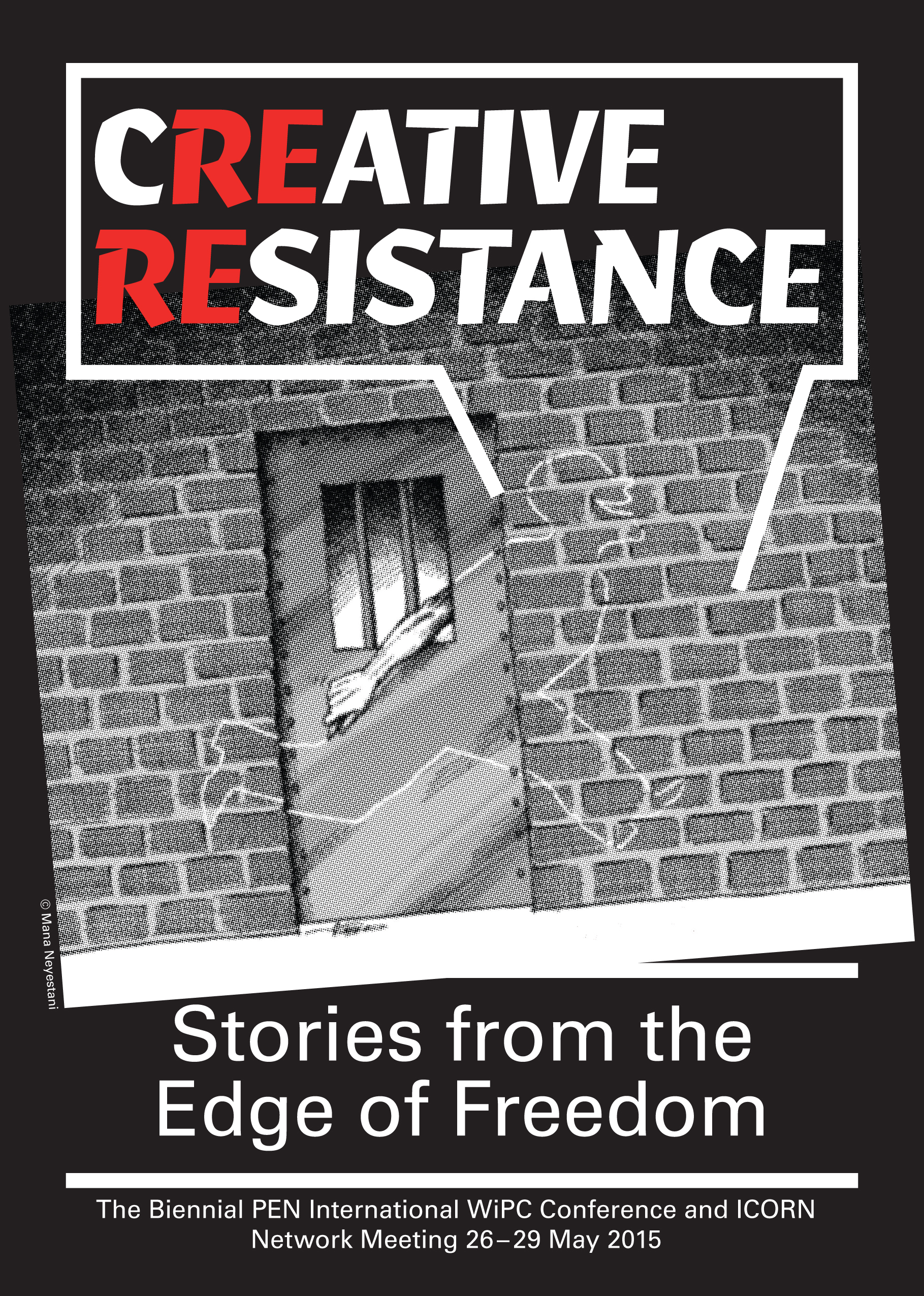 between hard-edged, nuanced stories of war and its aftereffects in Klay’s Redeployment and Ackerman’s Green on Blue, the harsh and surprising world of Clement’s indigenous Mexican women in Prayers for the Stolen and the gentle, but no less desperate stories of Southern women trying to find their lives in Kate Blackwell’s you won’t remember this, a collection recently re-published by a new small press—Bacon Press—in paperback. Graham Greene is a master who I am always re-reading, appreciating how he integrates the international world of politics and deceit with compelling narratives set around the world.
between hard-edged, nuanced stories of war and its aftereffects in Klay’s Redeployment and Ackerman’s Green on Blue, the harsh and surprising world of Clement’s indigenous Mexican women in Prayers for the Stolen and the gentle, but no less desperate stories of Southern women trying to find their lives in Kate Blackwell’s you won’t remember this, a collection recently re-published by a new small press—Bacon Press—in paperback. Graham Greene is a master who I am always re-reading, appreciating how he integrates the international world of politics and deceit with compelling narratives set around the world.
Recently I returned from PEN International’s biennial Writers in Prison conference and the International Cities of Refuge Network (ICORN) meeting, a gathering this year in Amsterdam focused on Creative Resistance, a gathering of over 250 individuals from 60 countries around the world who work on behalf of writers threatened, imprisoned and killed for their writing. I remain conscious of these voices too. They occupy a kind of negative space—those we are NOT reading, not able to read because they are not able to write.
The list unfortunately is long, and many individuals stand out for me, but I will highlight two here. Though I couldn’t read either because of language differences, I read with attention their cases and link here to actions that can be taken on their behalf:…[cont]
June 2016: No blog posted.
June 2017: Storm Cloud on a Summer’s Day
It is an almost perfect summer day—the sun is shining in a white cloud sky; the air is warm, not yet sweltering. Light filters through white umbrellas shading diners at the outside restaurant by the park. On this almost perfect New York day I am thinking about the rulers in China who have imprisoned for the last nine years one of the country’s courageous thinkers for ideas that will outlast him and his jailers.
Today it was announced Nobel laureate Liu Xiaobo is in critical condition, on medical parole having been given a terminal diagnosis. As a principal author of Charter’08 which advocates for nonviolent democratic reform in China, Liu Xiaobo, writer, critic and activist has lived his life as a man of ideas.
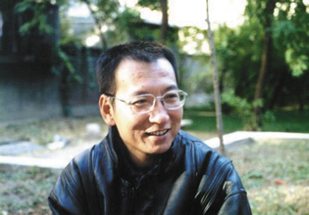
As the sun shifts above me, skirting over skyscrapers, finding a gap between the umbrellas and spreading over my table, I consider the trajectory and the life of an idea as it dawns, unfolds, iterates, then flies off where it is embraced, where it empowers and takes on a life of its own. Ideas are connected to, but not owned or encumbered by, those who articulate them.
The fallacy—the fundamental fallacy—of the rulers in China and elsewhere lies here. No one can imprison ideas. No one can manage or own the imagination of another. Government leaders can physically restrain with the hope that the idea will die, but in the case of Liu Xiaobo, the ideas behind Charter ’08, which was signed by more than 2000 Chinese citizens from all walks of life, endure. These ideas calling for a freer society continue to grow wings, often quietly, but sometimes even more quickly as the physical confines grow harsh.
“Any man or institution that tries to rob me of my dignity will lose,” declared Nelson Mandela. It is an injunction worth noting.
June 2018: No blog posted.
June 2019: [Beginning in May, 2019 I started writing a retrospective of work with PEN International for its Centenary so posts were more frequent in 2019-2020. In June 2019 there are two posts in the PEN Journeys and in June 2020 there are four.]
June 2019: PEN Journey 3: Walls About to Fall
Our delegation of two from PEN USA West—myself and Digby Diehl, the former president of the Center and former book editor of the Los Angeles Times—arrived in Maastricht, The Netherlands in May 1989 for the 53rd PEN International Congress. We joined delegates from 52 other centers of PEN around the world, including PEN America with its new President, fellow Texan Larry McMurtry and Meredith Tax, founder of what would soon be PEN America’s Women’s Committee and later PEN International’s Women’s Committee. Meredith and I had met at the New York Congress in 1986 where the only picture of the Congress on the front page of The New York Times showed Meredith and me in the background at a table taking down the women’s statement in answer to Norman Mailer’s assertion that there were not more women on the panels because they wanted “writers and intellectuals.” Betty Friedan argued in the foreground.

Front page of the New York Times, 1986. Foreground: left – Karen Kennerly, Executive Director of American PEN Center, right – Betty Friedan, Background: (L to R) Starry Krueger, Joanne Leedom-Ackerman, Meredith Tax.
Over the previous months the two American centers of PEN had operated in concert, mounting protests against the fatwa on Salman Rushdie and bringing to this Congress joint resolutions supporting writers in Czechoslovakia and Vietnam.
The theme of the Maastricht Congress—The End of Ideologies—in large part focused on the stirrings in Eastern Europe and the Soviet Union as the region poised for change no one yet entirely understood. A few weeks earlier, the Hungarian government had ordered the electricity in the barbed-wire fence along the Hungary-Austrian border be turned off. A week before the Congress, border guards began removing sections of the barrier, allowing Hungarian citizens to travel more easily into Austria. In the next months Hungarian citizens would rush through this opening to the West.
At PEN’s Congress delegates from Austria and Hungary sat a few rows apart, separated only by the alphabet among delegates from nine other Eastern bloc countries which had PEN Centers, including East Germany. This was my third Congress, and I was quickly understanding that PEN mirrored global politics where writers were on the front lines of ideas and frequently the first attacked or restricted. Writers also articulated ideas that could bring societies together.…[cont]
June 2019: PEN Journey 4: Freedom on the Move: East to West
I have attended 32 International PEN Congresses as president of a PEN Center, often as a delegate, as Chair of the International Writers in Prison Committee, as International Secretary and now as Vice President. The number surprises me when I count. The Congresses have been held on every continent except Antarctica. Many were grand affairs where heads of State such as Vaclav Havel in Czechoslovakia, Angela Merkel in Germany, Abdoulaye Wade in Senegal greeted PEN members. Some were modest as the improvised Congress in London in 2001 when PEN had to postpone the Congress planned in Macedonia because of war in the Balkans. PEN held its Congress in Ohrid, Macedonia the following year. At these Congresses writers from PEN centers all over the globe attended. Today PEN International has centers in over 100 countries.
Among the more memorable and grand was the 54th PEN Congress in Canada, held in September 1989 when PEN still held two Congresses a year. The Canadian Congress, staged in both Toronto and Montreal by the two Canadian PEN centers, moved delegates and participants between cities on a train. The theme—The Writer: Freedom and Power—signaled hope at a time when freedom was expanding in the world with writers wielding the megaphone.…[cont]

54th PEN Congress in Canada, 1989. Front row: WiPC chair Thomas von Vegesack, Joanne Leedom-Ackerman and PEN USA West Executive Director Richard Bray. Back row: Digby Diehl (right) and other delegates.
June 2020: PEN Journey 30: Barcelona: A Surprise
I was having lunch with my husband at a Georgetown restaurant in Washington, DC on a Saturday in May, 2004. I was due to fly out the next day for Barcelona to attend International PEN Writers in Prison Committee’s 5th biennial conference, part of a larger Cultural Forum Barcelona 2004. My husband and I were talking about our sons—the oldest was getting a PhD in mathematics and was also training for the 2004 Olympics as a wrestler, hoping to make the British team. (He had dual citizenship.) The younger, recently graduated with an advanced degree in International Relations, had just deployed to Iraq as a Marine 2nd Lieutenant and was heading into a region where the war was over but the insurgency had begun. It was an intense time for our family, yet as parents there was not much we could do except to be there, cheering for our oldest at his competitions and writing letters and sending packages and prayers for our youngest. It was a time when as parents we realized our children had grown beyond us and were taking the world on their own terms.
I was planning to be away for the week in Barcelona where PEN members from around the world were gathering for the Writers in Prison Committee (WiPC) and Exile Network meetings. Carles Torner, PEN International board member, chair of PEN’s Translation and Linguistic Rights Committee and former President of Catalan PEN, had helped arrange International PEN’s participation and funding as part of the Universal Forum of Cultures—Barcelona 2004. This would be the largest WiPC conference to date with delegates from every continent and multiple speakers and side events.
Carles, a poet, fluent in PEN’s three official languages English, French and Spanish, was one of the highly respected, organized and talented PEN members. He’d also been involved in the years’ long reformation of PEN International. As members looked to who could be a strong replacement for the current International Secretary when Terry Carlbom’s term ended in a few months, there was widespread enthusiasm for Carles to stand for the office. I was among the enthusiasts.
My phone rang at that Saturday lunch. International PEN Board member Eric Lax, already in Barcelona for meetings, said he had news and a question; he told me he was calling on behalf of others as well. The news: the Catalan government had also recognized Carles’ talents and had offered him a position as Director of Literature and Humanities Division at Institut Ramon Llull to promote Catalan literature abroad. A father of three, Carles had accepted this paid position which meant he couldn’t stand for PEN International Secretary, an unpaid position. He wouldn’t have the time for both, and there would be conflicts of interest.
Eric asked if I would allow myself to be nominated. A number of members and centers, including the two American centers, were asking, he said. PEN’s Congress where the election would take place was only a few months away in September and nominations were due soon. I was flattered but said no for a number of reasons. Eric asked that I not answer yet, just come to Barcelona, talk with people and let them talk with me.…[cont]
June 2020: PEN Journey 31: Tromsø, Norway: Northern Lights
The week before PEN’s 70th World Congress in Tromsø, Norway in the Arctic Circle, my oldest son competed in the Athens 2004 Olympic Games, the only wrestler to qualify for TeamGB (Great Britain). He had dual citizenship and was the first British champion to qualify for the Olympics in wrestling in eight years. In his sport, there was no seeding of competitors; instead, after making weight, each wrestler reached into the equivalence of a hat and drew their first round competitions. True to his history, my son drew the best opponents. As one news commentator noted: “Coming to the mat is Nate Ackerman, born in the US, wrestling for Great Britain, getting his PhD in mathematics at the Massachusetts Institute of Technology…but that won’t help him now as he faces the three-time World Champion from Armenia.” My son lost to the Armenian wrestler. His other opponent was the world bronze medalist from Kazakhstan who went on to win the silver medal at the Olympics. Though my son didn’t win either match, he also didn’t get pinned, and he wrestled nobly. The Olympic Games in Athens was a magical time.
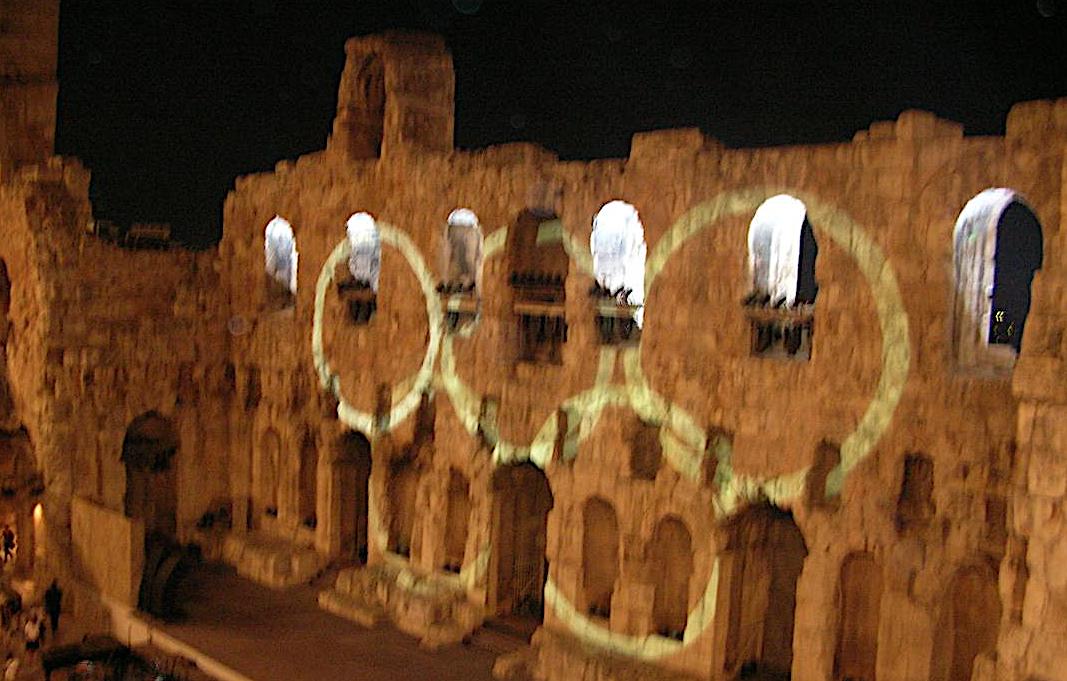
Olympic circles projected in light on the Acropolis at the 2004 Olympic Games in Athens
I was heading to Tromsø with a smile inside, though behind my smile was also a quiet attention that never left me for my youngest son, a Marine, was in Anbar Province, Iraq that summer, patrolling in 120° and alert for IED’s and snipers along the roadside. He had missed his brother in the Olympics and his brother missed being able to talk with him.
As I changed planes in northern Europe, I realized I was going to need a coat in the Arctic Circle and bought a light foldable one at an airport shop which I took to a decade worth of PEN Congresses after. On the plane I reviewed the stack of PEN papers and resolutions.
I was arriving at the Congress having agreed to stand for International Secretary. (See PEN Journey 30). The other PEN member standing was Giorgio Silfer, a poet and playwright and president of Esperanto PEN.
Norwegian PEN hosted over 300 writers, editors, and translators from at least 60 countries for the 70thWorld Congress whose theme was Writers in Exile—Writers in Minority Languages. The Rica Arctic Hotel where we stayed and met was an easy walk to the small downtown of Tromsø, capital of northern Norway, well above the Arctic Circle and called “the Paris of the North.”…[cont]
June 2020: PEN Journey 32: London Headquarters: Coming to Grips
PEN is a work in progress. It has always been a work in progress during its 100 years. Governing an organization with centers and members spread across the globe in over 100 countries can be like changing clothes, writing a novel and balancing a complex checkbook all while hang gliding. Perhaps an exaggeration, but not by much.
In 2004 the leadership of President and International Secretary were at the center of the governing structure along with the Treasurer and a relatively new Board. The President represented PEN in international forums. The International Secretary was tasked with overseeing the office and the centers of PEN and with any tasks the President handed over like running board meetings and setting up the agenda for work. The concept was that PEN should be able to elect as President a writer of international stature to represent PEN in global forums but not have the obligation to run the organization. That could be the role of the International Secretary, along with the Board and staff.
When I assumed the role of International Secretary, PEN did not yet have an executive director, though the consensus had built from the strategic planning process that we needed one. Both the President and International Secretary were volunteer, unpaid positions, which meant they were not full time. At the post-Congress board meeting after Tromsø, we agreed to begin a search for an executive director.
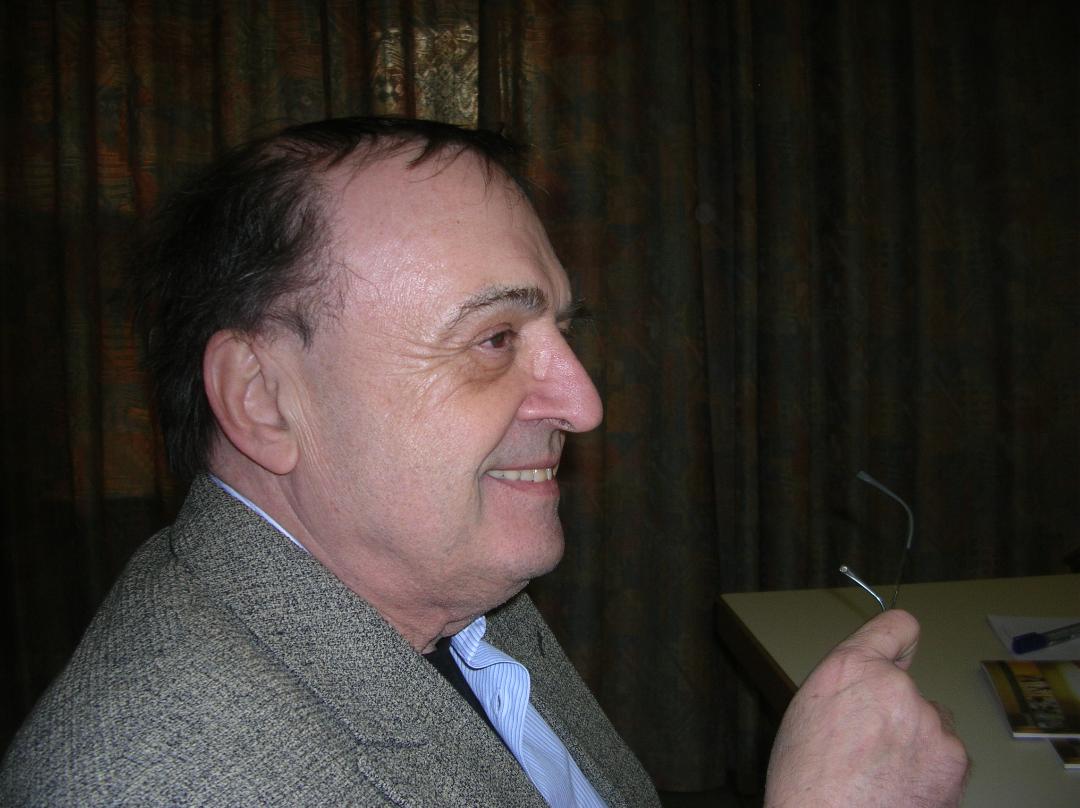
International PEN President Jiří Gruša
I suggested monthly board meetings, which had not been the practice. We could do these by phone, which meant there were only a few hours a day when everyone would be awake. If Judith Rodriguez in Melbourne, Australia could stay up past 11pm and Eric Lax in Los Angeles didn’t mind waking up at 7am, the rest of us—Takeaki Hori in Japan, Sibila Petlevski in Croatia, Eugene Schoulgin in Norway, Elisabeth Nordgren in Finland, Cecilia Balcazar in Colombia as well as President Jiří Gruša when he joined from Vienna or Prague and me in Washington, DC or London—could find our time zone and call in. The technology was not as sophisticated as today, and we didn’t yet use skype so the calls were not cheap, but we began to manage each month.…[cont]
June 2020: PEN Journey 33: Senegal and Jamaica: PEN’s Reach to Old and New Centers
A few days before I flew out to Dakar, Senegal for a PEN conference in November 2004, my youngest son, a Marine in Iraq, called and told my husband and me that we would not hear from him for a while. We knew, without being told, that the U.S. and British troops were likely about to return to Fallujah, the center of the insurgency. Civilians there had been advised to get out of the city, and they were leaving.
On the opening day of the PEN conference in Dakar, November 7, 2004, the battle for Fallujah began. The headlines in the newspapers in Dakar were about the civil war raging in neighboring Ivory Coast so I was not reading about Iraq during the five-day PEN Africa meeting. In 2004 there were no iPhones or phone news feeds and rare coverage of the Middle East was on the evening news. I was quietly attentive each day and prayerful and focused on PEN’s work.
I have modest notes from the first PAN Africa conference, but I have some of my most vivid memories, most particularly of the people I met and of my first trip to Gorée Island just off the Senegalese coast opposite Dakar, a place of its own historic upheaval. Gorée Island was the site of the largest slave-trading center on the African coast from the 15th to the 19th century, ruled successively by the Portuguese, Dutch, English and French. The dungeons and portals to the sea where men and women and children were sent out in chains still stood along with the stucco houses of former slave traders.
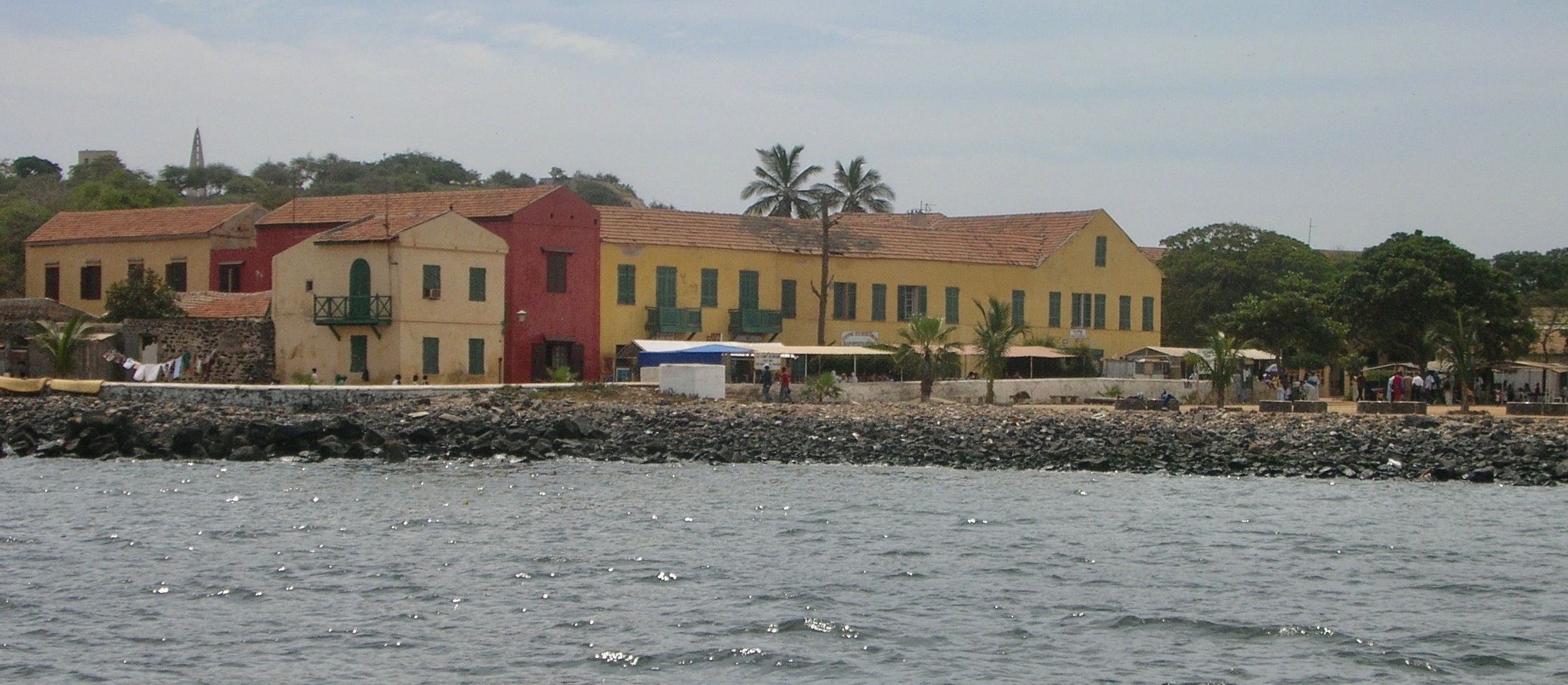
Gorée Island, site of slave trading in 15-19th centuries, off coast of Dakar, Senegal
A tall Gambian doctoral student assisting Senegalese PEN guided a few of us around Gorée. Fluent in French, English and Spanish, he was writing a doctoral thesis on the secrets of history and myth in the epic of Kaabu according to Mandingo oral traditions—clearly a future PEN member. Thoughtful, knowledgeable, he spent the day sharing history. During and after the Dakar meetings, our paths crossed in subsequent PEN conferences and congresses, and we know each other still. Dr. Mamadou Tangara earned his doctorate at the University of Limoges in France shortly after and eventually became the Gambian Permanent Representative to the United Nations. During Gambia’s constitutional crisis in 2016-17, he and other diplomats called for the president to step down peacefully; he was dismissed, but when power changed hands a few months later, he was reappointed as Minister of Foreign Affairs for the Gambia. The friendship with Mamadou Tangara remains and is one of my many valued friendships from PEN.
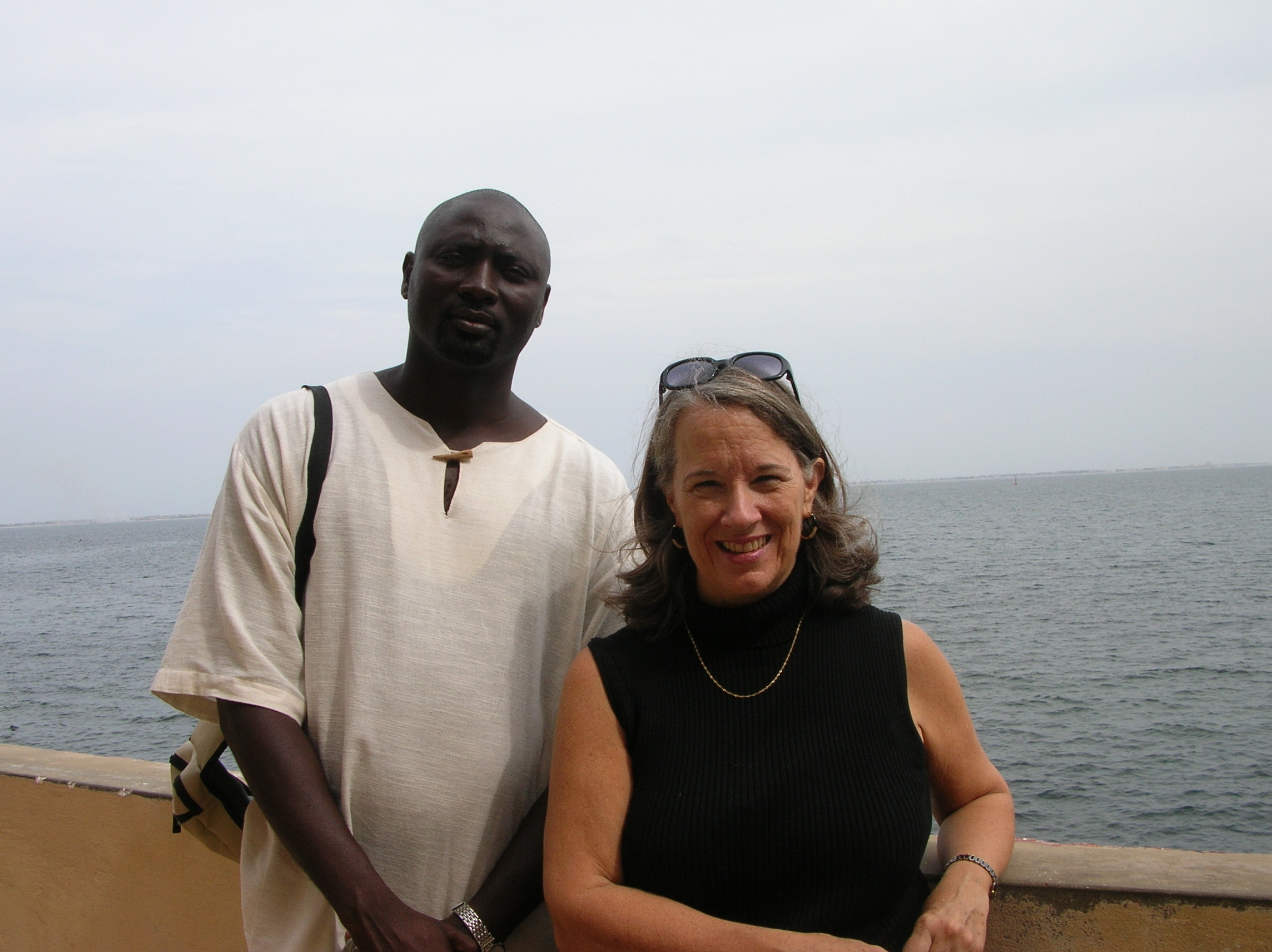
Mamadou Tangara (Gambia) and Joanne Leedom-Ackerman (PEN International Secretary) on Gorée Island at PEN’s 2004 Dakar conference
Mamadou’s mentor at the time was an older Gambian journalist and editor Deyda Hydara, who joined PEN members from more than a dozen African centers in this conference to prepare for PEN’s first PAN African World Congress in Senegal in 2007. The Congress would be PEN’s first in Africa since the 1967 Congress in the Ivory Coast when American playwright Arthur Miller was International PEN President. Though the Gambia didn’t yet have a PEN Center, Deyda was planning on starting one. At the time Deyda Hydara was co-founder and primary editor of The Point, a major independent Gambian newspaper. He was also correspondent for AFP News Agency and Reporters Without Borders and was an advocate for press freedom and a critic of his government’s hostility to the media.
A month after PEN’s Dakar conference, the Gambian government passed a bill allowing prison terms for defamation and another bill requiring newspaper owners to purchase expensive operating licenses and register their homes as security. Deyda Hydara announced his intent to challenge these laws. Two days later on December 16, 2004 Deyda Hydara was assassinated on his way home from work. To this day his murder remains unsolved. The following year Deyda Hydara won PEN America’s Freedom to Write Award posthumously and later the Hero of African Journalism Award of the African Editors Forum.…[cont]
Around the World in Thirteen Years…
Slowly we are emerging from the pandemic year(s) though we are all still mostly in digital mode. Colleagues at home and abroad are squares on a screen with various backgrounds—real and virtual bookcases and vegetations, some, as I myself, often simply snapshots at our best. Unless you need to present, it is often easier to turn off the video camera and listen and participate in a meeting without worrying about sitting up straight.
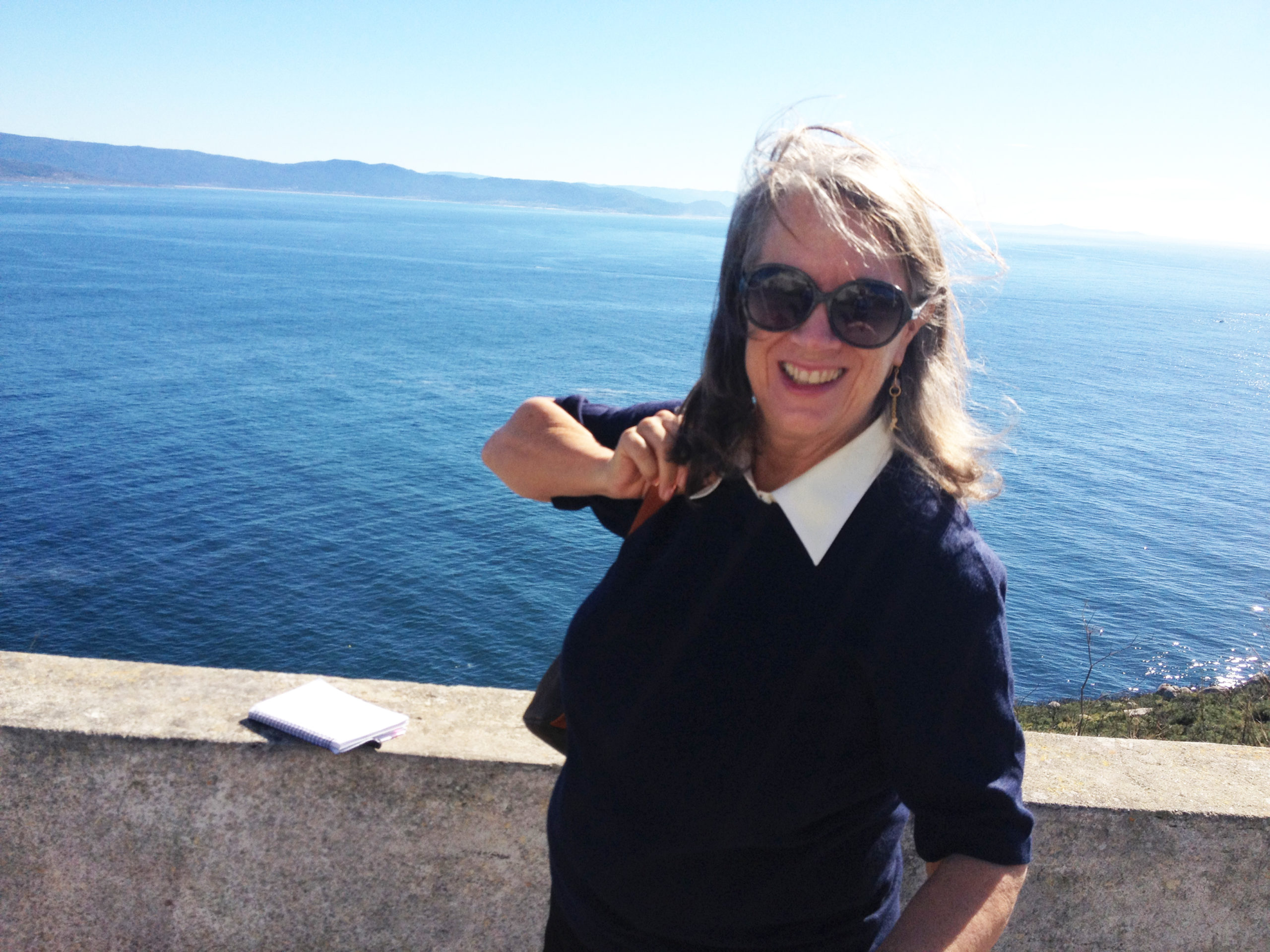
Photo credit: Joanne Leedom-Ackerman
My screen shot is a reminder of times past as I’m standing by a wall above the Atlantic Ocean at Cape Finisterre, Spain, wind blowing my hair, wearing dark glasses, my pad of paper and pen at hand. Finisterre was where the ancients thought the world ended as they looked westward over the vast Atlantic Ocean.
But that is another story, one from a time when I thought the world’s connections were a given, not relegated to cyber.
For this monthly blog post, I’ve taken a core-sample of posts written in May since the blog began in 2008. If you’re interested, you can click the title and read the full post. The journey is through time and geography, ranging from Hong Kong to London to Krakow to Tunis to Tehran to Istanbul to San Miguel de Allende and Mexico City, to Bellagio and in the U.S. to Chicago and Washington, DC. With the exception of the post focused on a prisoner in Iran, I was in each city working, at conferences or researching or otherwise engaged in the places over the last 13 years. It seems a bit of a lifetime ago when the world was so easily transited.
May 2008: China from the 22nd Floor
On June 4 China will face the 19th anniversary of the killing of citizens occupying Tiananmen Square. Nineteen years ago as president of PEN USA, I remember well sorting through dozens of unfamiliar Chinese names as we sought to untangle what writers had been arrested. Today there are at least 42 writers imprisoned in China.
I wake up 22 stories in the air. Most of Hong Kong is in the air with thousands of high rises shooting into the sky. I’m in a cubicle—two small beds pressed against each wall, a tiny shelf between, a TV mounted on the wall at the foot of one bed. At the head of the bed is a large window so the room is airy and looks out on other windows in the sky.
I wake in the middle of the night because of jet lag and then again early in the morning before the sun rises. I turn on the TV whose screen flashes the financial news of Hong Kong—the major world indices, Hong Kong currency exchange rates, global gold prices, Hong Kong stock market prices, statistics on which the financial world relies, accompanied by jazz and elevator music. The only news channel on this hotel TV is the Chinese Broadcasting Company from the mainland; it broadcasts the mainland government’s view of the news…[cont]
May 2009: The Talking City–A Birthday Tribute (or) Tiananmen Square and the Fourth of July
I live in a political town, probably the most political city in the US. Debate and policy forums run all day and all night. Any day of the week you can find and attend debates on what should be done about North Korea, Iraq, Afghanistan, the Middle East, China, the economy in general—interest rates, taxes, trade and monetary policy; the economy in specific–the automobile industry, the oil industry; U.S. domestic policy in general—state vs. federal; US domestic policy in specific–abortion, health care, gay marriage, public education.
Washington likes to talk. Everyone has an opinion about almost everything, and you can hear those opinions formally at the think tanks and forums around town, on the cable news and talk shows, or in the restaurants and cafes. In the evenings at the receptions, the book parties, the embassy parties, the talking continues.
At the center of all the debate and discussion are the legislators, the executives and the President who will make the decisions after the talking is done, or more often while it is still going on…
I originally set out to write a blog about the upcoming 20th anniversary of the student protest and subsequent massacre in Tiananmen Square in Beijing on June 4; however, having taken this detour into Washington, I will stay there and appreciate the ability to talk and talk and talk and debate. Even though the plethora of opinions can wear one down after a while, it is possible to turn off the TV, decline the forum invitations, take a discussion of a novel to the receptions and remain watchful and grateful that there are so many opinions, so many involved citizens and officials and so many diverse policies to choose from…[cont]
May 2010: Introducing Isabel Allende
PEN Faulkner: Discovering Stories That Need to Be Told
From my introduction of Isabel Allende at the Washington National Cathedral
Isabel Allende has been called “a literary legend,” a “cultural bridge builder” and one of the most influential Latin American women leaders, but she is also like a good friend with whom you take off your shoes, curl up on the sofa and figure out life together.
I first met Isabel Allende over 20 years ago in Los Angeles when she was giving a reading. I was involved with PEN, who may have been co-sponsoring the program—I no longer remember—but I remember attending a powerful evening with my colleagues. For the past months I’ve been absorbed in continuing my reading of Isabel Allende, and I can confirm that I am one of her good friends—though she may not know this. But as a reader, I have the feeling I am not alone in this club, or tribe, because if you immerse yourself in her fiction and memoirs, you not only feel you know her from her easy and confidential prose, but you think she surely knows you because of her insights into life. And even if she doesn’t, you feel she might want to know you and then let you move into the tribe of people she collects around her…[cont]
May 2011: Memorial Day—Rolling Thunder and Beyond
When I began this blog, I promised…who? myself mostly, a few friends, family that I would post once a month. Most of the months I’m burrowing away on fiction, on the long process of writing a novel—writing, rewriting, thinking, rethinking. It is a different discipline to pull away from that marathon of 400+ pages and sprint to the end of the block with 4-600 words that have some cohesion and at least one idea worth passing on. I tend to put off this arbitrary deadline till the very end of the month.
So…this is a rather long throat-clearing on Memorial Day, a hot, steamy day in Washington, a day with the sun full and unobstructed in a clear blue sky. I’ve finished my fiction writing and now have the remainder of the afternoon to write May’s blog post. This space often focuses on issues abroad, but today I’d like to focus on Memorial Day, a time in Washington when Rolling Thunder motorcycle bikers roar through the streets to memorialize Vietnam and all vets and where flags fly at half mast to honor those who have died in wars.
Memorial Day was perhaps first celebrated in the U.S. in 1865, right after the American Civil War by freed African slaves in South Carolina at the grave site of Union soldiers. The African Americans honored the Union soldiers who fought to help win their freedom. Originally called “Decoration Day,” the event was declared a national observance in 1868 with a date specifically set that was not the anniversary of a battle. Both North and South had lost hundreds of thousands of men in the Civil War, but by the end of the next decade the national memorial observances honored those from both the Blue and Gray states.
The honoring of veterans who have given their lives in war through the centuries is an occasion, solemn and celebratory with speeches, politics, picnics and some reflection. As the U.S. begins pulling out of war zones, it is also a time to consider what journey we have been on—where it is yet going, where it has taken us and where it has taken others outside our borders. War cannot be completely bound by borders nor by time frames for war impacts history and the future of us all….[cont]
May 2012: History, Hope and Politics: London Before the Olympics
I’m back at Sticky Fingers restaurant in London on a gray, drizzling Sunday afternoon, visiting this site of our family’s youth, sitting in a red leather booth with a dark wood table, wooden blinds over the windows, rock and roll rhythms from the sound system, and Rolling Stones memorabilia covering every inch of wall space. This spot is down the road from where we lived in London in the 1990’s and where I used to sit writing most afternoons before my children joined me on their way home from school. I return here almost every time I visit London.
Today the booths are filled with other parents and children chattering and eating hamburgers and fries and salads on this bank holiday weekend. The management has changed; they no longer know me, but they are still accommodating, letting me sit in a booth with good light, working as long as I like.
Outside Sticky Fingers, London is preparing for this summer’s Olympic Games with new construction dotting the landscape. One of my other favorite restaurants I went to visit has been demolished and is now a construction site for a new hotel, with men working frantically in the hope of opening by July. In the City of London itself a hotly contested election has just concluded for the Mayor who will preside over the Olympic Games with the incumbent conservative winning, barely.
Across the Channel today, the French are voting on who will govern France, though the Olympics have no influence there. After all France lost the Olympic bid as any Brit will remind you. The political tuning fork of Europe is vibrating this spring between the conservative and socialist paths of governance. (By Sunday evening it was clear the Socialists and anti-austerity electorate had won in France and in Greece though it wasn’t clear how the economic realities would square with the political will or how the European monetary Union might calibrate.)
In the theaters of London which tourists come to see, a third of the dramas focus on World War I or World War II as the historic reference point when the nations of Europe broke into conflict.
However, in the present, London is concentrating on the summer games as it anticipates the world’s nations and athletes gathering, independent of political and economic differences. For two weeks in late July and August London will showcase competition in its most elegant, accomplished and constructive form in the XXX Olympic Games. What happens after that…well, that will be another story….[cont]
May 2013: Living In and Beyond History
The white horse-drawn carriages clomp on the gray stones of Old Town Krakow, circling this largest of medieval town squares in Europe. On the fringe sit restaurants with white and yellow umbrellas advertising Polish beers where residents and tourists dine on red-checked table cloths. In the center the Town Hall Tower dominates, and around the periphery old terraced houses and shops form an arcade where one can buy everything from pastries to books to clothes to shoes.
Today tourists can look out over the city from the observation deck at the top of the gothic Town Hall Tower, originally built of stone and brick at the end of the 13th century. The tower used to house the city prison with a medieval torture chamber in its cellars. Thirty miles to the west lay some of the worst torture chambers of the 20th century: the prison camps of Auschwitz and Birkenau, where an estimated three million people died during World War II.
This historic city of Krakow was the scene last week of “Writing Freedom”—the biennial gathering of PEN International’s Writers in Prison Committees from around the world in joint symposiums with ICORN (the International Cities of Refuge Network) and the third Czeslaw Milosz Literary Festival.
Along the Vistula River writers gathered from every continent and from regions where they are now, or were in the past, under threat, including Iran, Iraq, Syria, Yemen, Bahrain, Egypt, Morocco, Algeria, Ethiopia, Eritrea, Zimbabwe, China, Myanmar/Burma, Pakistan, Philippines, Turkey, Russia/Chechnya, Belarus, Mexico, El Salvador, as well as from all over Europe and North America. The more than 200 guests strategized over the challenges to freedom of writing and expression. They explored new threats such as digital surveillance, new adversaries in non-state actors and new and old methods of protest and advocacy; they also heard reports of those currently on the frontlines.
While global solutions to these large questions are not easily forthcoming, answers are often found in specific acts of one writer advocating on behalf of another, of one city opening its doors to one writer at a time, of a community gathering and raising a collective voice and finding where to target that voice….[cont]
May 2014: Tunisia could be the first Arab Spring success. But it’s not there yet.
Tunisia has many advantages that set it up well for progress. But the country’s future will not be assured without international support. It must fortify a weak economy, combat crime and terrorism, and continue government reforms.
(Op-ed published in The Christian Science Monitor, May 27, 2014)
Tunis, Tunisia
In Roman times wild animals paced beneath Tunisia’s El Jem colosseum, ready to spring into mortal combat with gladiators – usually slaves fighting for their lives and sometimes freedom – as an audience looked on. Recently I paced the floor of this same amphitheater, trying to imagine its history – and future.

Today, Tunisia is engaged in its own struggle for the life of its new democracy. Though a small country – 64,000 square miles with 11 million people – Tunisia is vital to regional stability. Now this ancient North African country where the Arab Spring began is poised to become the first success in the region – but only if it can shore up a weak economy, curb the dual threats of terrorism and crime, and continue needed government reforms.
Three years after a young street vendor set himself on fire to protest the authorities’ harassment and corruption, three years after the citizens rose up and ejected their longtime autocratic leader, Tunisia has laid the groundwork for its future. In January, the citizenry adopted a new Constitution that was widely debated and passed with the votes of more than 90 percent of the Constituent Assembly. All sectors endorse and are proud of the forward-leaning Constitution, which balances the secular and religious and is looked at as a model for the region.
As a further mark of progress, the Assembly recently passed a law establishing a judicial body to determine the constitutionality of new laws. It will be replaced by a new constitutional court after the next election. This opens the way now for the Assembly to pass a law to set up elections, which are anticipated this year….[cont]
May 2015: No blog posted.
May 2016: Call for Help inside Iran’s Evin Prison
Shared below is a letter that managed to get out of Iran’s infamous Evin Prison from journalist and human rights activist Narges Mohammadi. She is detained on charges of “gathering and colluding to commit crimes against national security” and “spreading propaganda against the system.” According to reports she has also been charged with “insulting officers while being transferred to a hospital” because of her health. Narges Mohammadi is former vice president and spokesperson of the Defenders of Human Rights (DHRC) which represents prisoners of conscience. She is also involved in a campaign against the death penalty in Iran.
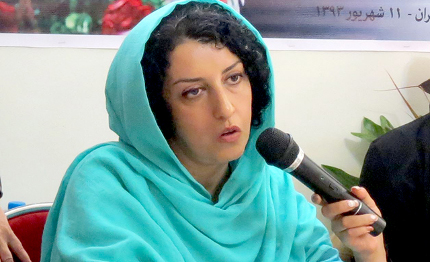
Narges Mohammadi
On May 17 the verdict in her case was handed down. Narges Mohammadi was sentenced to five years in prison for “meeting and conspiring against the Islamic Republic,” one year for “spreading propaganda against the system” and ten years for her work advocating against the death penalty. Under Iranian penal code, a person with several jail terms must serve the most severe so she must serve ten years, although sentenced to 16 years total.
Dear members of International PEN,
I’m writing this letter to you from the Evin Prison. I am in a section with 25 other female political prisoners, with different intellectual and political point of view. Until now 23 of us, have been sentenced to a total of 177 years in prison (2 others have not been sentenced yet). We are all charged due to our political and religious tendency and none of us are terrorists.
The reason to write these lines is, to tell you that the pain and suffering in the Evin Prison is beyond tolerance. Opposite other prisons in Iran, there is no access to telephone in Evin Prison. Except for a weekly visit, we have no contact to the outside. All visits takes place behind double glass and only connected through a phone. We are allowed to have a visit from our family members only once a month….[cont]
May 2017: American Writers Museum Launches in Chicago
(Published in World Literature Today, May 10, 2017)
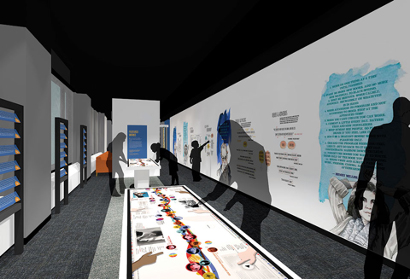
The new American Writers Museum, opening this May in Chicago, celebrates American literature in a lively, interactive space that honors America’s writers past and present.
Located on the second floor of a grand old building on Michigan Avenue’s “Cultural Corridor,” the American Writers Museum is the realization of a seven-year journey that began with a question: Why was there no national museum in the US honoring writers?
Malcolm O’Hagan, a dedicated reader and retired engineer and businessman, had visited the Dublin Writers Museum in his native Ireland and began to talk with friends and professionals about developing an American museum. He brought on writers, scholars, and publishers to develop the idea and curate the selection of writers. All agreed the focus should be on writers no longer living who’ve stood the test of time, but the museum should also celebrate contemporary literature with readings, book signings, and programs.
“I see the museum as a literary jewel box where a visitor can enjoy old friends—the books, words, characters of writers they know and also get to meet new ones,” O’Hagan says. Chicago was selected because of its central location, the support of the city, and its rich literary heritage, which includes writers like Carl Sandburg, Saul Bellow, and Gwendolyn Brooks.
One of the governing principles was not to create a museum for static artifacts—though there will be some artifacts—but a place where readers, writers, and visitors can learn….[cont]
May 2018: Gathering in Istanbul for Freedom of Expression
(Below is my talk for the Gathering in Istanbul for Freedom of Expression, a conference held every two years, but this year it is being held via video May 26-27. For the first time in 21 years the organizers judged that a gathering in person was too problematic given the arrests and crackdowns on the media. Turkish presidential elections are scheduled for June 24 alongside parliamentary elections.)
I first visited Turkey for the inaugural “Gathering in Istanbul” in March 1997. At the time I was Chair of PEN International’s Writers in Prison Committee and joined 21 other writers from around the world. Along with over a thousand Turkish artists and writers, most of us had signed on to be “publishers” for Freedom of Thought, a book that re-issued writings which had violated Turkey’s laws against “insulting the State.” The book included work by noted authors, including celebrated novelist Yasar Kemal. None of us aspired to go to Turkish prison, but we understood the importance of showing up and showing solidarity with our Turkish colleagues. During that Gathering we visited prisons where writers and publishers were incarcerated and visited court rooms where they were charged.

Rally at Istanbul University [includes Soledad Santiago (San Miguel Allende PEN), James Kelman (Scottish PEN), Alexander (Sascha) Tkachenko (Russian PEN), Kalevi Haikara (Finish PEN), Joanne Leedom-Ackerman, (WiPC Chair/American PEN with bullhorn), Şanar Yurdatapan (Turkish rights activist and organizer)]
Unfortunately, that opening has closed, and we are here today on video because the biennial ‘Gathering in Istanbul’ for the first time in 21 years is too problematic to hold in Istanbul. The situation for freedom of expression is worse than ever in Turkey with more writers in prison than anywhere else in the world. Depending on the statistics of the day, there are more than 250 journalists and media workers in or facing prison terms, 200 media outlets closed, and thousands of academics and civil servants let go or facing charges….[cont]
May 2019: [Beginning in May, 2019 I began writing a retrospective of work with PEN International for its Centenary so posts were more frequent in 2019-2020. In May 2019 there are two posts in the PEN Journeys and in May 2020 there are four.]
May 2019: PEN Journey 1: Engagement
PEN International celebrates its Centenary in 2021. I’ve been active in PEN for more than 30 years in various positions and now as an International Vice President Emeritus. With memories stirring and file drawers of documents and correspondence bulging, I am a bit of a walking archive and have been asked by PEN International to write down memories. I hope this personal PEN journey will be of interest.
February 13, 1989: I was President of PEN Center USA West and on an airplane when I read that Salman Rushdie’s novel Satanic Verses was being burned in Birmingham. The next day a fatwa was issued on Rushdie. What was a fatwa, we all asked at the time, as we, along with PEN Centers around the world, mobilized to protest that a head of state was ordering the murder of a writer wherever he was in the world.
November 10, 1995: As Chair of PEN International’s Writers in Prison Committee, I was standing vigil with others outside the Nigerian Embassy in Washington, D.C. when word spread that novelist and activist Ken Saro Wiwa had been hanged that morning in Port Harcourt, Nigeria.
October 7, 2006: My phone rang at 7:30 on Saturday morning. I was International Secretary of PEN International, and the International Writers in Prison Program Director was calling to tell me that Anna Politkovskaya had just been shot and killed in Moscow. We all knew Anna—I’d last had coffee with her at an airport in Macedonia. We worked with her on the situation of writers in Russia and Chechnya and had enormous respect for her knowledge and courage.
January 19, 2007: We were about to begin a PEN International board meeting in Vienna when a call came from Istanbul. Hrant Dink had just been shot and killed outside his newspaper office in Istanbul. Dink was an editor of an Armenian paper and a writer whom members of PEN knew well and worked with on freedom of expression issues in Turkey.
Most writers long active in PEN’s freedom-to-write work can tell you where they were when the news broke on each of these cases. They can tell you because the lives of these writers and many others have been critical in the struggle for freedom of expression around the world….[cont]

Salman Rushdie, Ken Saro Wiwa, Anna Politkovskaya, Hrant Dink
May 2019: PEN Journey 2: The Fatwa
It was President’s weekend in the US—between Lincoln and Washington’s birthday, coinciding with Valentine’s Day, 1989. I was President of PEN Center USA West and had just hired the Center’s first executive director ten days before. I’d been working hard with PEN and was also finishing a new novel, teaching and shepherding my 8 and 10-year old sons. For the first time in a year and a half my husband and I were going away for a long weekend without our children. He had also been working nonstop and had managed to clear his schedule.
On the plane to Colorado where we planned to ski, I read that Salman Rushdie’s The Satanic Verses had been burned in Birmingham, England. The next day Ayatollah Khomeini issued a fatwa against Rushdie. What was a fatwa? The Supreme Leader of Iran was calling for the murder of Rushdie wherever he was in the world, and he was offering a $6 million reward. As information about the fatwa developed, it also included a call for the death of whoever published The Satanic Verses.
I began making phone calls. This was a time before omnipresent cell phones so I had to find phones and numbers where people could reach me. (Usually our vacation dynamic was that my husband was on the phone.)…[cont]
May 2020: PEN Journey 27: San Miguel de Allende and Other Destinations—PEN’s Work Between Congresses
Over the years I’ve used various metaphors to describe PEN International—a giant wheel with 140+ spokes that reach out into the corners of the globe. A vast orchestra with the string, woodwind, brass and percussion sections scattered across the map, directed by local conductors and the Secretariat in London.
PEN’s core is an idea, codified in its Charter, acted upon by writers around the world organized into PEN centers. These writers and centers gather intensity as they work together.
Writers in a country or region or language are empowered to work as a center of PEN by the whole body of centers—the Assembly of Delegates—which vote on a center’s membership at PEN’s annual Congresses. During the months in between, PEN centers act both individually and collectively—celebrating and presenting literature in the many cultures and languages, mobilizing on issues of freedom of expression, acting to preserve and celebrate languages and translation, in particular minority languages, discussing and debating issues of peace, addressing the situation of women writers, and assisting and protecting writers who find themselves in exile. All of this activity between the annual Congresses occurs in the PEN centers and in the work of PEN International’s standing committees and at regional conferences which convene during the year….[cont]
May 2020: PEN Journey 28: Bellagio: Looking Forward—PEN for the 21st Century
In discovering Lake Como in Northern Italy on a walking tour in 1790 poet William Wordsworth called it “a treasure, which the Earth keeps to itself.” Poet Percy Bysshe Shelley declared it “exceeds anything I ever beheld in beauty with the exception of the arbutus islands of Killarney.” He extolled the chestnut, laurel, bay, myrtle, fig and olive trees that “over-hang the caverns and shadow the deep glens which are filled with the flashing light of the waterfalls.” These descriptions from the English romantic poets are matched no doubt by Italian and other poets encountering Lake Como, one of Italy’s largest and one of Europe’s deepest lakes.

Lake Como—“a treasure which the Earth keeps to itself” and the site of PEN International’s strategic planning conference, July 2003
Lake Como is one of my favorite places so meeting for an International PEN strategic planning conference above the shimmering Y-shaped lake set among the Alpine foothills was an ideal working vacation the summer of 2003. I participated as a PEN vice president and a trustee of the International PEN Foundation and former Writers in Prison Committee chair, along with International PEN’s President Homero Aridjis, International Secretary Terry Carlbom, Treasurer Britta Junge Pedersen, current and past board members, other trustees of the International PEN Foundation, several vice presidents and the standing committee chairs.
Twenty-six of us from 14 countries gathered to discuss the changed global context for PEN, which had grown from 95 to 134 centers in the last 14 years, and to consider the demands on this organization dedicated to the role of writers in promoting intellectual co-operation, tolerance and pluralism in the world….[cont]
May 2020: PEN Journey 29: Mexico City and the Road Ahead—Part I, Form
A PEN International World Congress is a hybrid—a mini-UN General Assembly with delegates sitting at tables behind their center’s (and often country’s) name plates discussing world affairs that relate to writers; an academic conference with panelists addressing abstract philosophical themes; a literary festival with writers reading their poetry and stories and sharing books, and finally a civic engagement with resolutions passed on global issues which are then delivered, sometimes by a march or candlelight vigil to a country’s embassy that is oppressing writers.
Heads of state and UN officials frequently visit and/or speak at PEN Congresses depending on the openness of the host country; esteemed writers, including Nobel laureates, and former PEN main cases are often guests. The Congress’ size varies depending on the resources available, but the financial commitment is out of reach for many PEN Centers.
The 2003 International PEN Congress in Mexico City was celebrated as the First Congress of the Americas. Hosted by Mexican PEN, it was also supported by Canadian PEN, Quebecois PEN, American PEN, and the Latin American PEN Foundation. It was the final Congress under the presidency of Mexican poet and novelist Homero Aridjis. Organized around the theme of “Cultural Diversity and Freedom of Expression,” the 69th Congress welcomed delegates from 72 PEN Centers from every continent except Antarctica….[cont]
May 2020: PEN Journey 29: Mexico City and the Road Ahead—Part II, Substance
…As well as reporting on the welcoming of new centers, Part 1 of PEN Journey 29 recounted an historic Charter amendment, major rules and regulation changes and a strategic plan—the nuts and bolts and essential frame for any organization, especially one as complex as International PEN as it sought to modernize its governance and structure. In Part II the focus turns to the substance of PEN’s work and of the 2003 Congress.
The final gathering under the presidency of Mexican poet and novelist Homero Aridjis, PEN’s 69th World Congress hosted more than 250 participants, speakers and guests, including Nobel laureate and PEN International Vice President Nadine Gordimer and also listed on the literary programs Nobel laureate and former PEN International President Mario Vargas Llosa and many writers from the Americas—Michael Ondaatje, John Ralston Saul, Francine Prose, Andrés Henestrosa and writers from at least 12 indigenous regions and languages in Mexico—Huichol, Maya, Mazahua, Mazatec, Mixtec, Náhuatl, Tenec, Tojolab’al, Tzotzil, Wuirárica, Yoleme, Zapoteca.

PEN International 69th Congress. L to R: Deborah Jones (PEN USA West), Jens Lohman (Danish PEN), Isobel Harry (Canadian PEN), Terry Carlbom (PEN International Secretary), General José Francisco Gallardo (former PEN main case) and his family; Nadine Gordimer (PEN International Vice President) and General Gallardo; General Gallardo, translator, and Jens Lohman (photos courtesy of Sara Whyatt)
Homero Aridjis noted: ‘The Congress programs explore the literature of the Americas, of Canada, the United States and Latin America, shining a particular light on the indigenous literatures which are so essential to understanding the cultural map of our continent from Chile to Canada.’…[cont]
Spring’s Return
The buds burst onto the trees this past weekend in Washington, DC and the Eastern Shore of Maryland and in Northern Virginia, heralding spring with cherry blossoms, tulip blooms, jonquils, forsythia. The skies dawned blue, then cloudy and windy with the backwash of southern storms, and now blue again. Spring has come!
It has been over a year since most of us have traveled anywhere though slowly the hum of life is returning.
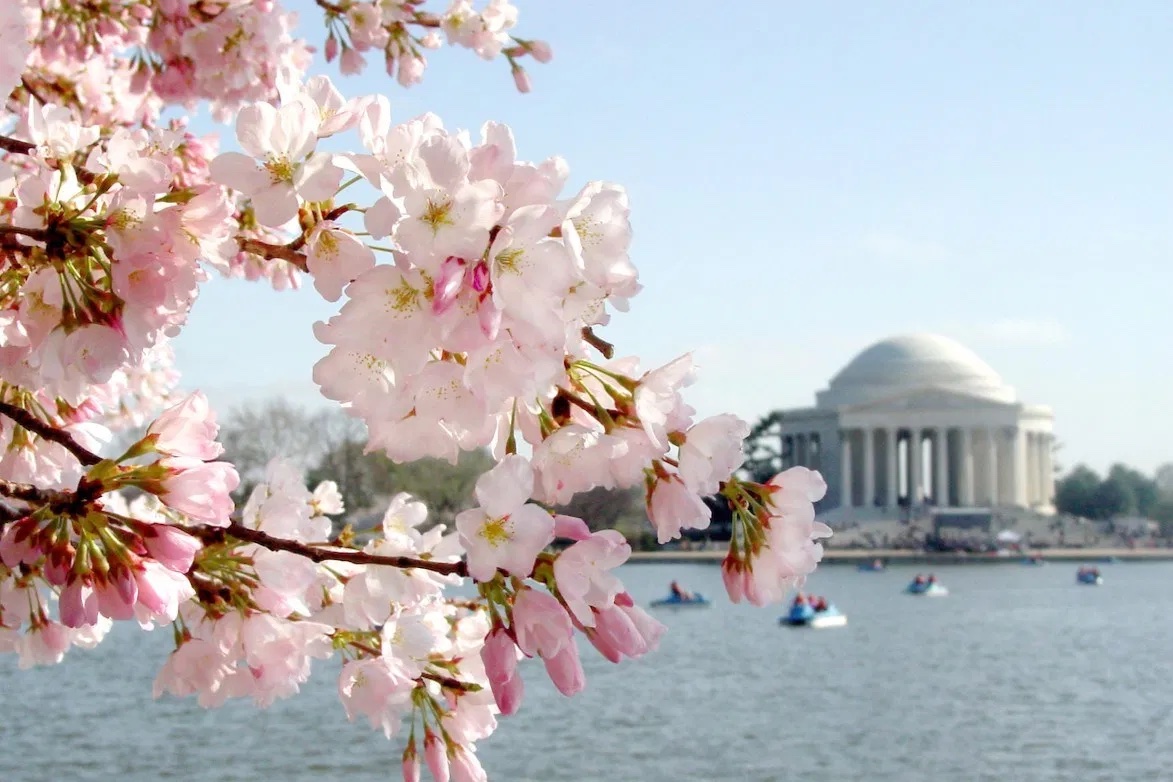
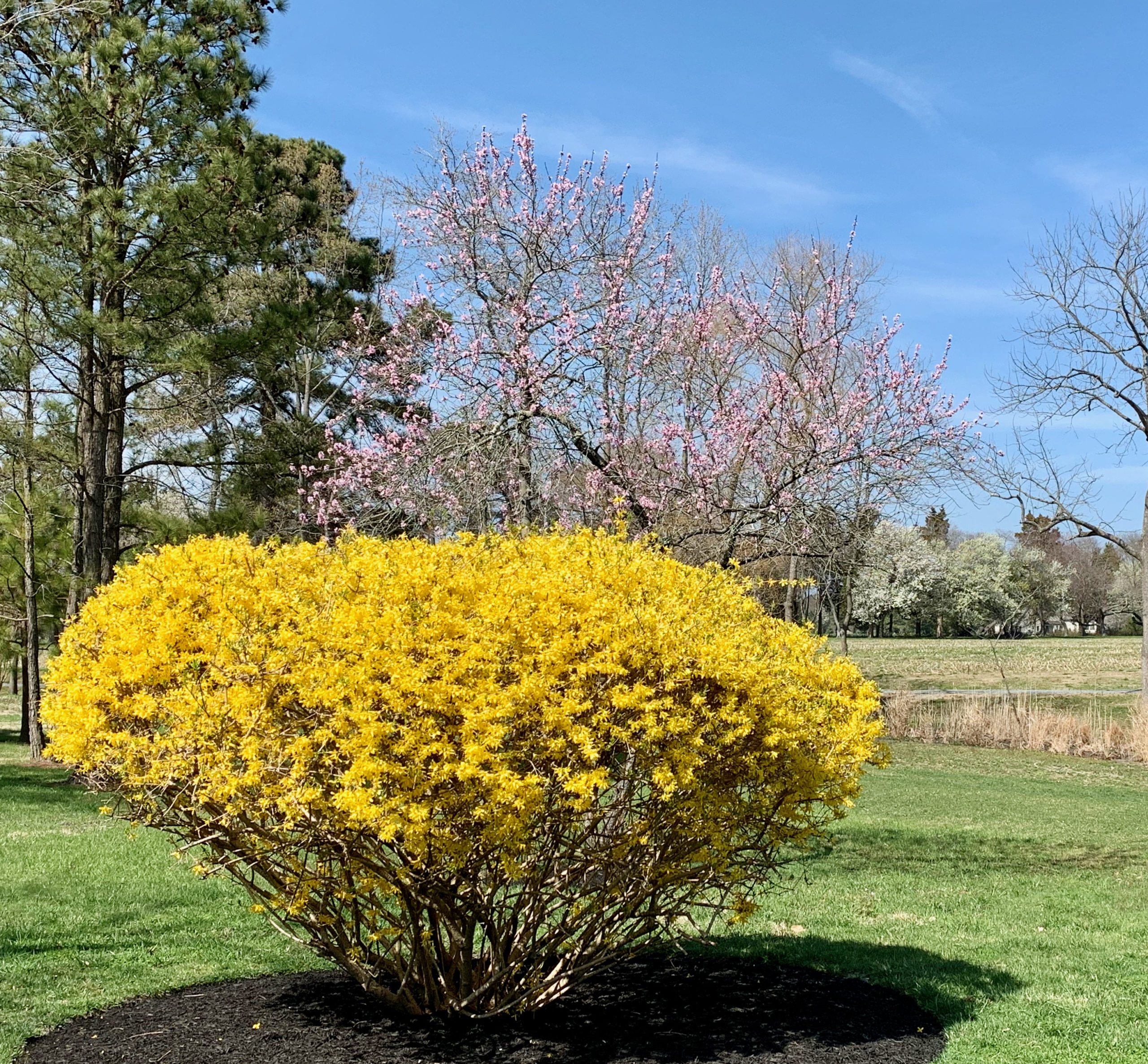
Photo credit: Joanne Leedom-Ackerman
In the absence of first hand encounters, I shared last month a retrospective of March blog posts and found appreciative readers so I repeat the exercise again. These April posts travel from China to Myanmar to Turkey to a sweep of Africa. Many of the issues remain current today.
This 2021 retrospective may prove to be a kind of dividing line—before and after the flood. None of us knows how the world will accelerate again with citizens crossing borders. I hope for the return to a world connected. We are more digitally connected after this year and that digital connection continues to gain momentum. But I also look forward to sharing a meal with colleagues around the globe and to gathering in person.
Below are the opening paragraphs of April blog posts beginning in 2008. Readers can continue reading the essays by clicking the titles. The journeys bridge past and present with a promise, I hope, of a future in situ and in person in years to come:
April 2008: OLYMPIC RELAY–A POEM ON THE MOVE
One of the more creative and moving responses to the Olympics in China this year is a poem relay, initiated by writers and members of International PEN. The poem June, was written by Shi Tao, who is currently serving a 10-year prison sentence for sending to pro democracy websites a government directive for Chinese media to downplay the 15th anniversary of the Tiananmen Square protests.
You may recall in 2004 Shi Tao was identified when Yahoo! turned over his email account to the authorities. Charged with “illegally providing state secrets to foreign entities,” Shi Tao now faces the next decade in prison. His poem June is his memorial of the 1989 Tiananmen Square crackdown.
June
By Shi Tao
My whole life
Will never get past “June”
June, when my heart died
When my poetry died
When my lover
Died in romance’s pool of blood
June, the scorching sun burns open my skin
Revealing the true nature of my wound
June, the fish swims out of the blood-red sea
Toward another place to hibernate
June, the earth shifts, the rivers fall silent
Piled up letters unable to be delivered to the dead.
(translated by Chip Rolley)
International PEN through its 145 centers around the world is circulating the poem as a parallel to the Olympic Torch relay. Over 110 PEN centers are participating by translating the poem into at least 90 (and counting) languages, and then sharing the written and oral versions in their countries and on the internet. By the end of the journey the poem is likely to be translated into as many as 100 languages, languages large and small–multiple Chinese dialects, English, French, Spanish, Catalan, Basque, Galician, Portuguese, German, Italian, Swedish, Norwegian, Danish, Dutch, Finnish, Icelandic, Bosnian, Serbian, Slovene, Croatian, Macedonian, Romanian, Hungarian, Finnish, Arabic, Hebrew, Farsi, Russian, Chechen, Hindi, Pashto, Kazakh, Kyrgyz, Greek, Turkish, Kurdish, Japanese, Malay, Haitian, Somali, Afar, Swahili, Igbo, Hausa, Yoruba, Krio, Wolof, Poular, Lusoga, Lingala, Chichewa. Tagalog, Cree, Nahuatl, Tsotsil, Mayan, Bikol, etc. etc….[cont]
April 2009: “There Will Still Be Light” *
In August, 1993 in Myanmar (Burma), Ma Thida, a 27-year old medical doctor and short story writer was arrested and sentenced to 20 years in prison, charged with “endangering public tranquility, of having contact with unlawful associations, and distributing unlawful literature.” She had been an assistant to Aung San Suu Kyi and traveled with Suu Kyi during her political campaign.
In September that same year at the International PEN Congress in Spain, I stepped into the Chair of International PEN’s Writers in Prison Committee. One of the early main cases that came across my desk was that of Ma Thida.
Last week in Providence, Rhode Island Ma Thida and I shared a stage with others at Brown University in a program: There Will Still Be Light: a Freedom to Write Literary Festival focused on the situation in Burma today as well as the situation for the freedom of writers around the world. For the past year Thida has been at Brown as a fellow of the International Writers Project (a joint appointment of the Writing Program and the Watson Institute for International Studies) which gives a writer under stress a year to work and to share their work and cultural heritage….[cont]
April 2010: Stranded in Casablanca, Out and About in Tangiers
The volcanic cloud hovered above like the mythic hand of Vulcan, unseen and disrupting the plans of mere mortals.
I was stranded in Casablanca after a short research vacation, en route to a literary festival in London and board meeting in Paris. What does one do, stranded in Casablanca? I headed north to Tangiers and waited out the volcanic ash and waited for an open seat on an airplane. It was not hard duty.
The “doorway” to Africa, where the Mediterranean and Atlantic oceans meet, is where Hercules is said to have smashed through the Isthmus and created two continents. Under blue sky with no volcanic ash in sight, I contemplated the pillars of Hercules, one in Europe—the Rock of Gibraltar—and the other in Africa. I wandered through medinas and souks, drove along the coast, visited Tetouan and Cueta, guided by a 6’2” history teacher who strode slightly in front of me in a long saffron robe, maroon fez, hands behind his back, instructing me in 3000 years of history in this region where the Phoenicians, the Carthaginians, the Romans, the Moors, pagans, Christians, Muslims and Jews all trod, where at least four colonial powers—England, France, Spain and Portugal—claimed and fought for land. I learned that Morocco was the first country to recognize the United States after it gained independence, and the first foreign legation the new United States of America sent out was to Morocco.
“You understand?” the guide kept asking me as he spun through the stories of conquest and power, of cultures on the move. “I told you that, remember?” I expected an exam any moment.
In mythology Hercules features most prominently in the region, but in the days after the volcano, I also read legends of Vulcan. In one tradition he is said to be the father of Jupiter, king of the gods. In another mythology he is the son of Jupiter and Juno, who threw their ugly baby off Mount Olympus. Vulcan fell for a day and a night and broke a leg when he finally landed in the sea. There he sunk to the bottom where a sea nymph found him and raised him as her son. According to legend, he spent a happy childhood playing with dolphins and the fish and all the wonders under the sea.
On land Vulcan eventually discovered fire and its properties, including fire’s ability to draw out from stones the iron, silver and gold which Vulcan then hammered into swords and shields and into jewelry for the woman he thought was his mother. In myths as in history, events come back on themselves. Juno, admiring the woman’s jewelry, discovered that the talented blacksmith who’d fashioned it was Juno’s own son. Juno demanded that Vulcan return; he refused. The plot thickened….[cont]
April 2011: Clouds Over the Bosporus
It rained every day on the Bosporus as we ferried back and forth across Istanbul’s grand waterway to discuss current and impending conflicts in the globe. Inside the windowless room, sitting in a large square facing each other, former presidents, prime ministers, foreign ministers, ambassadors and a former NATO commander toured the world in words and debate to find paths to end these conflicts, to encourage the opening up of political systems and to keep those systems, their leaders and others from killing their citizens. Reports from seasoned, on-the-ground researchers informed the discussion of the board of the International Crisis Group.
Outside the meeting room, the Middle East continued in a state of foment. Its citizens had taken by surprise many of the experts in the room. Egypt’s and Tunisia’s regimes had fallen through nonviolent resistance comprised of strikes and mass protests by its citizens. However, Libya’s President Gaddafi was attacking and threatening to slaughter his dissenting citizens and had sent that country into civil war. Syria and Bahrain, slightly more restrained, had also killed hundreds of protesting citizenry.
The doctrine of the Responsibility to Protect was a focus of the debate. At what point does the international community have a responsibility to intervene when a government not only doesn’t protect its citizens but attacks them? Can the international community prevent such actions so that there will never again be another Rwanda or Srebrenica? Does the responsibility to protect inevitably lead to military intervention as it has in Libya? How does the U.N. and NATO unwind its commitment? Can it? Should it? And what about the simultaneous bloodshed in the Ivory Coast? Why were nations not invoking the Responsibility to Protect there?
These questions unfurled and swirled with no definitive answers. Rather, the answers were iterative, inching towards solutions. Even with some of the brightest minds around the table, foreign policy and diplomacy is not so much an art or a science; it is more like a grand bazaar, a trading of perceptions and perceptions of national interests….[cont]
April 2012: Africa of the Mind: Friends Real and Imagined
(This blog post originally appeared on www.africa.com, a website that features arts, culture, news, travel and commentary about Africa.)
Africa for me began in imagination. I was writing a novel The Dark Path to the River, which had an unnamed African country as the back story for a drama at the United Nations. The African characters started talking in my head, telling me their stories.
I had read widely about Africa, but at the time I had only been to Kenya on a traditional safari. I continued reading African literature, audited courses on African folklore and politics. While writing the book, I returned to Africa, to Zimbabwe, Zambia, and Malawi, where I visited schools and children I’d been engaged with through a nonprofit organization. I listened to the rhythms of the languages, to the songs, observed the colors of the green hills, the red dirt, the fuchsia, orange, yellow and blue flowers, the clothing of the same astonishing colors and patterns. I met with fellow writers and artists.
I have since returned to Africa dozens of times. I’ve visited schools in east, west, central, and southern Africa. In Uganda, I’ve plowed through the bush in a jeep to arrive at classrooms in a clearing whose materials hung from the roofs of huts with no doors so the cows of the pastoralist herders wouldn’t trample them. I’ve visited brick schools built by villagers in Malawi where the children sat on the extra bricks for stools: I’ve sat in classes in bullet-scarred schools that have been rebuilt after the civil war in Sierra Leone. In Ethiopia I’ve participated in a village bridal ceremony, have sat around smoking fires in villages in Mali eating goat and rice, have walked through the modern capitol buildings of Abuja, Nigeria, watched the sun rise over the Indian Ocean in Tanzania and set on the Atlantic in Sierra Leone….[cont]
April 2013: Two Voices Behind the Iron Doors
(In the past weeks I was brought to focus again on the situation of two writers in prison, one in China, the other in Turkey, both countries that have consistently challenged and imprisoned writers. In China the hope for expanded freedom of expression that came with the Olympics and China’s engagement with global institutions has not materialized, and Chinese writers remain in prison with long sentences. The situation in Turkey for a while was improving, but in the past year arrests have again escalated.)
Voice in China
I had dinner recently with three colleagues of Liu Xiaobo, the Nobel laureate and writer currently serving an 11-year sentence in a Chinese jail. Two of his friends, Shen Tong and the other friend arrived in the U.S. around the time of the Tiananmen Square protests in 1989, but the younger best-selling writer and democracy activist Yu Jie didn’t leave China until January, 2012 after being detained and tortured and put under house arrest. He now lives in Virginia.
Yu Jie consulted with Liu Xiaobo during the writing of Charter 08, the manifesto calling for democracy in China which resulted in the imprisonment of Dr. Liu. He and Liu Xiaobo also co founded the Independent Chinese PEN Center, and Yu Jie has written a biography of Liu Xiaobo.
At a round wooden table in a bustling Washington restaurant the friends outlined their campaign. Among their strategies, they are working to gather a million signatures worldwide calling for the release of Liu Xiaobo and his wife Liu Xia, who has been under house arrest since Liu’s imprisonment. So far they have gathered about half a million signatures in 130 countries, including from 135 Nobel Laureates. The Friends of Liu Xiaobo are also campaigning for the release of other prisoners of conscience in China. They and the Nobel Laureates are mobilizing support around the world and have been told the Chinese government has started to take notice and to worry about the scope of the campaign. Dr. Liu is the only Nobel Peace Prize Laureate in prison….[cont]
April 2014 I didn’t post in April.
April 2015: Overheard in Washington: Politics and Cherry Blossoms
I write in restaurants. I find my corner, find the plug, choose the restaurant and the table where I am not taking up needed space, where I can hunker down and concentrate with just enough ambient noise to take me back to my roots of writing in the middle of a newsroom. I have my favorite spots around town. I know the nicest waiters and waitresses, the best cups of coffee, the places I can write through breakfast and lunch without taking up space for other customers and can get fed at the same time.
The routine also gives me access from time to time to interesting conversations. I am not a natural eavesdropper, but it is unavoidable when people sit nearby and talk as if I am invisible. People’s lives come together and fall apart in restaurants and sometimes in my presence. In Washington I have also overheard conversations I’m sure were meant to be confidential. It surprises me how one assumes a lone person ten feet away can’t hear just because she appears engaged in her work.
This morning I am in one of my favorite spots, big floor to ceiling windows, few people here but me this early, truly fresh squeezed orange juice (one of the reasons I come here). I plug in my computer; the waiters and waitresses know me well and bring decaf coffee and yogurt parfait, and I settle in for several hours work. But twenty feet away a meeting is going on around a big table, everyone perched on high stools leaning in. I am good at ignoring such talk, but I hear the word ISIS and then talk about their finances and other interesting international issues. As I’m setting up my work for the morning, I listen casually, wondering if this is a group of government employees strategizing in the open at this restaurant with good coffee and fresh squeezed orange juice. Or is it a team from an NGO or a think tank, and then I hear the word “campaign.” And I know with a sinking feeling that the long campaign season has begun. Whose campaign? The name is never mentioned, but by the pronoun, it is not hard to guess….[cont]
April 2016 I didn’t post in April.
April 2017 I didn’t post in April.
April 2018 I didn’t post in April.
I passed two ducks strolling down the highway on Easter morning—large mallards waddling and chatting with each other, staying on their side of the white-lined shoulder, yet precariously close to the cars whizzing by. They appeared oblivious to the traffic. I wondered where they were going and where they thought they were. They were several miles from water. On their side of the small highway on the Eastern shore of Maryland sprawled a shopping center with a supermarket, restaurants, movie theater. On the other side spread a bit of green field and beyond that more stores and beyond that woods, and beyond that the water—the Tred Avon River which eventually flows out into the Chesapeake Bay.
I was tempted to turn around and try to get a picture, but by the time I could make the turn and get back, they would likely have flown away. Instead, I carry their picture in my mind. I love ducks….[cont]
[April 2020: [Beginning in May, 2019 I began writing a retrospective of work with PEN International for its Centenary so posts were more frequent in 2019-2020. In April 2020 there are four posts in the PEN Journeys.]
April 6, 2020: PEN Journey 23: Nepal—WiPC Crossing the Bridge Between People
[PEN International celebrates its Centenary in 2021. I’ve been active in PEN for more than 30 years in various positions and now as an International Vice President Emeritus. With memories stirring and file drawers of documents and correspondence bulging, I am a bit of a walking archive and have been asked by PEN International to write down memories. I hope this personal PEN journey will be of interest.]
As I write these PEN Journeys, memory differs with each one. I sit and think, pulling up whatever memories I have. Some are visual; some are of activities, some of the twists and turns in PEN itself; many are of friends, a few of incidents; others come from concurrent parts of my life such as moving to London with my family and connecting to work at International PEN headquarters (PEN Journey 5), or scaling the Berlin Wall just after Germany reunited (PEN Journey 4), or visiting Russia shortly after the coup attempt (PEN Journey 8).
I have paper documentation for most of PEN’s events, not because I was an archivist in the making but more of a packrat who was too busy to sort through papers after a congress or conference and so set the files in a drawer. I am not even accounting for all the emails and digital files that began to accumulate in the late 1990’s and 2000’s. In my recounting, I am only now entering that period when the internet and email were burgeoning. For some of the Journeys I have photographs, but my picture-taking was random in retrospect, probably reflecting my role at the time. The more work I had, the fewer pictures. There were no iPhones or Android phones during these earlier years so I had to have a camera at hand. In certain years I have no photographic record of PEN though some may yet turn up in the recesses of my basement. There are, however, always pictures in my head.
For the Writers in Prison Committee’s (WiPC) third biannual meeting in Katmandu, Nepal in the spring of 2000, I have lots of pictures. We were celebrating the 40th anniversary of International PEN’s Writers in Prison Committee. As ex-chair, I helped with the conference, but the burden of the meeting wasn’t mine so I was also out with camera in hand. In my head I still carry the landscape of Nepal—the hills outside Katmandu with the haze over mountains in the distance, the woman in a red sari walking up the hill carrying bundles of sticks, the gentle landscape and the harsh conditions….[cont]
“Contrary to our tradition, this year’s PEN Congress is being held in a country in which a massive, genocidal military and paramilitary operation is under way. Besides mass murder, the crimes perpetrated against the civil population of Chechnya include deportation, rape, torture, destruction and theft of personal property as well as the systematic looting and destruction of the material bases of Chechnyan culture and civilization. At the same time, freedom of information has been severely curtailed, and the official propaganda plays on xenophobic and even racist ethnic stereotypes…” So began a Declaration from the 67th World Congress of International PEN voted by the Assembly of Delegates in May 2000.
The decision to hold the International PEN Congress in Moscow was a controversial one, resulting in some members refusing to attend because of Russia’s prosecution of the war in Chechnya and the concern that holding a Congress in Moscow would give the government an appearance of approval. However, PEN’s Secretariat with the new Executive Committee concluded that the long-planned millennial Congress also presented the opportunity for International PEN to show solidarity with Russian PEN which had been outspoken both on the war and on behalf of Russian journalists and writers under pressure.
“The writers of Russia, united under the auspices of the Russian Centre of the International PEN Club, are concerned about the escalation of the war in Chechnya which is becoming a threat to not only peaceful residents of Grozny-city but also to the national security of Russia. The ultimatum announced to women, children and old people of the Chechen capital makes them hostages of both terrorists and federal forces. It is hard to believe that in this situation the Russian authorities are going to use the same methods as terrorists. We are very aware how hard it is to cut the tight Chechen knot, but in any case innocent people do not have to become victims of the decisions taken…” Russian PEN sent this appeal earlier to the acting President of the Russian Federation, Vladimir Putin.
Russian PEN members, including President Andrei Bitov, had signed the appeal. Russian PEN’s General Secretary Alexander (Sascha) Tkachenko noted at the Congress that it was essential to call on all those involved—Russian and Chechen—to cease their brutalities. Sascha himself had regularly stood up to the Russian government. He championed the cases of imprisoned writers Alexandr Nikitin and Grigory Pasko, both of whom had recently been freed after trials. Pasko, who was a journalist and former Russian Naval officer, had been arrested and accused of espionage for his publication of environmental problems in the Sea of Japan. Nikitin, a Naval officer, had been charged with stealing state secrets by contributing to a report that revealed the sinking of Russian nuclear submarines and the dangers these decaying submarines posed to the environment.
The freedom and the openings which many embraced after the break-up of the Soviet Union in the early 1990’s were beginning to close down and restrictions tighten. At the Moscow Congress Pasko expressed his gratitude for everything PEN had done to obtain his freedom. He urged the Assembly to focus on environmental problems. But he warned that the structure of the current Russian government had grown out of the KGB, and he feared nothing good would come for free speech or the environment….[cont]
April 17, 2020: PEN Journey 25: War and More War: Retreat to London
“Whenever and wherever writers band together, whenever and wherever the members of PEN gather, regionally or nationally, there seems to be an emergency on our agenda…” So German novelist Günter Grass opened the 67th PEN Congress in Moscow in 2000. Grass was referring to the crisis in Chechnya at the time, but his observation held true the following year as PEN hastily arranged a replacement Assembly of Delegates in London, November 2001.
Two months earlier the United States had been attacked on September 11. A month later a U.S.-led NATO coalition invaded Afghanistan. But the conflict which upended PEN’s plans stirred in the Balkans with an impending civil war in Macedonia.
PEN’s 2001 Congress was originally to have taken place in the Philippines, but funding fell through. (Philippine PEN finally hosted a Congress in 2019.) Macedonian PEN agreed to move its 2002 Congress ahead a year and host PEN in the ancient city of Ohrid, but the Albanian National Liberation Army attacked Macedonian security forces in February 2001. As fighting escalated, PEN was again faced with the dilemma of whether to hold a Congress in a country in conflict.
Finally, in August given the political situation in Macedonia, which was close to civil war, PEN’s Executive Committee “against the advice of the International Secretary” but “united in trying to overcome the situation,” decided to cancel the Macedonian Congress. Instead PEN planned a three-day replacement Assembly of Delegates in London where the business of PEN and its committees would take place but without all the literary and social events that usually accompanied a Congress. Delegates who arrived early could attend English PEN’s Day of the Imprisoned Writer service at St. Brides on Fleet Street, and English PEN hosted an opening reception and literary evening at the British Library; another reception at Lancaster House was hastily arranged, hosted by the Parliamentary Undersecretary of State for Foreign and Commonwealth Affairs. Ten years earlier a similar replacement Assembly had taken place in Paris when the Congress had been canceled in Delphi because of finances and the start of the Balkan War. (PEN Journey 7)
In September, “alarmed by the escalating volatility of the situation,” International Secretary Terry Carlbom sent a letter to PEN’s Vice Presidents announcing the change and asking for support. That letter was dated September 11, 2001.
On September 11, I was in New York City. I had just flown in the night before from an International Crisis Group board meeting in Brussels to attend meetings at Human Rights Watch. That morning I was dressing and watching the news when, like millions of Americans, I saw the first plane fly into the World Trade Center. I assumed it was a terrible accident when suddenly live on tv I saw the second plane crash into the South Tower….[cont]
April 24, 2020: PEN Journey 26: Macedonia—Old and New Millennium
I remember diving from a rowboat into Lake Ohrid and swimming in pristine water. I love to swim but never did so at PEN Congresses. However, the 68th Congress was held on one of Europe’s oldest—3 million years old—and deepest lakes which floated in the mountainous region between North Macedonia and eastern Albania. The water was the cleanest I had ever seen or felt. I swam without looking back until finally, I heard a voice from the boat shouting, “Come back! You’re almost in Albania!”
Albania, or rather the Albanian Liberation Army, a paramilitary organization, had recently been in conflict in Macedonia and was the reason PEN’s Congress there had been postponed the year before. (PEN Journey 25)
Swimming with me was my friend Isobel Harry, Executive Director of Canadian PEN, and in the boat sat Cecilia Balcazar from Colombian PEN and another PEN member. They watched over us in this break from the PEN meetings. My memories of the 2002 PEN Macedonia Congress include intense meetings of the Assembly in the Congress Hall of the old Soviet-style Metropol Hotel and neighboring Bellevue Hotel conference center and relaxed gatherings afterwards at lakeside cafes in the town of Ohrid, a UNESCO World Heritage site.
In the evenings we gathered for literary events with UNESCO-like titles—The Future of Language/Language of the Future and Borders of Freedom/Freedom of Borders. These were also the themes of the Congress. There was music and poetry in Macedonian and other languages I didn’t understand, recited in cavernous, shadowy chambers, including in the ancient Cathedral Church of St. Sophia, a structure from medieval times, rebuilt in the 10th century. Its frescoes still adorned the walls from Byzantine times in the 11th, 12th and 13th centuries and had been restored after the church was converted to a mosque during the Ottoman Empire.
While current politics and conflicts occupied the daytime work of PEN, history suffused the gathering. Civilization in Ohrid dated to 353 BC when the town had been known as “the city of light.”
“The old millennium, especially in ‘old’ Europe, should, I believe, be left behind with all its anachronistic boundaries—geographical, historical, racial, ethnic, state, linguistic, religious and cultural—and give way to the unfolding of the new millennium, to its open-mindedness and tolerance,” Dimitar Baševski, President of Macedonian PEN, wrote in his introduction to the Congress. “For generations we in Macedonia have lived with a creed according to which culture and not warfare or power is perceived as the field for competitiveness among nations. The aims of the World Congress of International P.E.N. in 2002 perfectly correspond with the spirit of this creed.”…[cont]
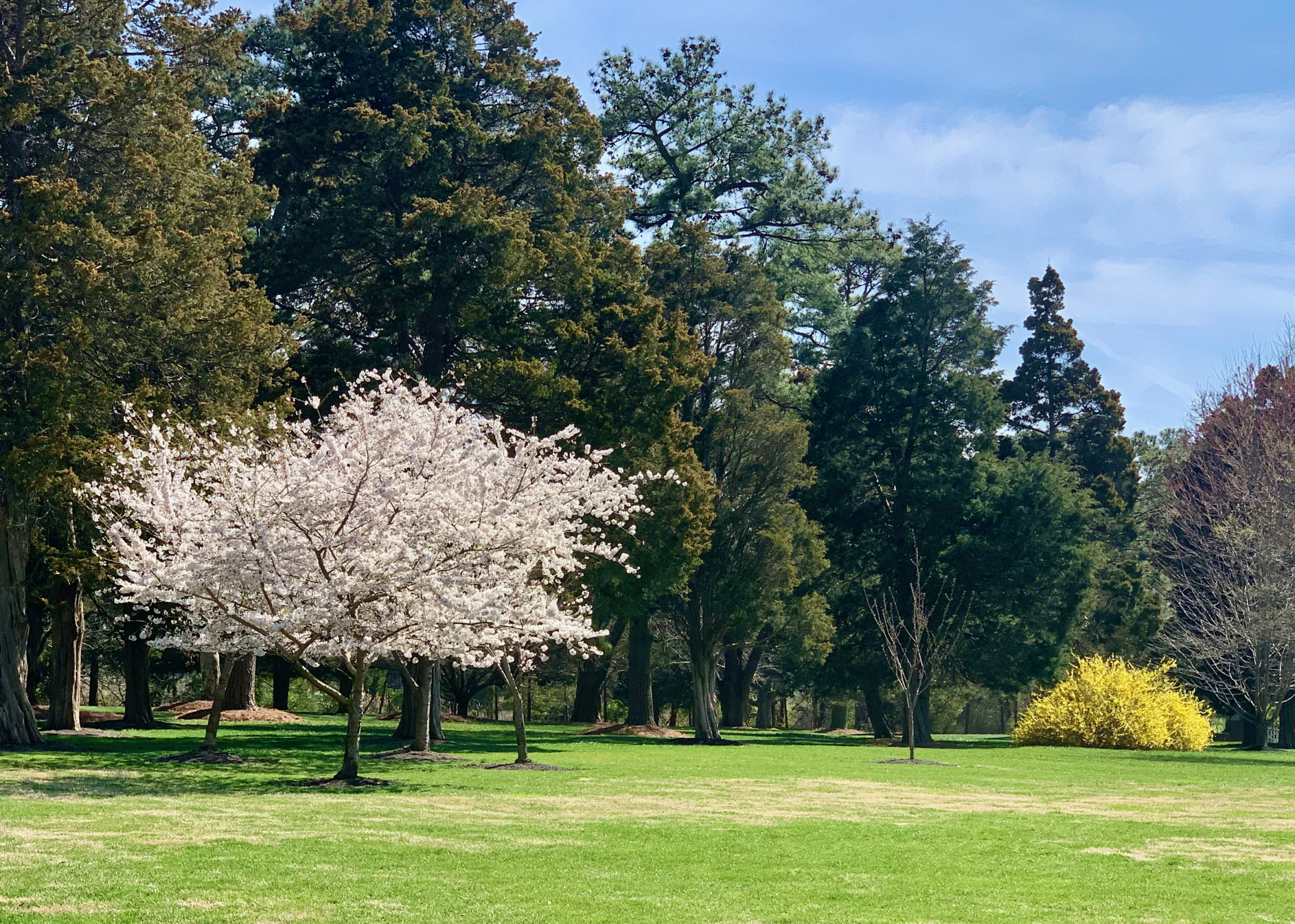
Photo credit: Joanne Leedom-Ackerman
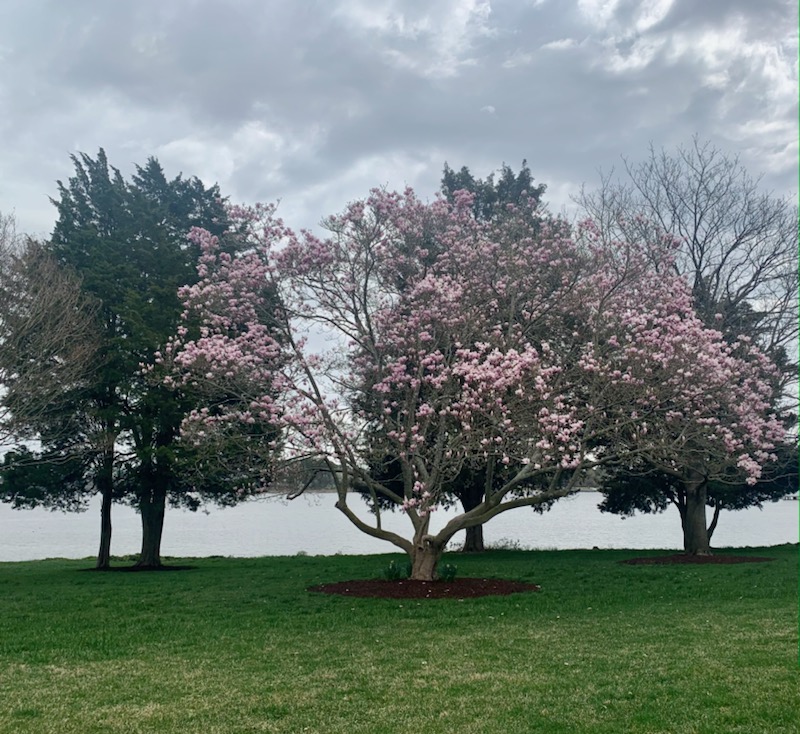
Photo credit: Joanne Leedom-Ackerman

Photo credit: Joanne Leedom-Ackerman
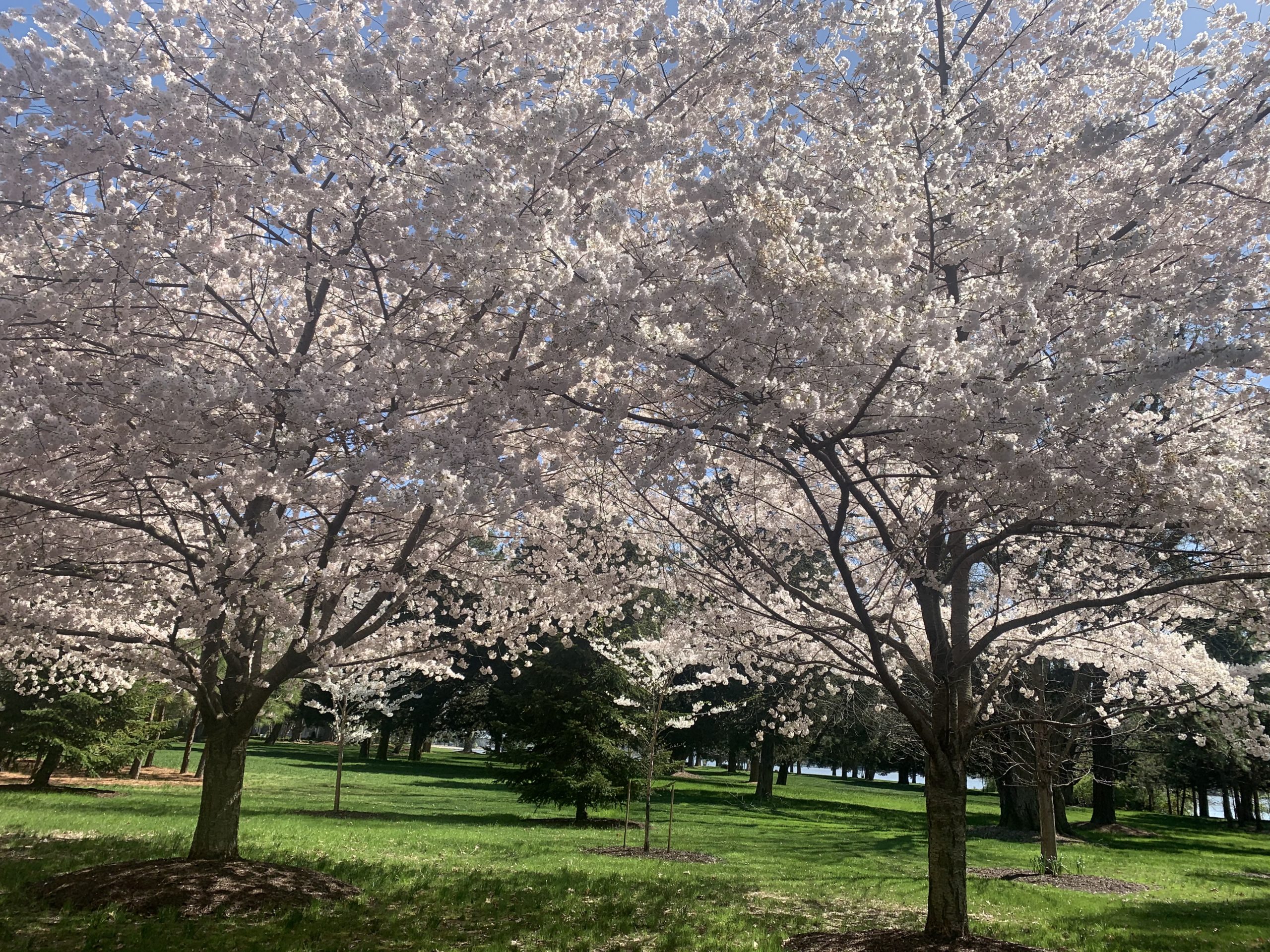
Photo credit: Joanne Leedom-Ackerman
PEN JOURNEY: Introduction—Raising the Curtain: The Arc of History Bending Toward Justice?
PEN International celebrates its Centenary in 2021. I’ve been active in PEN for more than 30 years in various positions and now as an International Vice President Emeritus. With memories stirring and file drawers of documents and correspondence bulging, I am a bit of a walking archive and was asked by PEN International to write down memories. I have done so in 46 PEN Journeys and have been asked to write an introduction to these. Below is the introduction coming last, drawn in part from an earlier blog post of the same title, but not in this PEN Journey sequence.
“In a world where independent voices are increasingly stifled, PEN is not a luxury. It is a necessity.”—Novelist & poet Margaret Atwood, former President of PEN Canada
“…freedom of speech is no mere abstraction. Writers and journalists, who insist upon this freedom, and see in it the world’s best weapon against tyranny and corruption, know also that it is a freedom which must constantly be defended, or it will be lost.”—Novelist Salman Rushdie, PEN member
PEN International was started modestly 100 years ago in 1921 by English writer Catharine Amy Dawson Scott, who, along with fellow writer John Galsworthy and others, conceived if writers from different countries could meet and be welcomed by each other when traveling, a community of fellowship could develop. The time was after World War I. The ability of writers from different countries, languages and cultures to get to know each other had value and might even help reduce tensions and misperceptions, they reasoned, at least among writers of Europe.
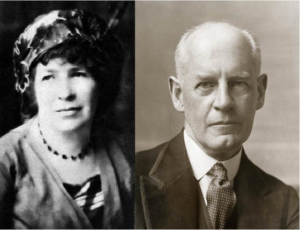
PEN Founder Catherine Amy Dawson Scott and first PEN President John Galsworthy
The idea of PEN [Poets, Essayists & Novelists—later expanding to Poets, Playwrights, Essayists, Editors and Novelists and now including a wide array of Nonfiction writers and Journalists] spread quickly. Clubs developed in France and throughout Europe, and the following year in America, and then in Asia, Africa and South America. John Galsworthy, the popular British novelist, became the first President. A decade later when he won the Nobel Prize for Literature, he donated the prize money to International PEN. Not everyone had grand ambitions for the PEN Club, but writers recognized that ideas fueled wars but also were tools for peace. Galsworthy spoke about the possibilities of a “League of Nations for Men and Women of Letters.”
Members of PEN began to gather at least once a year in 1923 with 11 Centers attending the first meeting. During the 1920’s writers regardless of nationality, culture, language or political opinion came together. As the political temperature rose in Europe, PEN insisted it was an apolitical organization though its role in the politics of nations was soon to be tested and ultimately landed not on a partisan or ideological platform but on a platform of ideals and principles.
At a tumultuous gathering at PEN’s 4th Congress in Berlin in 1926, tensions rose among the assembled writers, and the debate flared over the political versus non-political nature of PEN. Young German writers, including Bertolt Brecht, told Galsworthy that the German PEN Club didn’t represent the true face of German literature and argued that PEN could not ignore politics. Ernst Toller, a Jewish-German playwright, insisted PEN must take a stand.
After the Congress Galsworthy returned to London and holed up in the drawing room of PEN’s founder Catharine Scott where he worked on a formal statement to “serve as a touchstone of PEN action.” This statement included what became the first three articles of the PEN Charter. At the 1927 PEN Congress in Brussels, the document was approved and remains part of PEN’s Charter today, including the idea that “Literature knows no frontiers and must remain common currency among people in spite of political or international upheavals.” The third article of the Charter notes that PEN members “should at all times use what influence they have in favor of good understanding and mutual respect between nations and people and dispel all hatreds and champion the ideal of one humanity living in peace and equality in one world.”
As the voices of National Socialism rose in Germany, PEN’s determination to remain apolitical was challenged though the determination to defend freedom of expression united most members. At the 1932 Congress in Budapest the Assembly of Delegates sent an appeal to all governments concerning religious and political prisoners, and Galsworthy issued a five-point statement, a document that would evolve into the fourth article of PEN’s Charter.
When Galsworthy died in January 1933, H.G. Wells took over as International PEN President. It was a time in which the Nazi Party in Germany was burning in bonfires thousands of books they deemed “impure” and hostile to their ideology. At PEN’s 1933 Congress in Dubrovnik, H.G. Wells and the PEN Assembly launched a campaign against the burning of books by the Nazis and voted to reaffirm the Galsworthy resolution. German PEN, which had failed to protest the book burnings, attended the Congress and tried to keep Ernst Toller, a Jew, from speaking. Some members supported German PEN, but the overwhelming majority reaffirmed the principles they had just voted on the previous day. The German delegation walked out of the Congress and out of PEN and didn’t return until after World War II. Their membership was rescinded. “If German PEN has been reconstructed in accordance with nationalistic ideas, it must be expelled,” the PEN statement read. During World War II PEN continued to defend the freedom of expression for writers, particularly Jewish writers. (Today German PEN is one of PEN’s active centers, especially on issues of freedom of expression and assistance to exiled writers.)
PEN was one of the first nongovernmental organizations and the first human rights organization in the 20th century. PEN’s Charter, which developed over two decades, was one of the documents referred to when the Universal Declaration of Human Rights was drafted at the United Nations after World War II. In 1949 PEN was granted consultative status at the United Nations as “representative of the writers of the world,” and is today the only literary organization with formal consultative status with UNESCO.
In 1961 PEN formed its Writers in Prison Committee to work systematically on individual cases of writers threatened around the world. PEN’s work preceded Amnesty, and the founders of Amnesty came to PEN to learn how it did its work.
Today there are over 150 PEN Centers around the world in more than 100 countries. At PEN writers gather, share literature, discuss and debate ideas within countries and among countries, defend linguistic rights and defend writers around the globe imprisoned, threatened or killed for their writing. The development of a PEN center has often been a precursor to the opening up of a country to more democratic practices and freedoms as was the case in Russia in the late 1980’s and in other countries of the former Soviet Union and in Myanmar where a former prisoner of conscience was instrumental in forming a center there and was its first President. A PEN center is a refuge for writers in many countries.
Unfortunately, the movement towards more democratic forms of government and freedom of expression has been in retreat in the last few years in a number of these same regions, including in Russia and Turkey.
For more than 35 years I have been engaged with PEN, as a member, as the President of one of PEN’s largest centers, PEN Center USA West during the year of the fatwa against Salman Rushdie and Tiananmen Square, as Chair of PEN International’s Writers in Prison Committee (1993-1997), as International Secretary (2004-2007), and continuing as an International Vice President since 1996. I’ve also served on the Board and as Vice President of PEN America (2008-2015). I lived for six years in London, where PEN International is headquartered.
In the run-up to PEN’s Centenary, I was asked if I would write an account of PEN’s history as I’d seen it. I began by posting a blog twice a month, taking on small slices of the history in each narrative. This serial blog of PEN Journeys recounts PEN’s history as I’ve witnessed it as well as history of the period and personal history during those years. The narratives are framed by the times, featuring writers, including the fatwa against Salman Rushdie, the protests in Tiananmen Square, the fall of the Berlin Wall—PEN members or future PEN members were central in all these events—the collapse of the Soviet Union and the formation of PEN Centers there; the opening up of Eastern Europe with its PEN centers; the release of PEN “main case” Václav Havel and his ascendency to the Presidency of Czechoslovakia; the mobilization of Turkish PEN members in opposition to recurring authoritarian governments; PEN’s mission to Cuba; PEN’s protests over killings and impunity in Mexico; protests and gatherings in Hong Kong on behalf of imprisoned Chinese writers; the awarding of the Nobel Prize for Peace to PEN member and Independent Chinese PEN Center founder and President Liu Xiaobo.
PEN and its members have played a pivotal role in defending freedom of expression around the world, in challenging systems that trap citizens, and in at least two instances, in taking on the presidencies of the new democracies that emerged. The PEN Charter, which sets out the principles and ideals, has united the global organization and guided its members who have often been at the forefront or in the wings of important historical moments—celebrated and outspoken writers like Václav Havel, Nadine Gordimer, Margaret Atwood, Orhan Pamuk, Yaşar Kemal, Chinua Achebe, Wole Soyinka, Koigi wa Wamwere, Ngũgĩ wa Thiong’o, Arthur Miller, Anna Politkovskaya, Salman Rushdie, Ken Saro-Wiwa, Carlos Fuentes, Liu Xiaobo. The list is long, and I have had the privilege of interacting with many of them in PEN and also with hundreds of perhaps lesser known, but courageous writers who have stood watch and engaged.
The view of PEN Journey is global though the work is often local. As well as chronicling global events and personal history, PEN Journey recounts the shaping and re-imagining of this sprawling nongovernmental organization, one of the largest in terms of geographic reach. PEN has had to evolve and re-shape itself to serve its 155 autonomous centers. With at least 40,000 members around the globe in more than 100 countries, there are many stories others might tell, but this narrative is a close-up view of a period of time and of the writers who continue to work together in the belief that the world for all its differences and complexities can aspire to and perhaps even achieve “the ideal of one humanity living in peace and equality in one world.”* [*PEN Charter]
Because I tended not to throw away documents over the decades, I have an extensive paper as well as digital archive which I used to refresh memories and document facts. As I dug through files, I came across a speech I’d given which represents for me the aspirations of PEN, the programming it can do and the disappointments it sometimes faces.
At a 2005 conference in Diyarbakir, Turkey, the ancient city in the contentious southeast region, PEN International, Kurdish and Turkish PEN hosted members from around the world. The gathering was the first time Kurdish and Turkish PEN members shared a stage and translated for each other. I had just taken on the position of International Secretary of PEN and joined others at a time of hope that the reduction of violence and tension in Turkey would open a pathway to a more unified society, a direction that unfortunately has reversed.
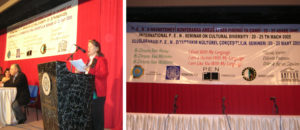
PEN International Secretary Joanne Leedom-Ackerman speaking at PEN International Conference on Cultural Diversity in Diyarbakir, Turkey, March 2005
The talk also references the historic struggle in my own country, the United States, a struggle which is ongoing. “The arc of the moral universe is long, but it bends toward justice,” Martin Luther King is quoted as saying. This is the arc PEN has leaned towards in its first century and is counting on in its second.
From Diyarbakir Conference:
When I was younger, I held slabs of ice together with my bare feet as Eliza leapt to freedom in Harriet Beecher Stowe’s UNCLE TOM’S CABIN.
I went underground for a time and lived in a room with a thousand light bulbs, along with Ralph Ellison’s INVISIBLE MAN.
These novels and others sparked my imagination and created for me a bridge to another world and culture. Growing up in the American South in the 1950’s, I lived in my earliest years in a society where races were separated by law. Even after those laws were overturned, custom held, at least for a time, though change eventually did come.
Literature leapt the barriers, however. While society had set up walls, literature built bridges and opened gates. The books beckoned: “Come, sit a while, listen to this story…can you believe…?” And off the imagination went, identifying with the characters, whatever their race, religion, family, or language.
When I was older, I read Yasar Kemal for the first time. I had visited Turkey once, had read history and newspapers and political commentary, but nothing prepared me for the Turkey I got to know by taking the journey into the cotton fields of the Chukurova plain, along with Long Ali, Old Halil, Memidik and the others, worrying about Long Ali’s indefatigable mother, about Memidik’s struggle against the brutal Muhtar Sefer, and longing with the villagers for the return of Tashbash, the saint.
It has been said that the novel is the most democratic of literary forms because everyone has a voice. I’m not sure where poetry stands in this analysis, but the poet, the dramatist, the artistic writer of every sort must yield in the creative process to the imagination, which, at its best, transcends and at the same time reflects individual experience.
In Diyarbakir/Amed this week we have come together to celebrate cultural diversity and to explore the translation of literature from one language to another, especially to and from smaller languages. The seminars will focus on cultural diversity and dialogue, cultural diversity and peace, and language, and translation and the future. This progression implies that as one communicates and shares and translates, understanding may result, peace may become more likely and the future more secure.
Writing itself is often an act of faith and of hope in the future, certainly for writers who have chosen to be members of PEN. PEN members are as diverse as the globe, connected to each other through PEN’s 141 centers in 99 countries. [Now 155 centers in over 100 countries.] They share a goal reflected in PEN’s charter which affirms that its members use their influence in favor of understanding and mutual respect between nations, that they work to dispel race, class and national hatreds and champion one world living in peace.
We are here today as a result of the work of PEN’s Kurdish and Turkish centers, along with the municipality of Diyarbakir/Amed. This meeting is itself a testament to progress in the region and to the realization of a dream set out three years ago.
I’d like to end with the story of a child born last week. Just before his birth his mother was researching this area. She is first generation Korean who came to the United States when she was four; his father’s family arrived from Germany generations ago. I received the following message from his father: “The Kurd project was a good one! Baby seemed very interested and has decided to make his entrance. Needless to say, Baby’s interest in the Kurds has stopped [my wife’s] progress on research.”
This child will grow up speaking English and probably Korean and will also have a connection to Diyarbakir/Amed because of the stories that will be told about his birth. We all live with the stories told to us by our parents of our beginnings, of what our parents were doing when we decided to enter the world. For this young man, his mother was reading about Diyarbakir/Amed. Who knows, someday this child who already embodies several cultures and histories, may come and see for himself this ancient city, where his mother’s imagination had taken her the day he was born.
It is said Diyarbakir/Amed is a melting pot because of all the peoples who have come through in its long history. I come from a country also known as a melting pot. Being a melting pot has its challenges, but I would argue that the diversity is its major strength. In the days ahead I hope we scale walls, open gates and build bridges of imagination together.
–Joanne Leedom-Ackerman, International Secretary, PEN International, March 2005
PEN Journey 46: Wrapping Up
PEN International celebrates its Centenary in 2021. I’ve been active in PEN for more than 30 years in various positions and now as an International Vice President Emeritus. With memories stirring and file drawers of documents and correspondence bulging, I am a bit of a walking archive and have been asked by PEN International to write down memories. I hope this personal PEN journey will be of interest.
I finished my term as International Secretary of PEN July 2007 at PEN’s 73rd World Congress in Dakar, Senegal. I handed over the responsibility to my longtime colleague Eugene Schoulgin (Norwegian PEN) who would continue to work with the Board, the Executive Director Caroline McCormick, new Treasurer Eric Lax and President Jiří Gruša. We had executed many changes in the last three years, and those who had been involved were continuing and active both in the international leadership and in the PEN centers.
Before the Congress, the staff and PEN members gave me a farewell party at PEN International’s relatively new London headquarters on High Holborn. PEN is about people, and I’d been fortunate to work over many decades with dozens of talented writers who were also competent in organizational work, friends from around the globe who remain friends today.
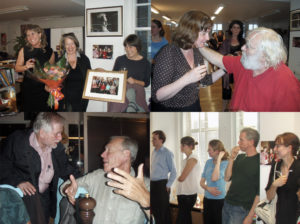
PEN International Farewell gathering in London 2007 with friends and staff, including Caroline McCormick, Joanne Leedom-Ackerman, Jane Spender, Sara Whyatt, Moris Farhi, Peter Firkin, Eugene Schoulgin, Frank Geary, Emily Bromfield, Mitch Albert, Mandy Garner.
As a Vice President, I would continue to work, write appeal letters to governments for the Writers in Prison Committee (WiPC)’s RAN (Rapid Action Network) cases, speak when asked and hold meetings in Washington when asked, but I could return to being a writer. American PEN’s Executive Director Michael Roberts asked me to join American PEN’s board. I demurred and said I needed a break, but he and others urged me so in 2008 I joined the board of PEN America but worked at a far less intense pace for the next six years. When American PEN’s new Executive Director Suzanne Nossel came on, I was asked to extend for an additional year as a Vice President while she oriented to PEN’s international work. It is difficult to step away from PEN though most who are engaged find they must for a time, though not too far away.
As I left the historic Senegal Congress that July 2007, I boarded a plane and flew out over the Atlantic to Italy where I met up with my husband by a lake in one of our favorite spots for a vacation. He had patiently waited those three years as I spent 10-15 days a month on the road. In the first week without PEN’s emails and phone calls and conferences, we talked; I wrote, and I read four books in six days.
Back home I soon realized I needed to join the 21st century as a writer. At PEN we had begun to use some tools of social media in publicizing cases of writers under threat, but I hadn’t engaged personally. I remember sitting with a group of women writers in Washington, DC, many younger than me, who were talking about their websites and blogs and Twitter, and Facebook. In 2007 writers having URLs, Twitter handles, Facebook pages was relatively new. Twitter had only launched the year before, and though blogs had been around for a few years, I had never written one. Facebook seemed an odd medium, also only a few years old. I was of the “private” generation; we were not prone to sharing our activities and feelings on a “social” platform. Those of us who’d been journalists were used to having to condense stories, but never to 140 characters which Twitter demanded. We were in a new communications age, and I needed to understand and at least to put a toe in the water, even if I didn’t jump fully in.
Encouraged by friends and agent, I set up a website. The developer urged me to blog. I didn’t want to blog, I explained. I wanted to write fiction and occasional journalism, but I agreed to post a blog once a month. I have done so for over ten years now. Often when I considered what was worth writing about each month, I found myself reflecting on work with PEN. When asked to write about PEN’s history as I’d witnessed it in anticipation of the Centennial, I reasoned I could post twice a month. That seemed a reasonable way to get through PEN’s history year by year. A serial blog. I have sped up the pace since Covid locked us all into our homes and travel has halted. I have now come to an end of this particular PEN Journey though I will write an introduction. I will also reference links to those blog posts I wrote after 2007 when I continued to work with PEN.
In this final post, I want to review a few areas of PEN International I feel I haven’t explored sufficiently, and I want to give a quick view forward of what and who came next.
In Journey’s 7, 8, 22, 25, 26, I touched on the work of the PEN Emergency Fund. I want to highlight that here. Founded in 1971 by Dutch Writer A. (Bob) den Doolaard who had an active role with PEN International, the PEN Emergency Fund fulfilled a missing link in PEN’s work. Doolaard noted that PEN had no mechanism to grant material aid to writers, especially those under threat who had to flee their countries so he and Dutch PEN set up the aid fund based in the Netherlands, operated under Dutch law. The PEN Emergency Fund gives a one-time grant to writers in dire circumstances and is able to act quickly. Over the years PEN’s Emergency Fund has provided rapid support for writers on every continent, especially those in Eastern Europe during the Communist era and those in the Balkans War in the 1990s and also to persecuted writers in Asia, Africa and Latin America. Every year dozens of writers have been helped with grants that have bridged to longer term answers. The Fund operates in close collaboration with PEN International whose professionals furnish the Fund with information and with the PEN centers and members who have contributed to the Fund. I’ve had the privilege of serving on the PEN Emergency Fund Advisory Board for a number of years.
Prizes: As a literary organization, PEN through its centers awards numbers of literary awards, but only a few literary prizes have been awarded by PEN International. Over the years the idea of a PEN International Prize for Literature or even for Peace has arisen. When I first took on the position of International Secretary, we were approached by a donor offering to give PEN $100,000 for the PEN International Prize for Peace. Well-meaning though the donor was, it quickly became clear that PEN International could not accept. The donor already had his first winner in mind—Bono. We explained that any prize would have to be independently judged with established criteria and nominating processes, and in order for PEN to give an annual prize, we would need to have a substantial financial commitment in an account to assure we could afford the prize each year as well as the cost of the judging and ceremony. We named the figure. The discussions broke off though the donor, I think, did find another way to give his prize though not through PEN.
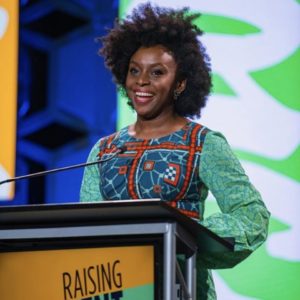
Chimamanda Adichie, PEN David T. Wong International Short Story Prize winner.
The biennial PEN David T. Wong International Short Story Prize did come into being for a time, with a much more modest monetary award for a new writer, open to nominations by all PEN Centers and run by International PEN Foundation’s Gilly Vincent, who later became General Secretary of English PEN. Gilly was a pro and lined up well-qualified writers as judges. The nominations came in from PEN Centers around the world and the winner was often celebrated at PEN’s Congress. One of the first winners for 2002-2003 was a young Nigerian writer Chimamanda Adichie, who won for her short story “One Half of the Yellow Sun,” submitted by her local PEN Center USA West. The story went on to become the celebrated novel by the same name, and she went on to win wide international acclaim for that and other books. The PEN David T. Wong Prize was one of the first international recognition of her as a writer. The judges for 2003 were William Trevor, Michele Roberts and J.M. Coetzee who won the Nobel Prize for Literature later that year. The 2001 prize had been won by Rachel Seifert, who went on to have her first novel short-listed for Booker Prize.
PEN International’s Writers in Prison Committee, the PEN Emergency Fund and Oxfam Novib each year do give the Oxfam Novib/PEN International Free Expression Award to writers who work for freedom of expression in the face of persecution. The award is given to writers and journalists committed to free speech despite the danger to their own lives.
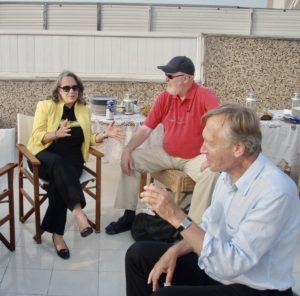
Turkey visit—on the roof with Joanne Leedom-Ackerman, Carl Morten and Eugene Schoulgin (Norwegian PEN)
Many other literary awards and literary festivals are hosted by PEN’s centers around the world. I had the pleasure of visiting a number of those, including in Croatia and in Turkey, hosted by the PEN centers.
There are many aspects of PEN’s work I’ve touched on but not explored fully such as the formation of a PEN center, which technically can occur when 20 reputable writers get together and petition the International office. There is a limit of five centers per country; most countries have fewer, and many countries have only one center. The rationale for additional centers has been to reflect linguistic diversity in a country. For instance, Switzerland has French, German, Italian, and Esperanto centers, or to facilitate participation when the land mass is large. The U.S. used to have two centers, one based in New York and one in Los Angeles, but in the past years, the two centers have merged into one PEN America. In Canada where there is both large land mass and diverse languages PEN has two centers—PEN Canada based in Toronto essentially uses English as the primary language and Quebecois PEN uses French. In some countries there are many, many languages as in India, which also has a large landscape and has the All-India Center in Bombay and the PEN Delhi Center. The rationale depends largely on the ambition and needs of the writers on the ground. Often a center will form branches within a country to provide the services and community for writers.
One document I did not include in an earlier post was the rationale from PEN International Vice President and Nobel Laureate Nadine Gordimer regarding the formation and naming of centers as related to a petition from writers in South Africa to form an Afrikaans Center. I’ve copied it here because it was from one of PEN’s eminent and active members and because it articulated ongoing questions in PEN. Gordimer’s argument did not prevail at the Berlin Congress in 2006 where an Afrikaans Center, not a Pretoria Center, was voted in though the center is based in Pretoria. The reasoning nonetheless is worth considering. The dynamics are ongoing in a number of countries and will likely continue as new centers are added or removed when they grow inactive.
Nadine Gordimer: “Let me make it clear. My objection to the formation of an Afrikaans language PEN club has no significance whatever of any kind of prejudice against my brother and sister South Africans, who are Afrikaans speakers and writers just as I am an English-speaking writer. We have eleven languages in our country. I should have exactly the same objection to the formation of an isiZulu or isiXhosa Club. We cannot have separate-but-equal (shades of apartheid) Clubs for every language, even though most of which have the strong linguistic claim of ante-dating colonially imported English and colonially created Afrikaans. I support a vigorous and linguistically open South African PEN Club, to have local representation in each region, with membership actively pursued among writers in whatever South African languages are theirs. Only such a chapter could have the strength to fulfil our needs…Historic-culturally determined circumstances give us both the necessity to overcome them and the fine opportunity to make full use of them, for our writers and our poly-literature.”
PEN is a breathing, living organization whose main body has been working around the world for a century with new members and centers joining every year as other centers at times have fallen dormant or closed. It is a fellowship of writers, of citizens in civil society holding watch over freedom of expression, linguistic diversity, over literature, and over the imagination and art by which societies flourish. Particular issues and threats change according to the times. PEN declares itself an apolitical organization, yet it is an organization whose central principle and commitment to freedom of expression sets it in the fray of politics since an early warning of a society descending into authoritarianism is the arrest of its writers and the closing down of space for free expression.
Changes in PEN leadership internationally and in centers effect the organization, but the Charter holds the whole body together. The leadership of PEN International used to reside in the President, the International Secretary and the Treasurer as the Executive, which represented the Centers’ Assembly of Delegates between two annual Congresses. The narrative of this PEN Journey has shown the change in the organization and its governance as it has grown and the world in which it operated has altered. PEN International has more than doubled in size over the last three decades to 155 centers in more than 100 countries. It now holds only one Congress a year, and the leadership is a partnership among the President, the International Secretary, the Treasurer, and an elected 7-member Board representing the Centers. Work is facilitated by an Executive Director, a position first hired in 2005, who heads the staff. Depending on the skills and experience and personality of each, the dynamic changes. In my term, I tended to be hands-on as an International Secretary. The President Jiří Gruša with whom I served was engaged as the Director of a Diplomatic Academy and had not been very active in PEN before he took the role of President. I would check in with Jiří before each monthly board meeting, explain the agenda as I saw it, ask if he wanted to add or change any items and if he wanted to attend. Jiří, a former prisoner of conscience, had lived the principles of PEN, understood them and with experience, knowledge and wit was an authentic voice on the international stage. But the day-to-day decision-making and running of the organization he largely left to me and then with the first Executive Director, the Board and the staff.
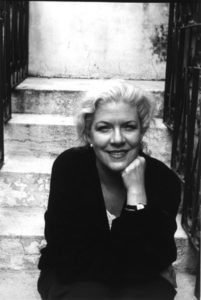
Jennifer Clement, PEN International President 2015-2021
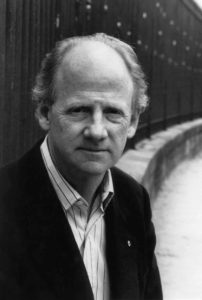
John Ralson Saul, PEN International President 2009-2015
Jiří’s successor John Ralston Saul, former President of PEN Canada, had been a long time PEN member, active in the organization with experience in governing. He took on a much more active role as President, working with International Secretary Eugene Schoulgin (Norwegian PEN) and then International Secretary Hori Takeaki (Japan PEN). John traveled the globe visiting PEN centers and government officials and taking on the issues of his period. After John, PEN elected its first woman President Jennifer Clement, former President of PEN Mexico, who took on the work, along with a special focus on the issues of women globally. She spearheaded, along with PEN’s Women Writers Committee, a Women’s Manifesto and later an Imagination Manifesto and will serve until the end of the Centenary Congress in England in 2021. Kätlin Kaldmaa (Estonian PEN) has served as International Secretary during this time along with longtime PEN member Carles Torner as Executive Director.
Unfortunately over the years as PEN’s website has been upgraded, the content has not always been exported so many of the documents and speeches and records have not followed into the digital universe. The narrative is carried in paper files which overflow in my basement and even more in PEN’s and in the memories of PEN members. My own PEN Journey has been an effort to record some of the history and offer a continuity of narrative during a particular period, through the eyes of one PEN member who has had the privilege and pleasure of standing up close for part of that history. I’ve tried to render the direction and actions. The flaws, the missteps of people, including myself, I’ve also witnessed but have largely left to the side in this narrative. My purpose has not been to be a critic nor a hagiographer, nor a novelist, but a reporter, recording the actions and the journey with a touch of personal memoir.
I will leave this journey by quoting from PEN’s Democracy of the Imagination Manifesto, unanimously passed at the 85th PEN World Congress in Manila, Philippines, October 2019:
The opening of the PEN International Charter states that literature knows no frontiers. This speaks to both real and, no less importantly, those imagined.
PEN stands against notions of national and cultural purity that seek to stop people from listening, reading and learning from each other. One of the most treacherous forms of censorship is self-censorship —where walls are built around the imagination and often raised from fear of attack.
PEN believes the imagination allows writers and readers to transcend their own place in the world to include the ideas of others. This place for some writers has been prison where the imagination has meant interior freedom and, often, survival.
The imagination is the territory of all discovery as ideas come into being as one creates them. It is often in the confluence of contradiction, found in metaphor and simile, where the most profound human experiences reside.
For almost 100 years PEN has stood for freedom of expression. PEN also stands for, and believes in, the freedom of the empathetic imagination while recognizing that many have not been the ones to tell their own stories.
PEN INTERNATIONAL UPHOLDS THE FOLLOWING PRINCIPLES:
- We defend the imagination and believe it to be as free as dreams.
- We recognize and seek to counter the limits faced by so many in telling their own stories.
- We believe the imagination accesses all human experience, and reject restrictions of time, place, or origin.
- We know attempts to control the imagination may lead to xenophobia, hatred and division.
- Literature crosses all real and imagined frontiers and is always in the realm of the universal.
Next and final installment of PEN Journey: Introduction—the Curtain Rises
Links below are to blog posts mentioning PEN after 2007. I was not writing official reports of Congresses or WiPC conferences or other events, but reflecting on PEN’s work, cases and the impact of ideas in my own monthly posts, some of which I used in writing this PEN Journey:
The Journey of Liu Xiaobo: From Dark Horse to Nobel Laureate
March 31, 2020
Arc of History Bending Toward Justice?
March 20, 2019
Gathering in Istanbul for Freedom of Expression
May 23, 2018
Women’s Voices Rising (Women’s Manifesto)
February 28, 2018
Liu Xiaobo: On the Front Line of Ideas
December 7, 2017
Reclaiming Truth In Times Of Propaganda (83rd PEN Congress in Lviv, Ukraine)
September 28, 2017
“Finding Room for Common Ground: No Enemies, No Hatred”
September 8, 2017
In Turkey, a show of solidarity with writers behind bars (PEN Turkey Mission)
February 3, 2017
Power on Loan
January 23, 2017
Hope for Songs Not Prison in 2017
December 27, 2016
Building Literary Bridges: Past and Present (82nd PEN Congress in Ourense, Spain)
October 3, 2016
Call for Help inside Iran’s Evin Prison
May 23, 2016
Spring and Release
March 18, 2016
View on the Bosporus: Rights in Retreat
January 29, 2016
Democracy in Africa: Who Can Chat with Kabila?
November 30, 2015
Life instead of Death…Rationality instead of Ignorance (81st PEN Congress in Quebec, Canada)
October 23, 2015
What Are You Not Reading This Summer? (WiPC Conference in Amsterdam)
June 11, 2015
Times and Tides
November 14, 2014
PEN on the Plains of Central Asia (80th PEN Congress in Bishkek, Kyrgyzstan)
October 7, 2014
Poets, Pardons and Ramadan
August 2, 2014
Women’s Progress: The Power of a Bridge…and a Double Yellow Line
March 12, 2014
Qatar: A Poet in a Desert Cell
November 1, 2013
The Last Colony?
October 15, 2013
Parallel Universe in a Glassed Concert Hall in Iceland (79th PEN Congress in Reykjavik, Iceland)
September 16, 2013
Living In and Beyond History (WiPC Conference in Krakow, Poland)
May 20, 2013
Two Voices Behind the Iron Doors
April 8, 2013
North Korean Writers in a Land of the Rising Sun (78th PEN Congress in Gyeongju, South Korea)
September 15, 2012
facebook or not?
June 28, 2012
Voices Around the World
January 30, 2012
Bridge Over the Bosporus: Citizenship on the Rise (77th PEN Congress, Belgrade, Serbia mentioned)
September 28, 2011
Tourist in Beijing: A Dance with the Censor
July 29, 2011
Ice Flows: Freedom of Expression
January 29, 2011
In the Woods: On History’s Doorstep
December 22, 2010
Full Moon Over Tokyo (76th PEN Congress in Tokyo, Japan)
September 30, 2010
Introducing Isabel Allende
May 21, 2010
“Because Writers Speak Their Minds”–2
March 31, 2010
“Because Writers Speak Their Minds”
February 24, 2010
Haitian Farewell
January 18, 2010
Yellow Geranium in a Tin Can
October 27, 2009
China at 60–Fate of Liu Xiaobo?
September 30, 2009
A Time of Hopening (WiPC Conference in Oslo, Norway)
June 24, 2009
“There Will Still Be Light” *
April 30, 2009
The Intensifying Battle Over Internet Freedom
February 24, 2009
Charter 08: Decade of the Citizen
December 30, 2008
China from the 22nd Floor (Hong Kong Conference)
May 28, 2008
OLYMPIC RELAY– A POEM ON THE MOVE
April 21, 2008
Words That Matter
March 4, 2008
PEN Journey 44: World Journey Beginning at Home
PEN International celebrates its Centenary in 2021. I’ve been active in PEN for more than 30 years in various positions and now as an International Vice President Emeritus. With memories stirring and file drawers of documents and correspondence bulging, I am a bit of a walking archive and have been asked by PEN International to write down memories. I hope this personal PEN journey will be of interest.
After PEN’s Asia and Pacific Regional meeting in Hong Kong February 2007, I flew to Tokyo for a two-day visit with members of Japanese PEN, along with International PEN board members Eric Lax and Takeaki Hori. We met with Japan PEN’s board, and in the evening I shared a stage and conversation with Mr. Hisashi Inoue, chairman of Japan PEN and one of the country’s well-known playwrights. Part of our discussions explored the possibility of Japanese PEN hosting an International PEN Congress. Only once before, in 1984, was the World Congress held in Japan.
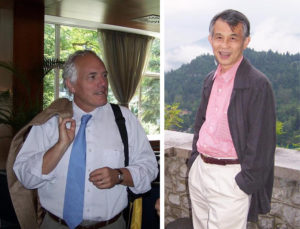
International PEN Board members Eric Lax and Takeaki Hori
Housed in an impressive building in Tokyo, Japan PEN was one of International PEN’s largest and most active centers with one of the more interesting histories. Founded in November 1935 on the eve of a tumultuous period in world affairs, Japan PEN members committed to the PEN ideals of freedom of expression and “one humanity living in peace in one world.” By 1935 Japan had left the League of Nations in the wake of the Manchurian Incident and was moving towards international isolation, a direction that concerned liberal literary figures and diplomats. In this climate International PEN in London, with support from leading novelists, poets and foreign literary figures, reached out and requested that writers in Japan form a PEN Club. Japan’s well-known novelist Toson Shimazaki served as the founding president. As suppression of free speech increased as war in the Pacific broke out and the Second World War advanced, Japanese PEN stayed in limited contact with International PEN in London and provided a unique portal to the world for its writers and citizens during that time.
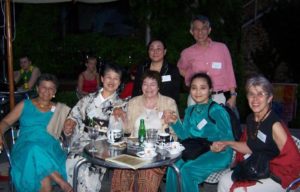
Japan PEN members at PEN’s 71st Congress in Bled: Furukawa Taeko, Miyakawa Keiko and Yonehara Mari, along with Fawzia Assad (Suisse Romand PEN) Huguette de Broqueville (French PEN) and Celia Balcazar (Colombian PEN) and Takeaki Hori (PEN International Board & Japan PEN)
Personally, I remember the hospitality of Japan PEN members who took me out on the Ginza to toast my birthday as I rounded a decade. I had explained that I needed to fly home that evening, a day early to share the birthday. I still remember the glasses of pink champagne flowing up and down the Ginza, (though I was drinking sparkling water), as my own new decade was heralded, then flying halfway around the world and arriving in time to have another dinner that same night with my husband.
Three years later, in September 2010 Japan PEN hosted the 76th PEN International World Congress in Tokyo, one of PEN’s largest with representatives from 90 centers around the theme “The Environment and Literature—What Can Words Do?”
******
World War II, D-Day, the fall of the Berlin Wall—all were global events in the 20th Century which framed the history that followed for much of the world and stirred both despair and optimism among politicians and citizens and inspired stories and poetry among writers. PEN’s Peace Committee conference in March 2007 settled on three themes: Languages under Threat—Dying Cultures, Reading as a Social Event, and Post-Totalitarian Resistance.
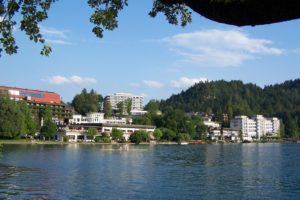
Bled, Slovenia, setting of PEN International Peace Committee meeting, March 2007
In my files I found the keynote paper “Post-Totalitarian Resistance” by Peace Committee Chair Edvard Kovač, a portion of which I quote here. It provokes thought with the kind of open-ended questions that don’t necessarily have answers but can lead to discovery. Contents of PEN’s forums are among its important legacy.
After the fall of the Berlin Wall there was a great deal of hope that the era of totalitarian ideologies was over forever. Fukuyama and others even talked about the end of history. But ideological thinking has settled like sediment in people’s minds and it still persistently, albeit imperceptibly, affects our thoughts, conclusions and decisions.
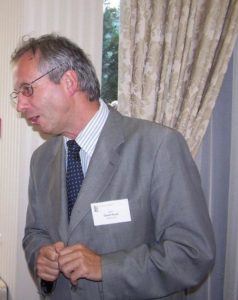
Edvard Kovač, Chair PEN’s International’s Peace Committee, 2007
The role of the writer is to be vigilant and to recognize a transformation in the rigid thinking that until only recently stifled his creativity and pushed him towards dissidence. Perhaps he will notice that the ‘class struggle’ has been transformed and that out of this transformation the germs of new ideologies are emerging: to the legitimate striving for the creation of a Palestinian state a new anti-Semitism has been attached and alongside the right to the existence of the state of Israel the humane protection of civilian population has simply been forgotten. Recognition of and admiration for Third World culture is fortified by anti-Europeanism while a critical attitude to technological civilization confirms the ethno-centrism of the young states. The spread of democracy is confused with domination of the world market and a critical attitude to processes of globalization is interlaced with anti-Americanism. An emphasis on the need for virility conceals a kind of anti-feminism, while the emancipation of women facilitates a new uniformity. The elements of old totalitarianism which have transformed into foundations of new ideologies are harder to unmask as they appear in the name of anti-ideological principles…
…the demise of totalitarianism does not necessarily equate with critical thinking. The defeat of ideologies only creates the possibility of enlightened thinking. In fact, the desire for quick and simple solutions is even greater in post-totalitarian states. Hence the unbearable lightness of new populisms. If in the past it was politics that fully led the economy, it has now come to a complete turnaround so that the economy is stifling political initiative and economic success is putting a noose around the neck of culture and artistic creativity that cannot be marketed…
How can a writer establish a reasonable dialogue when faced with the new fundamentalisms of all colors and creeds?…this new humanism of the pen, which would once again oppose the violence of the sword (which is also the idea behind PEN’s logo) must create new means of expression. So what is the writer’s language in this new struggle?” —Edvard Kovač, Slovene PEN
There are no simple answers to these observations, but the questions continue to be worth asking in PEN’s forums.
Somewhere in the world during most weeks, if not most days, one of PEN’s 150 centers is holding an event or conference and is at work on behalf of writers. For me, the conferences and literary festivals in 2007 included a visit, along with PEN International Executive Director Caroline McCormick to New York to PEN America’s impressive World Voices Festival with over 100 writers from around the globe. The annual World Voices Festival anticipated and informed the launch of PEN International’s own Free the Word! Festival in London in 2008 and in subsequent countries thereafter.
One of the privileges of serving as International Secretary was visiting centers and members around the world though I couldn’t accept all invitations. I regret missing the celebration of PEN’s Global Library launched by members of Slovak PEN. The Global Library gathered books from PEN members worldwide in multiple languages. I missed a conference on freedom of expression and Kurdish literature and a conference in Georgia arranged by Three Seas Writers and Translators’ and the Georgia Writers Union under the auspices of UNESCO, a frequent funder for PEN gatherings. Other International PEN board members and Vice Presidents often did attend as well as the PEN members.
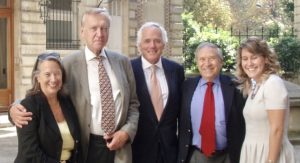
Visit to UNESCO headquarters. L to R: Joanne Leedom-Ackerman (PEN International Secretary), Eugene Schoulgin (PEN International Board Member), Eric Lax (PEN International Board Member), Homero Aridjis (Mexican Ambassador to UNESCO & former PEN International President), Caroline McCormick (PEN International Executive Director)
Following the World Voices Festival, Caroline and I, along with International Board members Eugene Schoulgin and Eric Lax, met with UNESCO officials in Paris where former International PEN President Homero Aridjis was now Mexico’s Ambassador to UNESCO. The meetings at UNESCO headquarters and with Homero and the US representative to UNESCO were in anticipation of the renewal of PEN’s formal consultative relationship and “Framework Agreement” with UNESCO. In the prior agreement PEN had also been recognized as a Category II organization with ECOSOC (United Nations Economic and Social Council.) These agreements were renewed every six years; the relationship continues to this day.
One country in which PEN and UNESCO were active, but not always with compatible agendas was Turkey. Because UNESCO depended on governments for its funding and PEN frequently criticized the Turkish government for its suppression of free expression, we sometimes walked separate paths in Turkey.
The month after the UNESCO meetings I participated in Istanbul in the Forum on Freedom of Expression, sponsored by that independent organization. Along with dozens of PEN members, I had attended the first Forum on Freedom of Expression in Istanbul in 1997 as Chair of PEN International’s Writers in Prison Committee, and I and other PEN members had spoken at many of the biennial meetings since.
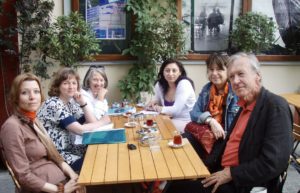
Meeting before Forum on Freedom of Expression in Istanbul. L to R: Novelist Elif Shafak (PEN case at the time), Sara Whyatt (PEN International Writers in Prison Committee Program Director), Joanne Leedom-Ackerman (PEN International Secretary), friend, Journalist Nadire Mater (PEN main case), Eugene Schoulgin (PEN International Board Member)
In Ankara, I was hosted at the International Ankara Short Story Days Festival, an initiative which also aspired to get UNESCO support to establish a World Short Story Day. Professor Aysu Erden, Turkish PEN’s international secretary and editorial board member of PEN International’s Diversity Project of the Translation and Linguistic Rights Committee (TLRC) was a champion of the effort. That year the theme was “Preservation of Multiculturalism and Diversity,” a UNESCO focus as well.
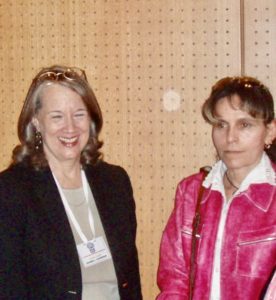
Joanne Leedom-Ackerman with Aysu Erden, Turkish PEN board member
In a visit to a large school in Ankara and at a program later that evening, we considered how people and societies bridged differences, how consciousness could change in societies and how literature and stories could play a role. I reflected on the changes during the civil rights movement in the U.S. where I had grown up.
“Many of the stories in my short story collection No Marble Angels are set in the late 1950’s and 60’s in the American South during a time of upheaval in the United States. It was a time when blacks and whites peered at each other over the barriers of history and laws which separated them,” I told both audiences, aware that in Turkey, Kurds often faced discrimination as did Armenians, and the writers who wrote about this discrimination could face time in prison.
That schism is still one of the U.S.’s major national dramas though much distance has been travelled in my lifetime. The abolishment of the laws of segregation and the opening up of opportunity has strengthened U.S. society immeasurably, though there is still a journey to take. It is the closing of the distance between people which has interested me as a writer over the years, whether the distance arises from race or gender or age or simply from the self looking out into the world and seeing an image other than its own.
One of the books that had an impact on me growing up was written by another Texan who literally changed the color of his skin in an attempt to get inside the experience of being black in the South during the time when racial covenants dictated where a person could get a drink of water or sit on the bus or go to the bathroom. John Howard Griffin’s Black Like Me came out when I was a school girl. I don’t remember if I read the book then, or a few years later, but when I read it, the dilemma it posed both shaped and mirrored feelings and questions which were growing in me. The questions were really questions of the human condition: Who am I? And who is that person who is not me and different from me?
For a time I considered these as political questions. I spent much of my youth debating issues of civil rights with family and friends. I located the antagonist outside myself, as some monolith, which for lack of a better description had a handle at the top, a wing on the west and several large rivers running through it. And so I left the state of Texas.
As long as the antagonist was outside in politics, society, and culture, I could separate myself from it. As a journalist in the Northeastern part of the United States, I gathered facts and statistics and social opinions and searched for answers to issues. I wrote articles on segregation and desegregation and integration of institutions in the United States. All the while other stories were building in me that I wanted to write, stories that couldn’t so easily be contained in facts and figures and social theory. I began a journey of my own, not by changing the color of my skin, but by considering experience from the inside out. I began writing fiction—short stories and novels. My writing changed from the journalistic to the consideration of the individual heart, from the objective to the subjective.
What continues to interest me in writing are the shadowy places in the individual heart, those places which keep us from seeing one another. Sometimes the distance between self and other is measured in terms of race, sometimes age, sometimes gender, sometimes culture, sometimes religion, sometimes country of origin. I’m interested in the way people go about making bridges or tearing them down.
To the extent a multicultural society recognizes the human spirit that connects its citizens at the same time valuing the cultural differences among them, the society progresses. Multiculturalism is at the heart of International PEN, which has 144 centers in 101 countries. PEN is committed to dispelling race, class and national hatreds in an effort to champion one humanity living in peace; PEN is also committed to freedom of expression.
Because we are writers, literature is our means of expression. Literature has an important role in bridging cultures. The first glimpse we have of another culture is often through reading. We let our imagination take an author’s images, scenes, and characters and bind them to our own lives. We draw from books wisdom and experience.
Many of the characters in my short stories are struggling to expand who they are and come out of themselves, to reach across to another person, to enter and occupy that space at the back of the house, that dark, vine-covered, musty room where “the other” lives. Entering that space, one raises the shades and opens the doors and windows and glimpses in the face of the other, a reflection of one’s self.
Next Installment: PEN Journey 45: Dakar—The Word, the World and Human Values
PEN Journey 42: From Copenhagen to Dakar to Guadalajara and in Between
PEN International celebrates its Centenary in 2021. I’ve been active in PEN for more than 30 years in various positions and now as an International Vice President Emeritus. With memories stirring and file drawers of documents and correspondence bulging, I am a bit of a walking archive and have been asked by PEN International to write down memories. I hope this personal PEN journey will be of interest.
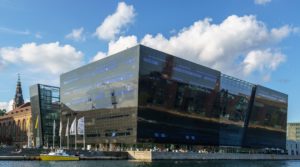
Royal Danish Library extension in Copenhagen, dubbed the Black Diamond (Photo by © User:Colin / Wikimedia Commons, CC BY-SA 4.0, https://commons.wikimedia.org/w/index.php?curid=66870365)
Arriving in Copenhagen in early September 2006, I walked along the waterfront, dodged bicycles and shared coffee and conversation with longtime colleague Niels Barfoed, former President of Danish PEN who had briefly succeeded me as Writers in Prison Chair and was an eminent Danish journalist and writer. We met at the new waterfront extension of the Royal Danish Library, dubbed the Black Diamond because of its imposing black granite cladding and irregular angles. Niels would be moderating a public meeting on Freedom of Expression in the Arab World.
PEN International’s base was broadening in the Middle East and in Africa, both regions where active centers for writers were fragile, but potentially important havens. Danish PEN was hosting a conference with a dozen writers from the Arab-speaking world, including representatives from Egypt, Morocco, Jordan, Palestinian PEN, Tunisia, Lebanon and invited writers from Iraq and the United Arab Emirates (UAE), along with Danish and Norwegian PEN members and International PEN represented by Centers Coordinator Peter Firkin and myself.
The Copenhagen conference had been initiated in part as a response to the Danish cartoons controversy earlier in the year and also as an opportunity to develop PEN’s work and presence in the Middle East. PEN had a few centers in the region and interest from writers in Jordan, Iraq, Kuwait, and Bahrain to form additional PEN centers and a desire to revive PEN Lebanon. Developing PEN centers in these areas was challenging given the politics and conflicts on the ground.
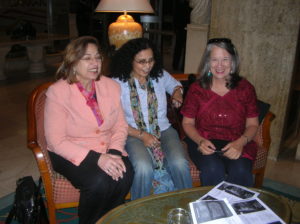
Ekbal Baraka, President Egyptian PEN (left) and Joanne Leedom-Ackerman, PEN International Secretary (right) meeting in Cairo, 2006
The Copenhagen meetings explored common fields of interest among Western and Arab writers, networking among Arab writers and ways in which PEN could assist. Women writers in the Arab world had particular challenges, a discussion led by Egyptian PEN President Ekbal Baraka. Ekbal later became Chair of PEN International’s Women Writers Committee. Algerian PEN and International PEN board member Mohamed Magani offered to host a subsequent meeting in Algiers the following fall, along with a conference on translation. A public event in the evening showcased the work of the visiting writers.
On the final day the public conference on Freedom of Expression in the Arab World moderated by Niels included discussions on Networking in the Cause for Freedom of Media and Opinion and featured renowned Tunisian journalist and human rights campaigner Sihem Bensedrine. A discussion on Access to Information: Implications to Development was addressed by Jordanian journalist Daoud Kuttab and Danish columnist and Danish PEN President Anders Jerichow. Lebanese Writer Elias Khoury and Egyptian journalist and commentator Mona Eltahawy concluded the conference in a discussion on Publication and Powerplay in the Middle East.
The days together resulted in a loose network of these and other Arab writers and eventually led to the opening of additional PEN centers and work in the Middle East. PEN currently has Bahrain, Iraq, Israel, Jordan, Lebanon, and Palestinian centers as well as the Egyptian, Algerian and Moroccan Centers.
******

Anna Politkovskaya, Russian journalist assassinated, 2006
A few weeks after the Copenhagen conference, my phone rang early on Saturday morning October 7, 2006 at my home in Washington, DC. Sara Whyatt, PEN International’s Writers in Prison Committee Director, was on the line. She called to tell me that Anna Politkovskaya, Russian journalist, PEN member who’d visited PEN Congresses and meetings, who’d worked for years reporting on Chechnya—had been assassinated. The report was that Anna had been shot that morning in the elevator of her apartment building in Moscow.
For seven years Anna had been one of the few reporting on the war in Chechnya despite intimidation and violence. She had been arrested by the Russian military and suffered a mock execution; she’d been poisoned while flying from Moscow to the Beslan school hostage crisis and had to turn back to get medical treatment. She had survived many dangerous encounters. But now she had been killed.
The killing of Anna Politkovskaya swept through the news media around the world as well as through the PEN world. We were stunned and deeply saddened and then began our protests and calls for investigation, along with human rights organizations worldwide. PEN honored Anna at its subsequent Congress and meetings and annually held an Anna Politkovskaya lecture on the anniversary of her death to commemorate her fortitude and inspiration.
The work in PEN was a helix of hope and pain and sorrow and hope again.
******
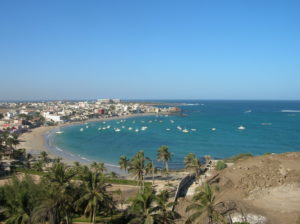
Dakar, Senegal, venue for PEN’s upcoming 73rd World International Congress in 2007
At the end of November Senegalese PEN hosted a meeting with African centers engaged with the planning of PEN’s 73rd Congress to be held in 2007 in Dakar. The meeting included representatives from Egypt, Morocco, Algeria, Guinea, Senegal, Nigeria, Sierra Leone, and Ghana. It was standard practice for International PEN to visit the site of an upcoming Congress to review logistics and budgets and programs in advance, to assist and assure the Congress ran smoothly. The 73rd Congress in Dakar would be only the second time a PEN Center in Africa had hosted a World Congress. In addition to reviewing the facilities at the Meridien hotel by the ocean, the delegation met with the Minister at the Ministry of Culture and Classified Historical Heritage which was supporting the Congress.
At that meeting and throughout the Congress to come, I offered the sentiment I had drafted and memorized in French and still endorse:
“Il n’y a que quelques autres pays dans le monde ou l’ecrivain est plus honore qu’au Senegal.
“There are few countries in the world where the writer is more honored than in Senegal.”
Because Senegal’s founding President Leopold Senghor had been a poet and writer of global distinction, also a Vice President of International PEN, Senegal celebrated literature. “As a national leader, Leopold Senghor left a rich heritage and respect for African culture and writing which we hope to honor by International PEN’s upcoming Congress in Dakar,” I told the Minister.
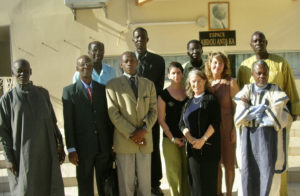
Karen Efford, PEN Program Officer, Joanne Leedom-Ackerman, PEN International Secretary, and Caroline McCormick, PEN International Executive Director, meeting in Dakar. Senegalese PEN members organizing PEN 73rd World Congress included Abdoulaye Racine Senghor, Abdoulaye Fode Ndione, Mamadou Diop Traoré, Seydi Sow, Mbaye Gana Kehe, Alioune Badara Beye, Elie-Charles Moreau, Silcarneyni Gueye, Aissatou Diop
Senegalese PEN hosted our working meetings at its headquarters where the focus was also on regional development. International PEN’s Executive Director Caroline McCormick and Program Officer Karen Efford led a “mapping” or gathering of information with each center on its activities and membership and needs in order to determine how PEN International could assist, especially with fundraising. The Centers also participated in the discussions on the programs and facilities for the July 2007 Congress.
After hours of meetings, we all went to dinner together at the local restaurant. I don’t remember the food, except there were generous plates family style. I remember the atmosphere—the bright blues and reds and yellows in the restaurant, the music, and the laughter after a long day concentrating on budgets, logistics, and translations. The planning meetings were work but also fun with friendships among the writers from the PAN Africa Network with whom I had met on numerous occasions over the past few years.
In my three years as International Secretary, I was impressed by the care of all the host centers for Congresses. The Congress in Senegal would be my last as an officer of International PEN, except for the privilege of attending as a Vice President in the years to come. The operational work and responsibility would be passed on. I had determined not to stand for a second term. I had other responsibilities that had been put on hold for three years, and I had learned it was better to leave a position when everyone wanted you to stay, than to stay too long when people were waiting for you to leave. I needed to return to being a writer and to my family and to the other organizational work I did. So Senegal would be a farewell of sorts for me. It would prove to be a grand occasion, but I am getting ahead of myself…
******
“Does Freedom of Expression Have a Limit?” “Hospitality without Borders.”—those two panels I participated in and moderated at the 2006 Gothenburg Book Fair, Scandinavia’s largest. The International Publishers Association (IPA) and International PEN had been collaborators in selecting the Fair’s theme of Freedom of Expression that year. The Book Fair reflected the Freedom of Expression theme in many of its over 2000 events for the 100,000 visitors. PEN and IPA, along with the International Cities of Refuge Network (ICORN), had an exhibit with a stage where events and seminars took place.
For me, it was a special pleasure to attend the Fair in Sweden where my mentor and predecessor as Writers in Prison Chair Thomas von Vegesack was a respected and now retired publisher. Thomas attended the Book Fair. I noted in my remarks that it was from Thomas I’d learned the difference between having principles and simply talking about principles. Thomas didn’t like “principles,” which meant he didn’t like paradigms of abstractions. Our role—PEN’s role—was pragmatic. It was to help writers in trouble, to be in touch with them and their families so the isolation of imprisonment was broken, to give them support and most of all to figure out where the access was within our PEN centers and within our larger freedom of expression community to pressure governments to spring open the prison doors and also to get protection for writers under death threats. (It was two weeks after the Gothenburg Book Fair that Anna Politkovskaya was assassinated.)
The world had changed since the days Thomas and I had been chair of WiPC. In the late 1980’s and early 1990’s we had all been hopeful that the fall of the Berlin Wall and the fall of the totalitarian governments would ease the situation for writers worldwide, but there were now as many writers as ever under threat. PEN’s casebook listed over 1000. There were more non-state actors. There was also a level of global communication that was only budding in 1993 when Thomas handed over the reins to me. There were new bad guys, and many of the good guys were not as good as they once were. We were in a world where freedom of expression was no longer accepted as an unqualified value.
Yet “the world is still changed by ideas and books, and writers who write them are still the main vehicle for ideas,” I concluded my opening talk.
On the panel “Does Freedom of Expression Have a Limit?” we had no easy answer. We asked if there was a personal and public responsibility to tell the truth, or at least not to lie. And who determined a lie? The responsibility of the writer was to try to find and tell the truth even if truth seemed relative at times. The question arose, who sets the limits on freedom of expression? The State? Society at large? What were those limits and penalties and were they set by fear of attack or violence or censorship?
It was generally agreed that calls for violence such as the killing of another human being set a limit on freedom of expression, especially when this call came from someone who had the power of the state to exercise the threat. An example was the fatwa on Salman Rushdie. The limit should not be on Rushdie but on the Ayatollah and the state that issued the fatwa calling for his death.
Hate speech had a limit when it urged violence as in the case of Radio Rwanda during the genocide against the Tutsis or certain broadcasts during the Balkans wars.
PEN’s Charter contained the elements of the dialectic upon which free societies were based, both the respect for other cultures in an effort to dispel race, class and national hatreds and also a commitment to protect the free and unhampered transmission of thought and ideas.
“And since freedom implies voluntary restraint, members pledge themselves to oppose such evils of a free press as mendacious publication, deliberate falsehood and distortion of facts for political and personal ends,” the PEN Charter concluded.
Democracies flourish only when an exchange of competing, even contradictory, ideas can occur in a battle of ideas, the panel concluded.
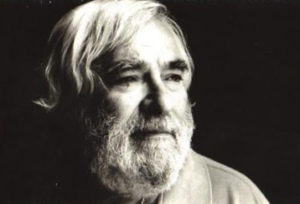
Novelist Moris Farhi, former WiPC Chair and PEN Vice President/English PEN
The panel “Hospitality Without Borders,” co-sponsored by ICORN, featured Orhan Pamuk, the Turkish novelist who a month later won the Nobel Prize for Literature, and Moris Farhi, also Turkish but long resident in the UK and member of English PEN. Moris had followed me as Chair of PEN’s Writers in Prison Committee after Niels Barfoed’s brief tenure.
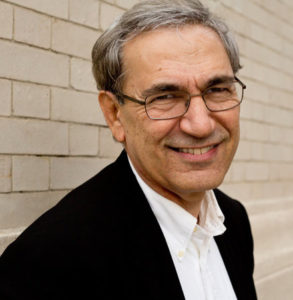
Novelist Orhan Pamuk (Photo credit: © Elena Seibert)
The previous year, Orhan had faced charges of “insulting the Turkish Army and Turkishness” because of his statement in a Swiss newspaper regarding the Armenian genocide and massacre of a million Armenians and 30,000 Kurds in Anatolia in 1919. On the panel Orhan noted how valuable it was for a persecuted writer in his home to know about the possibility of finding refuge in a safe city, even if he didn’t take advantage or was unable to leave his present situation at the time.
Moris, who’d also chaired English PEN’s Writers in Prison Committee, talked about the challenges facing the host city and the community receiving a guest writer. He focused on how to make sure the writer didn’t just disappear from the literary community and the need to focus on translation and publishing strategies for the writer. It was important to help the writer establish new foundations and relationships in a new city.
I recalled the situation of Bangladeshi novelist Taslima Nasreen who had faced death threats and was given asylum in Sweden and awarded the Tucholsky prize. Taslima Nasreen’s was one of the more dramatic cases in my PEN history as she was whisked out of Dhaka in the dark of night and brought to Stockholm by Swedish PEN. That had turned out to be just one stop on a difficult journey into exile.
******
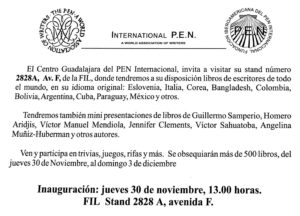 At the end of 2006, PEN Guadalajara, San Miguel PEN and the Ibero-American Foundation of PEN established a presence for the first time at the 20th Guadalajara Book Fair. The Guadalajara Book Fair was considered the most important publishing event in the Spanish-speaking world, hosting 450,000 visitors and 15,000 book professionals from over 40 countries. Officials of the Guadalajara Book Fair were eager to have a relationship with PEN in order to collaborate and “create and guarantee space in which literature of different languages cohabit supporting the freedom of opinion with words as vehicle of understanding between different nations and cultures,” according to the Coordinator of the Festival events.
At the end of 2006, PEN Guadalajara, San Miguel PEN and the Ibero-American Foundation of PEN established a presence for the first time at the 20th Guadalajara Book Fair. The Guadalajara Book Fair was considered the most important publishing event in the Spanish-speaking world, hosting 450,000 visitors and 15,000 book professionals from over 40 countries. Officials of the Guadalajara Book Fair were eager to have a relationship with PEN in order to collaborate and “create and guarantee space in which literature of different languages cohabit supporting the freedom of opinion with words as vehicle of understanding between different nations and cultures,” according to the Coordinator of the Festival events.
International PEN aspired to have a more robust presence at book fairs globally, but did not yet have the budget or staff. However International PEN supported centers’ activities at book fairs such as at Frankfurt, Gothenburg, and now Guadalajara. I visited the Guadalajara Book Fair as part of this initiative.
PEN Guadalajara and San Miguel and the Ibero-American Foundation of PEN hosted a stand at the Book Fair and offered readings and presentations of books and displayed hundreds of books from PEN members and PEN centers around the globe. On the Book Fair’s program two eminent PEN members, Vice President Nadine Gordimer and former PEN International President Mario Vargas Llosa were featured. Nadine Gordimer participated in a Literary Salon and later had dinner with PEN members. I have no notes from that dinner, but I have fond memories of the outside restaurant in the evening and the hospitality of Guadalajara and San Miguel PEN and the graciousness of Nadine Gordimer.
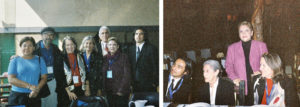
Photo Left: Meeting at 2006 Guadalajara Book Fair: María Elena Ruiz Cruz, Víctor Sahuatoba, Joanne Leedom-Ackerman, Lucina Kathmann, Luis Mario Cerda, Martha Cerda, Moisés Zamora. Photo Right: At dinner: Moisés Zamora, Nadine Gordimer, Martha Cerda, and Joanne Leedom-Ackerman
Martha Cerda, President of Guadalajara PEN, PEN Vice President Lucina Kathmann of San Miguel PEN and I met with Book Fair officials and assured that PEN would have a presence and partnership with the Guadalajara Book Fair in the years to come through its Latin American centers.
The visit to Guadalajara also offered the opportunity to meet with members from several Latin American PEN centers in a preliminary focus on the region and on the “mapping” International PEN would undertake of resources, programs and needs of the Latin American PEN centers before the 2008 Congress in the region.
******
At the end of 2006 PEN’s long time staff member Jane Spender retired. Jane had worked with Peter Day on the PEN International Magazine as an editor; she’d been administrative assistant to the Administrative Secretary Elizabeth Paterson and then became the Administrative Director when Elisabeth retired. She had taken on the role of International PEN Program Director when PEN hired an Executive Director. We all relied on Jane’s intelligence, good humor and patience. Jane and I had spent hours—too many hours we both agreed—toiling over just the right word on several documents. I was especially going to miss working with Jane; I have kept the friendship to this day. To celebrate the past and send her off with good wishes for the future, we surprised her by giving her a bicycle which I rode across the office and presented to her. Friends from International PEN and English PEN all gathered in PEN’s new offices on High Holborn. PEN is about people, and Jane was one of the stalwart ones.

Jane Spender retirement party at PEN offices, 2006. L to R: Sara Whyatt, Joanne Leedom-Ackerman, Jane Spender, Caroline McCormack, Karen Efford, Terry Carlbom, Ursula Setzer, Josephine Pullen-Thompson, Francis King, Peter Day, Gilly Vincent, Jane Spender, Nawal, Karen Efford, Elizabeth Paterson
Next Installment: PEN Journey 43: Turkey and China—One Step Forward, Two Steps Backward
PEN Journey 41: Berlin—Writing in a World Without Peace
PEN International celebrates its Centenary in 2021. I’ve been active in PEN for more than 30 years in various positions and now as an International Vice President Emeritus. With memories stirring and file drawers of documents and correspondence bulging, I am a bit of a walking archive and have been asked by PEN International to write down memories. I hope this personal PEN journey will be of interest.
I first visited Berlin in the fall of 1990 just after Germany reunited. I was living in London and took my sons, ages 10 and 12, to witness history in the making. I returned on a number of occasions, researching scenes for a book, attending meetings, and visiting German PEN in preparation for PEN’s 2006 Congress. Each time Berlin’s face was altered as the municipalities east and west moved to become one city again.
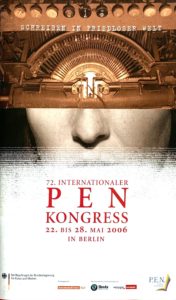
PEN International’s 72nd World Congress, Berlin, 2006
At the time of PEN’s Congress in May 2006, Berlin was bedecked with water pipes above ground—pink, green, blue, red—before the city buried its plumbing and infrastructure beneath the streets. Portions of the city had the appearance of an amusement park; there were also sections of the Berlin Wall with its colorful graffiti still standing, more as art exhibit than stark barrier to freedom.
“Welcome to a United Berlin” the German PEN President headlined his letter to the 450 delegates and participants for PEN’s 72nd World Congress. The Congress theme “Writing in a World Without Peace” was challenged by the reunification of Berlin and Germany, a historic event which bode well for the prospects of peace and which stood in contrast to the history that had come before. Yet the globe was still in conflict in the Middle East, in Asia and in Latin America where writers were under threat.
“There are countries such as Iran, Turkey or Cuba, where authors are jailed because of their books,” noted International PEN President Jiří Gruša. Resolutions at the Congress addressed the situations for writers imprisoned or killed in China, Cuba, Iran, Mexico, Russia/Chechnya, Sri Lanka, Uzbekistan, Vietnam, and other countries.
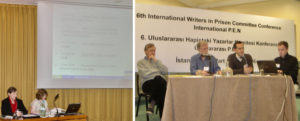
Left: Writers in Prison Committee (WiPC) meeting at Berlin Congress. Karin Clark (Chair WiPC) and Sara Whyatt (WiPC Program Director). Right: WiPC Conference in Istanbul: Eugene Schoulgin (Norwegian PEN/PEN Board), Jens Lohman (Danish PEN), Jonathan Heawood (English PEN), Notetaker
Two months before in March, over 60 writers from 27 PEN centers in 23 countries had gathered for International PEN’s Writers in Prison Committee conference in Istanbul where the WiPC planned a campaign against insult and criminal defamation laws under which writers and journalists were imprisoned worldwide. The conference also addressed the recent uproar over the Danish cartoons, impunity and the role of internet service providers offering information on writers, especially in China. A working group formed to support the Russian PEN Center which was under pressure from the Russian government.
Berlin, however, was sparkling and filled with the energy of reunification. “Today, this city—once separated by a Wall most drastically manifesting the division of Germany and Europe—has not only been re-established as the capital of Germany, but has simultaneously turned into a thriving meeting-place between East and West and North and South,” welcomed Johano Strasser, German PEN President. “Here in Berlin, history in all its facets—from the great achievements of German artists, philosophers and scientists to the crimes of the Nazis—has left its mark on the urban landscape.”
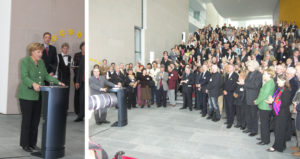
Left: German Chancellor Angela Merkel addressing PEN members at 72nd PEN Congress, 2006; Right: PEN International President Jiří Gruša speaking to PEN delegates and members at the Federal Chancellery; front row: German PEN President Johano Strasser, Chancellor Angela Merkel and PEN International Secretary Joanne Leedom-Ackerman. [Photo credit: Tran Vu]
The keynote address by Nobel laureate Günter Grass challenged the conflicts around the globe and the countries engaged in them. “There has always been war. And even peace agreements, intentionally or unintentionally, contained the germs of future wars, whether the treaty was concluded in Münster in Westphalia, or in Versailles,” he said.
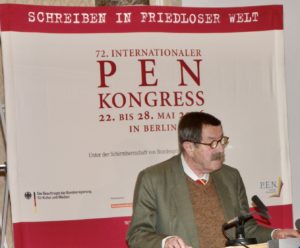
Nobel laureate Günter Grass addressing Opening Ceremony of PEN International’s 72nd World Congress in Berlin, 2006 [Photo credit: Tran Vu]
As I sat on the dais on the edge of the stage listening to this renowned German writer, I leaned over to Jiří and said, If there is a standing ovation, I can’t stand. I was concerned. Grass could say and think whatever he wanted, but PEN was a non-political organization. Whatever my views of my country’s foreign policy, I was an American; I was also the mother of a son in uniform. Jiří leaned back to me and said in effect: Don’t worry, I won’t stand either. The speech ended with applause but no ovation, and then everyone got up and went to the next event.
It wasn’t my role to argue with Günter Grass even had the occasion allowed. But it was important that PEN assure the open space for debate existed which it did later in the Congress workshops and programs. PEN was filled with a multitude of points of view among its members; it did not have a litmus test of politics, only a commitment to the free expression of ideas. It offered a wide tent where views could be debated and challenged. Dogmatic political certainties often fell on their own in the alchemy of literature and imagination.
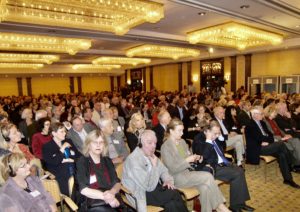
PEN members and delegates from around the world at Opening Ceremony of 2006 PEN Congress [Photo credit: Tran Vu]
Programs at the Congress also featured Nobel laureate and PEN International Vice President Nadine Gordimer and writers from around the world, including former International PEN Presidents Ronald Harwood, and György Konrád, Bei Dao, A.L. Kennedy, Margriet de Moor, Péter Nádas, Per Olov Enquist, Mahmoud Darwish, Duo Duo, Jean Rouaud, Johano Strasser, Veronique Tadio, Patrice Nganang and others. These writers participated in the literary events, including an evening of African literature and one of writers of German literature who had immigrated from abroad to Germany or had non-German cultural backgrounds. Afternoon literary sessions included prominent PEN writers introducing authors of their choice, an afternoon of essays and discussions on the theme Writing in a World without Peace and a lyric poetry afternoon.
PEN’s 85th anniversary coincided with the 60th anniversary of the United Nations. Both organizations had been founded after a World War out of an idealism that arose from desperate times with the hope that the future could be better than what had just transpired. “Both organizations were founded on a belief in dialogue and an exchange of ideas across national borders,” I noted in my address to the Assembly of Delegates. “When U.N. members were writing the Universal Declaration of Human Rights, the framers consulted, among other documents, PEN’s Charter.”
PEN also had a history with the city of Berlin, where PEN members had gathered in 1926 for the first international meeting of importance held in Berlin after World War I. At that Berlin Congress tensions had arisen among old and young writers, writers from the west and the east, and debate had flared about the political versus the nonpolitical nature of PEN. The debate that stirred in Berlin in part led to the framing of PEN’s Charter the following year.
Since those early days, PEN had grown in size beyond what the founding writers might ever have imagined. After the 2006 Berlin Congress, with the addition of centers in Jamaica, Uruguay, and Pretoria, South Africa, PEN had 144 centers in 101 countries in almost every time zone. The PEN world didn’t sleep. Someone, somewhere was always awake doing something. Through its centers PEN International participated in at least a dozen conferences around the world each year, including meetings of its standing committees. PEN thought globally but worked locally.
Berlin—with its own alterations and progress—proved a fitting location for the presentation of International PEN’s new Three-Year Plan. For the past decade, since the 75th Anniversary at the Congress in Guadalajara, PEN International had been in an organizational reformation. It now had a governing structure with a global Board that participated in decision-making; it had revised its Constitution and Rules and Regulations; it had developed a budget, increased its funding, and recently moved its offices into Central London to a larger space with cheaper pro rata rent and an elevator, which had meaning for anyone who had climbed the steep four (or five?) flights to PEN’s old offices. The staff size had also increased, and PEN had hired its first Executive Director, Caroline McCormick Whitaker, former Development Director from the British National History Museum.

International PEN Board meeting preceding 72nd PEN Congress in Berlin, May 2006. L to R: Eugene Schoulgin (Norwegian PEN), Judith Rodriguez (Melbourne PEN), Kata Kulakova (Chair Translation & Linguistic Rights Committee), Sylvestre Clancier (French PEN), Sibila Petlevski (Croatian PEN), Chip Rolley (Chair Search Committee), Karen Efford (Program Officer), Caroline McCormick Whitaker (Executive Director), Joanne Leedom-Ackerman (PEN International Secretary), Jiří Gruša (International PEN President), Peter Firkin (standing—Centers Coordinator), Eric Lax (PEN USA West), Jane Spender (Programs Director), Judith Buckrich (Women Writers Committee Chair)
Because British charitable tax law had changed, the opportunity had also arisen to unite International PEN and the International PEN Foundation into one charitable organization: International PEN, Ltd, a step that would provide the legal framework and protection for the organization and PEN’s name, would limit personal financial liability of the Board and attract a wider funding base. At the Berlin Congress, resolutions and approval were endorsed for this step which would be finalized the following year at the 2007 Congress in Dakar.
Caroline Whitaker took the Assembly of Delegates through the Three-Year Plan which had been developed after widespread consultation with PEN centers and the Board. She acknowledged that PEN couldn’t do everything that everyone wanted right away, that it was necessary to focus resources even as PEN developed more resources.
The Plan, which had grown out of all the discussions and preceding plans, concentrated on PEN’s three missions: to promote literature, to protect freedom of expression and to build a community of writers. “International PEN will work regionally to connect the activity of its many Centers around the globe on these issues,” Caroline told the delegates.

All PEN’s Standing Committees met at Berlin Congress—Writers in Prison Committee, Translation and Linguistic Rights Committee, Women Writers Committee and Peace Committee [Photo credit: Tran Vu]
In helping to develop PEN’s centers, the Three-Year Plan recommended International PEN focus on one region at a time, beginning with Africa where the 2007 PEN Congress would be held. International PEN would assist in programming and fundraising for development of PEN’s African Centers. The next regional focus would be Latin America, where PEN’s 2008 Congress was to be held. This rolling focus would allow the limited international staff to plan strategically. Regular daily work would still continue for the needs of centers in all regions.

PEN members met in workshops at 72nd Berlin Congress. Topics: PEN in the World—Global Issues; Education; the Strategic Plan; Centers; Networks and Partners; Asia and Central Asia; Middle East; Africa; Europe and Americas [Photo credit: Tran Vu]
As International PEN’s work had taken me across the globe that year, I’d come to see that PEN and its members formed a kind of intricate net which helped hold civil society together, the kind of sturdy net used on hills to prevent landslides. In a way that is what PEN members did around the world. They helped prevent literary culture and languages and freedom of expression from slipping away by both their active programming and their defensive actions
At the 1926 PEN Congress in Berlin International PEN’s President John Galsworthy and PEN’s founder Catherine Amy Dawson Scott had their voices recorded and preserved in a project of the German state. Galsworthy read a page from his Forsyte Saga. According to Dawson Scott’s journal, she recorded the following: “Even as individuals become families and families become communities and communities become nations, so eventually must the nations draw together in peace.”
It was a worthy, if not yet realized goal, but at least in PEN we had a global family.

Mayor’s reception for PEN members and participants at 72nd World Congress in Berlin, May 2006 [Photo Credit: Tran Vu]
Elections at 2006 Congress:
International PEN President: Jiří Gruša was re-elected for further 3-year term.
International PEN Board: Cecilia Balcazar (Colombian Center) and Eugene Schoulgin (Norwegian PEN re-elected to the Board)
Vice Presidents: Toni Morrison (American PEN) and J.M. Coetzee (Sydney PEN) elected Vice Presidents for service to literature and Gloria Guardia (Panamanian Center) for service to PEN
Women Writers Committee: Judith Buckrich (Melbourne Center) re-elected as Chair
Translation and Linguistic Rights Committee: Carles Torner (Catalan PEN) stood down as Vice Chair, replaced by Josep Maria Terricabras (Catalan PEN)
Next Installment: PEN Journey 42: From Copenhagen to Dakar to Guadalajara and in Between
